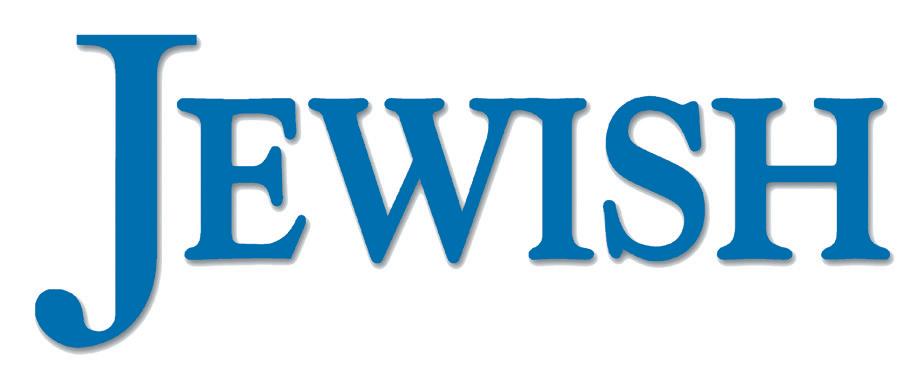
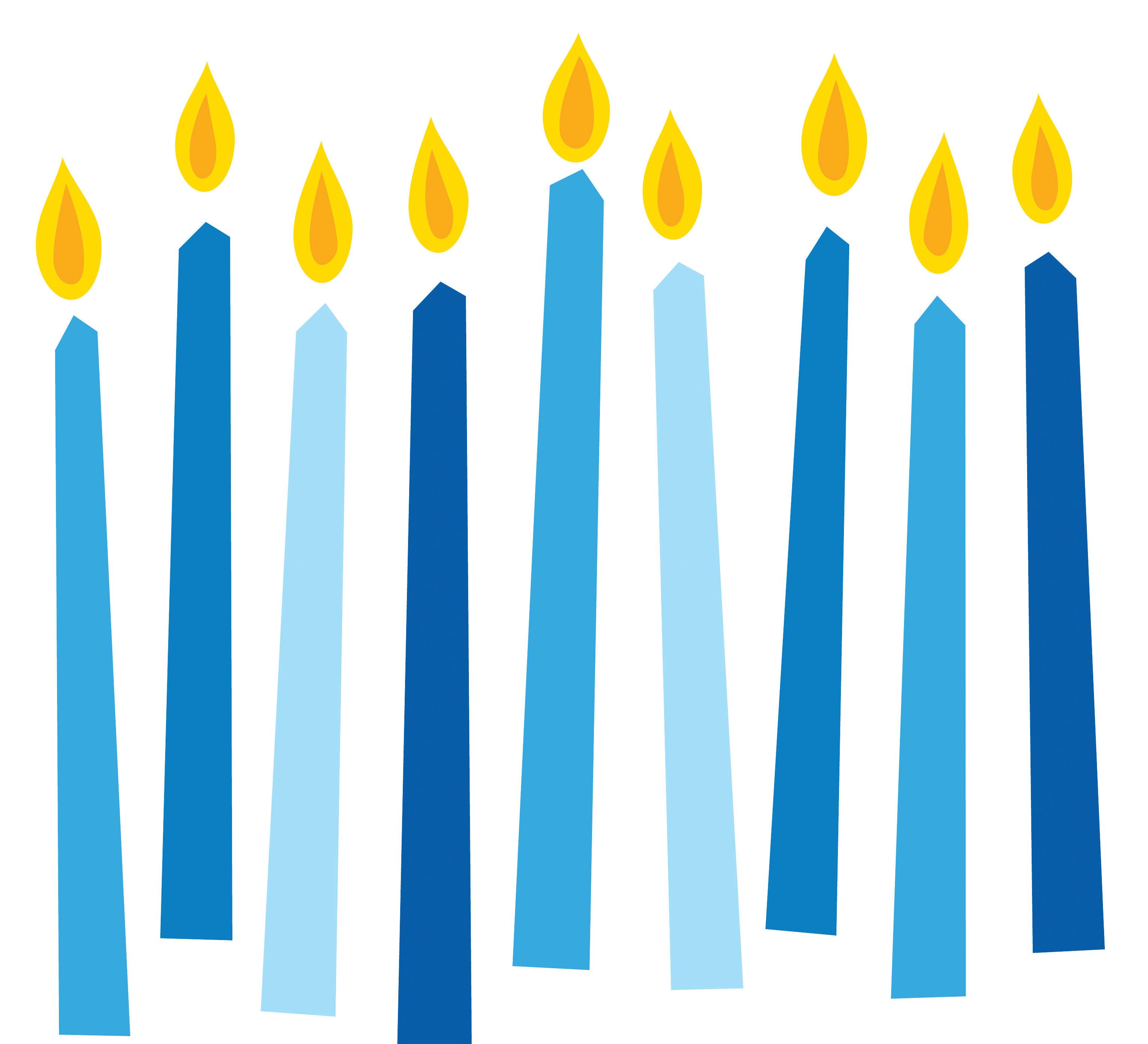







For decades, the “60/40” portfolio — 60% stocks, 40% bonds — was considered the gold standard. It was simple, effective, and delivered. Today, markets are different. Bonds no longer provide the same income cushion, stocks are prone to sharp swings, and global uncertainty is the norm.
This is where alternative investments come in. Private equity, private credit, private real estate, and hedge funds aren’t just for endowments and institutions anymore.
High-net-worth investors can now access them in ways that help diversify portfolios, provide new sources of return, and add stability during market turbulence.
The goal isn’t to replace the tried-and-true foundation of stocks and bonds — it’s to build resilience and enhance long-term success.

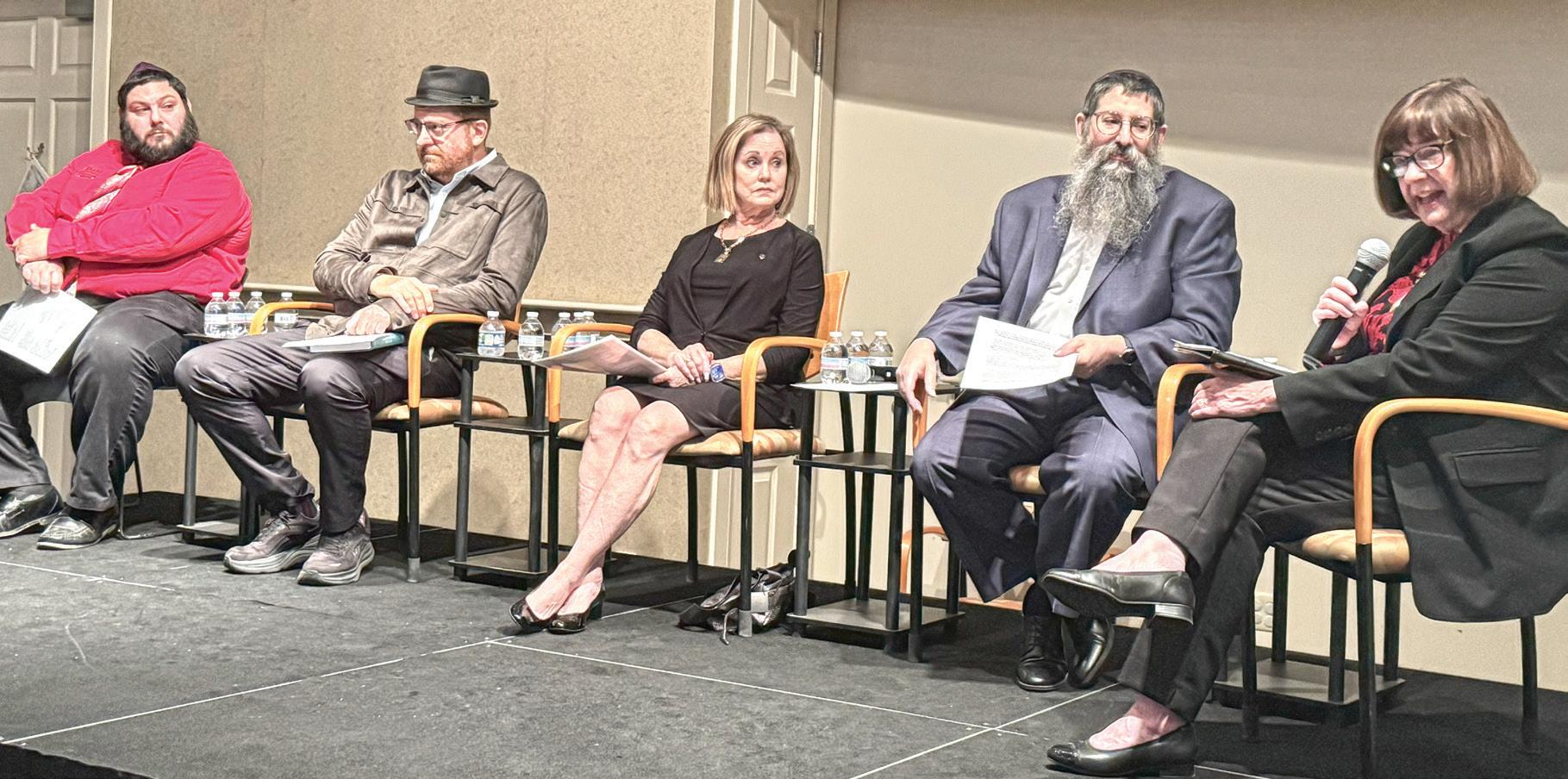

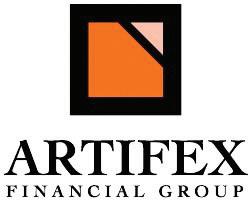


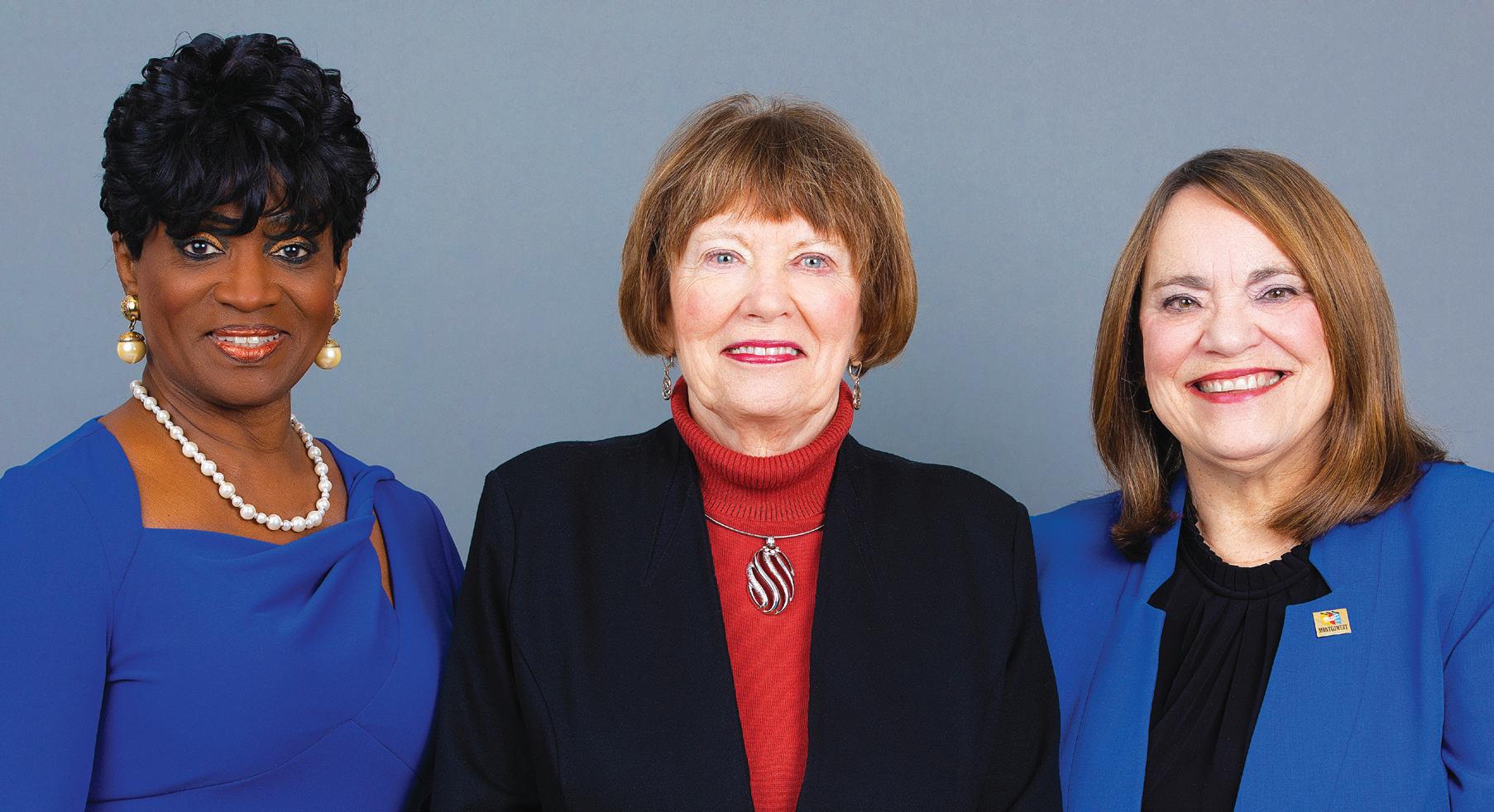


Dayton Jewish Community Relations Council Dir. Jeff Blumer (L) meets released hostage Bar Kuperstein of Holon, Israel, Oct. 31 in Ramat Gan, Israel. Dayton's Jewish Federation raised $8,000 toward the Kuperstein family's medical expenses. Dayton and Holon are Sister Cities.
By Marshall Weiss, The Observer
From the moment in August when Jewish Community Relations Council Director Jeff Blumer got the Jewish Federation's go-ahead to raise funds for the Holon-based family of Bar Kuperstein, Jeff hoped he might present the check to Bar himself.
Bar, 22, was then thought to be among the 20 remaining living hostages Hamas held in Gaza.
"Wouldn't it be amazing if a miracle happened and we could actually give the check to Bar?" Jeff recalls sharing with colleagues at the time. He was scheduled to be in Israel's Western
Yiddishe LLama, what’s with the storebought latkes?
The miracle of the oil hurts a bisl less when it’s baked.




Galilee region at the end of October for a Partnership2Gether summit.
"And in our case, with Bar in Holon, our Sister City, we got a miracle."
Surrounded by the Kuperstein family and Holon Mayor Shai Keinan, Jeff handed Bar a check for $8,000 at the Kfar Maccabiah Hotel in Ramat Gan, Oct. 31.
As The Times of Israel reported, several returned hostages' families stayed at Kfar Maccabiah while the returnees recuperated at nearby hospitals; the released hostages visited their Continued on Page Four
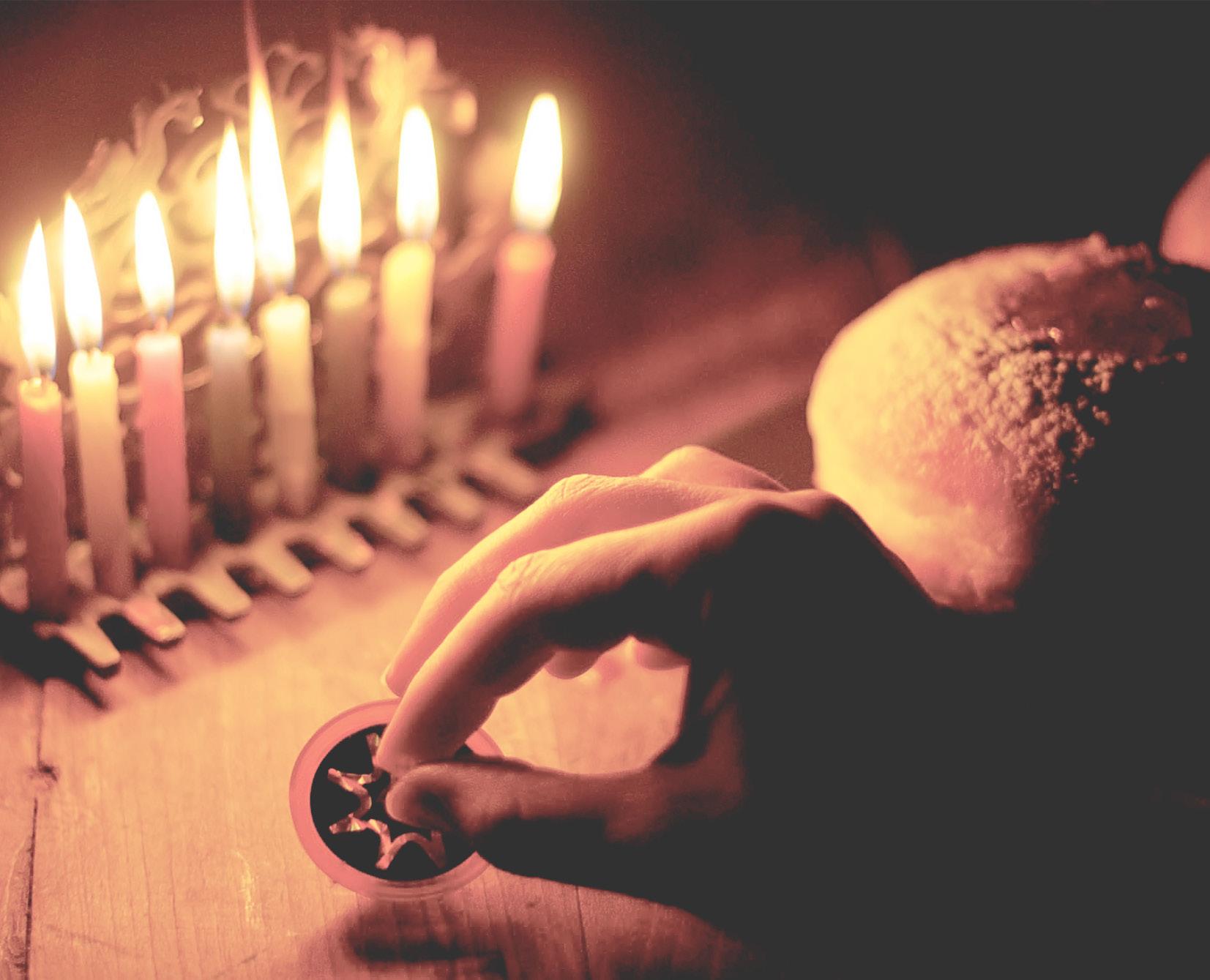









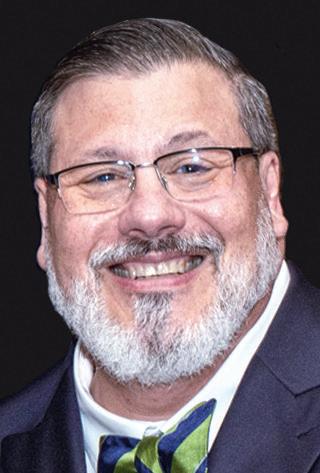







The Ghost of Chanukah Past reminds me that I used this space years ago to confess a heinous shortcoming connected to the Festival of Lights. Rather than applesauce or sour cream, my favorite latke topping is — ketchup. If combining potatoes and tomatoes is too off the derech (path) when it comes to celebrating the miracle of the oil, here's another confession, which might lessen the blow. My favorite way to eat latkes, even more than doused with ketchup, is beneath a generous ladling of chili. Or better yet, drowned under Manwich Sloppy Joe Sauce. (Hey, it's kosher.) Part of the thrill is that when I was a kid, Manwich was on the unwritten list of processed foods my Mom wouldn't let us have. If I stand alone in the culinary Chanukah universe for this one, so be it. But I'll bet you'll be a hero if you make it for the kids. And that sloppy joe stuff is amazing on brisket, too. Especially with an omeprazole chaser for the grown-ups. Wishing you and yours a happy, digestible Chanukah.






Continued from Page Three
families at Kfar Maccabiah before they were officially released to go home.
According to Jeff, 111 donors from Dayton and Jewish communities across the United States donated to help with the Kuperstein family's medical bills.
Since the age of 17, Bar was the main provider for his mother and four siblings. His father, Tal, was in a severe car accident five years ago while he volunteered as a medic. Tal endured multiple surgeries and a stroke. He was unable to walk or speak.
Bar, a medic and security guard, was taken hostage from the Nova music festival Oct. 7, 2023 while he helped wounded victims.
About a month after Bar was in captivity, Tal decided he would speak and walk again when he welcomed his son home. And he did.
"Bar and I talked about the miracle of being able to do this in person," Jeff says. "And even though I'm standing here seeing it with my own eyes, I can't believe it. I presented some chocolates as a gift for Bar. And my youngest daughter, Laila, and Molly, my wife, had put together about 30 little pendants with messages like love and peace, and made them into necklaces."
Jeff gave the necklaces to Bar to give to people who visit him.
"The wonderful act of the Dayton community demonstrates the depth of connection between Sister Cities and the mutual responsibility that unites Jewish people everywhere," Holon Mayor Shai Keinan said at the presentation, Holon-based Goitem magazine reported. "We feel the warmth, love, and embrace you are sending us from afar during these challenging times for our nation."
The Jewish Federation and its Jewish Community Relations Council created awareness of the Kuperstein family fundraiser from August through October via their Israel in Focus three-part documentary series about Oct. 7, the ensuing Israel Hamas war, and its impact.
The first documentary, October 7th: Voices of Pain, Hope, and Heroism, features an interview with Bar's mother, Julie. After the screening, Jeff showed a video of Holon's mayor thanking Dayton for its support of the fundraiser.
Jeff also showed a video of Bar's father, Tal, who said in Hebrew, "I am saying thank-you to Dayton."
"He worded it that way," Jeff says, "because he's struggling with his speech. It's not just thank-you to Dayton: he's saying it. And that was very powerful."
The third documentary screening was held Oct. 16 with a memorial service, in conjunction with the Hebrew
date of the Hamas massacre, which Israel's government selected as its annual remembrance day. It would turn out to be three days after the 20 remaining living hostages were freed.
Jeff showed a video of Bar thanking all of his supporters around the world.
"The audience here in Dayton applauded and was whooping and hollering," he says. "I went with this energy on the trip to Holon."
Dayton's Kuperstein family fundraiser, Jeff says, came about from the advocacy of one person: Shoshana Natt of Westfield, N.J.
Her support for the hostages in Gaza drew her repeatedly to the plight of Bar and the Kupersteins.
At the Washington, D.C. solidarity rally in November 2023, Shoshana randomly picked up and carried a hostage poster of Bar and then researched his story.
On an Israel solidarity trip to the site of the Nova music festival attack, she took the only remaining solidarity candle with a hostage photo and story. It was Bar's.
When Shoshana learned that Bar was from Holon, a friend's research led her to the Jewish Federation in Holon's Sister City, Dayton.
"It was really good teamwork," Jeff says. "As we did different things, Shoshana would make sure we had the story and would check in on where the donations were."
Jeff also credits Rachel Laniando and Lidor Waldman with the Foreign Affairs Office at the Holon municipality, who coordinated all aspects of the project on the ground.
At the Oct. 31 presentation, Holon's mayor spoke of further strengthening bonds of friendship and partnership between his city and Dayton, "and between the entire Jewish people and your remarkable community."
"I pray that we will soon see days of peace and tranquility, days focused on quality of life, education, sports, and culture — rather than on shelters and sirens."
Two days later, on Nov. 2, Bar returned home to Holon with a hero's welcome.
“Two years of captivity, of darkness, of fear. Two years of praying and hope that was never extinguished. Two years that you did not forget me — not you, not my friends, and not the nation of Israel,” he told a crowd of thousands.
Bar was among 17 of the former hostages released Oct. 13 who met with President Donald Trump Nov. 20 at the White House, as well as with Special Envoy Steve Witkoff, Secretary of State Marco Rubio, Attorney General Pam Bondi, and Homeland Security Secretary Kristi Noem. "You're not hostages anymore — today you're heroes," Trump told them.
THE DAYTON

Editor and Publisher Marshall Weiss mweiss@jfgd.net 937-610-1555
Contributors
Rabbi Aubrey L. Glazer Candace R. Kwiatek
Advertising Sales Executive Patty Caruso, jewishobserver@jfgd.net
Administrative Assistant Samantha Daniel, sdaniel@jfgd.net 937-610-1555
Billing Sheila Myers, smyers@jfgd.net 937-610-1555
Proofreaders
Linda Brotkin, Rachel Haug Gilbert Steven H. Solomon Observer Advisor Martin Gottlieb
Published by the Jewish Federation of Greater Dayton Dan Sweeny President Marni Flagel President Elect Meredith Levinson Secretary Neil Friedman Treasurer Ben Mazer VP Personnel Teddy Goldenberg VP Resource Dev. Mary Rita Weissman Immed. Past Pres. Cathy Gardner CEO
The Dayton Jewish Observer, Vol. 30, No. 4. The Dayton Jewish Observer is published monthly by the Jewish Federation of Greater Dayton, a nonprofit corporation, 525 Versailles Dr., Dayton, OH 45459.
Views expressed by columnists, in readers’ letters, and in opinion pieces do not necessarily reflect the opinion of staff or layleaders of The Dayton Jewish Observer or the Jewish Federation of Greater Dayton. Acceptance of advertising neither endorses advertisers nor guarantees kashrut.
The Dayton Jewish Observer Mission Statement
To support, strengthen and champion the Dayton Jewish community by providing a forum and resource for Jewish community interests.
Goals
• To encourage affiliation, involvement and communication.
• To provide announcements, news, opinions and analysis of local, national and international activities and issues affecting Jews and the Jewish community.
• To build community across institutional, organizational and denominational lines.
• To advance causes important to the strength of our Jewish community including support of Federation agencies, its annual campaign, synagogue affiliation, Jewish education and participation in Jewish and general community affairs.
• To provide an historic record of Dayton Jewish life.

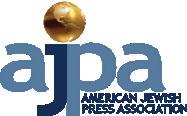


The owner of Middletown Plaza shopping center removed from a vacant area of the property a tractor trailer on Nov. 18 that was tagged with "Was Hitler Right" and a swastika.
Middletown Police received reports about the tagged truck the previous weekend.
"Once we were made aware of it, we got ahold of the owner of the property, who ended up having the truck removed," Middletown Police Deputy Chief Ryan Morgan said.


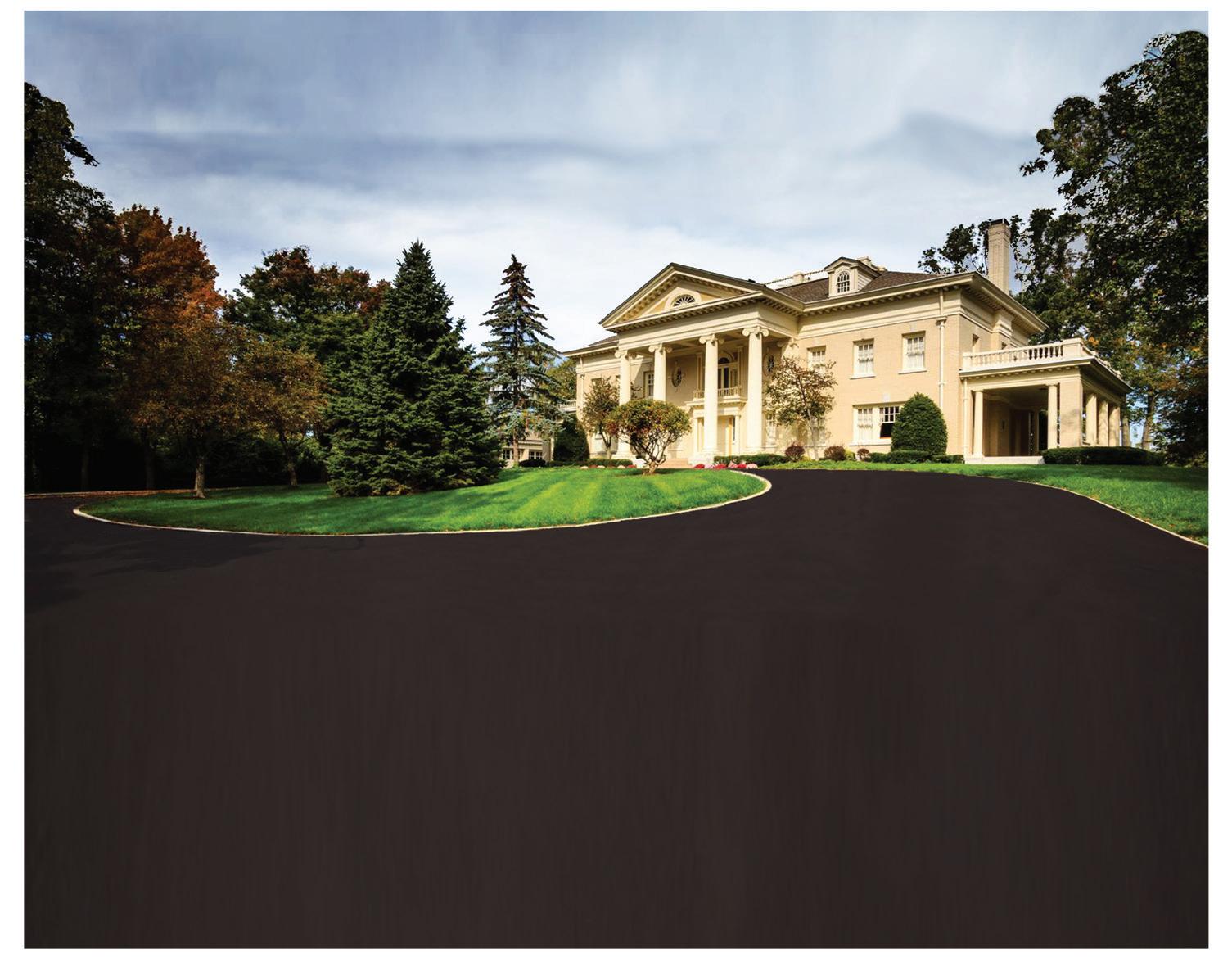

The truck was parked in the plaza's lot near the southeast corner of South Breiel Boulevard and Caprice Drive.
"They allow trailers to just park there," Morgan said of the plaza's owner, and that no security cameras cover the vacant section of the shopping center. The nearest cameras, at Dedicated Motivated gym on the south end of the outdoor mall, were too far away to pick up any suspicious activity.
Middletown resident Josh Frost was driving by, midmorning Nov. 18 with his girlfriend and their baby son, when he saw the vandalized truck.
"We turned back around, we took a picture, and she started crying about it," said Frost, who is Jewish and was raised in Englewood. His girlfriend said to him, "This isn't how it usually is down here."
"For her, it was traumatic just to have to deal with that," Frost said. "For me it's just irritating. We were on Breiel (Boulevard). That's one of the main roads in Middletown. So hundreds of people, if not thousands, have passed that today. Thankfully, my kid's young, but if my kid was older, he was going to be looking out my window and be like, 'What does that mean?' I feel bad for any other Jewish parents that have to have that conversation today because of that."
In another incident, an Observer reader's 13-year-old son documented a swastika spraypainted on concrete along a bike path Nov. 2 in Patterson Park behind Irving Commons on the Oakwood/Dayton line. The family reported it to the AntiDefamation League and the Dayton Police Department.
— Marshall Weiss

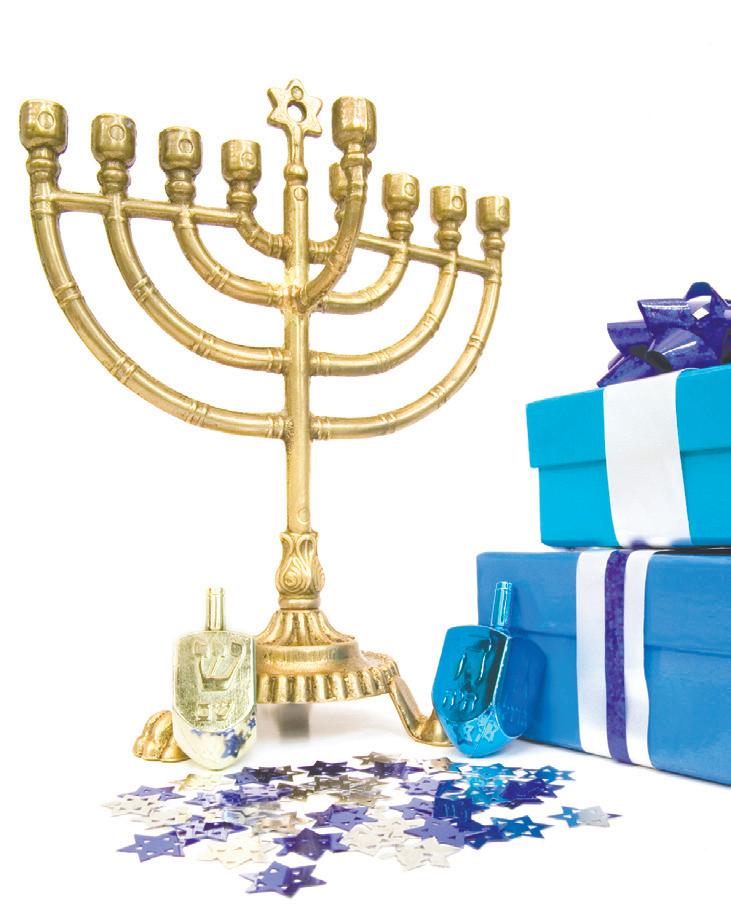

Firestone - Johns Manville - Carlisle - Soprema
24-Hour Emergency Roof Leak & Repair Service
After 6:00 PM/Weekends - Call 937-604-2922

Email: info@commandroofing.com 2485 Arbor Blvd., Dayton, OH 45439
Our warmest wishes for a joyous Chanukah
Bari & Steve Blumhof
Best wishes to all for a Happy Chanukah
Jonathan & Jeannette Horwitz

Happy Chanukah Alvin & Ellen Stein
A sweet and joyous Chanukah Linda Novak
By Marshall Weiss The Observer
Sammy Caruso began his speech leading the chant, "Free Palestine." He concluded with another chant, directed at the U.S. government: "Not another nickel, not another dime. No more money for Israel's crimes."
In between, the Oakwood resident and Miami University graduate student shared his path to anti-Zionism — and explained why he started the Echoes of Gaza digital archive — in his speech to about 50 protesters at the Nov. 22 "Rally for Humanity! Call it Genocide III" gathering at the Dayton Peace Sign in front of the Schuster Center in Downtown Dayton. With the stated goal of "calling the Israeli war on the
Meet Penny and Pam, two neighbors who discovered more than a home at Bethany Village. They found each other. Their friendship brings comfort, laughter, and a reminder that life feels richer when you have someone by your side. At Bethany Village, you’ll always have someone to share life’s moments.
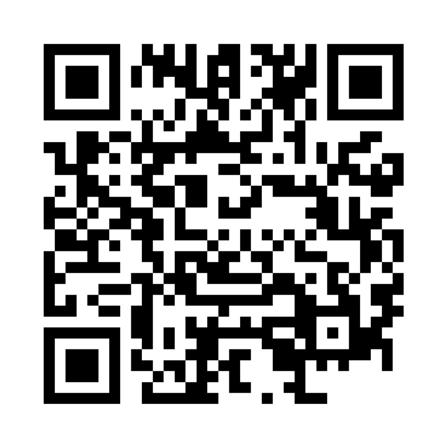
Scan the QR code to see how Penny and Pam found friendship at Bethany Village, or call us to schedule a personal consultation with Amy today.
(937) 731-3900
BethanyLutheranVillage.org/neighbors
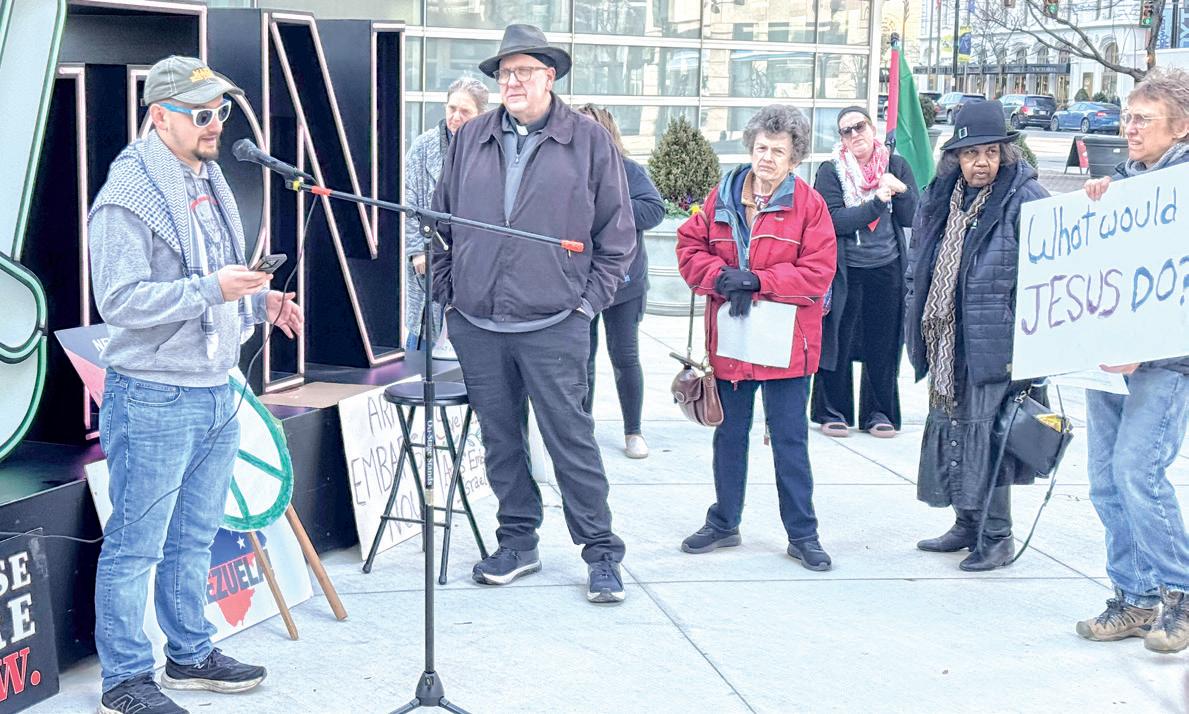
Palestinians a genocide," the rally was sponsored by Food Not Bombs, Gem City Action, YS Uproar, and Greater Dayton Peace Coalition.
"I want to start by talking just a little about my upbringing as a Jewish American growing up in Dayton, Ohio," said Caruso, who wore a keffiyeh, a symbol of Palestinian resistance. "I had to unlearn the idea that Palestine is a land
without people for a people without land. I grew up in a traditional Jewish environment. I went to Jewish day school, I went to Sunday school, I spent summers at Jewish camps. I grew up learning about the Holocaust and about the responsibility that memory carries. And I was taught to say, 'Never Again' — and that means never again for anyone. Growing up, I was taught that
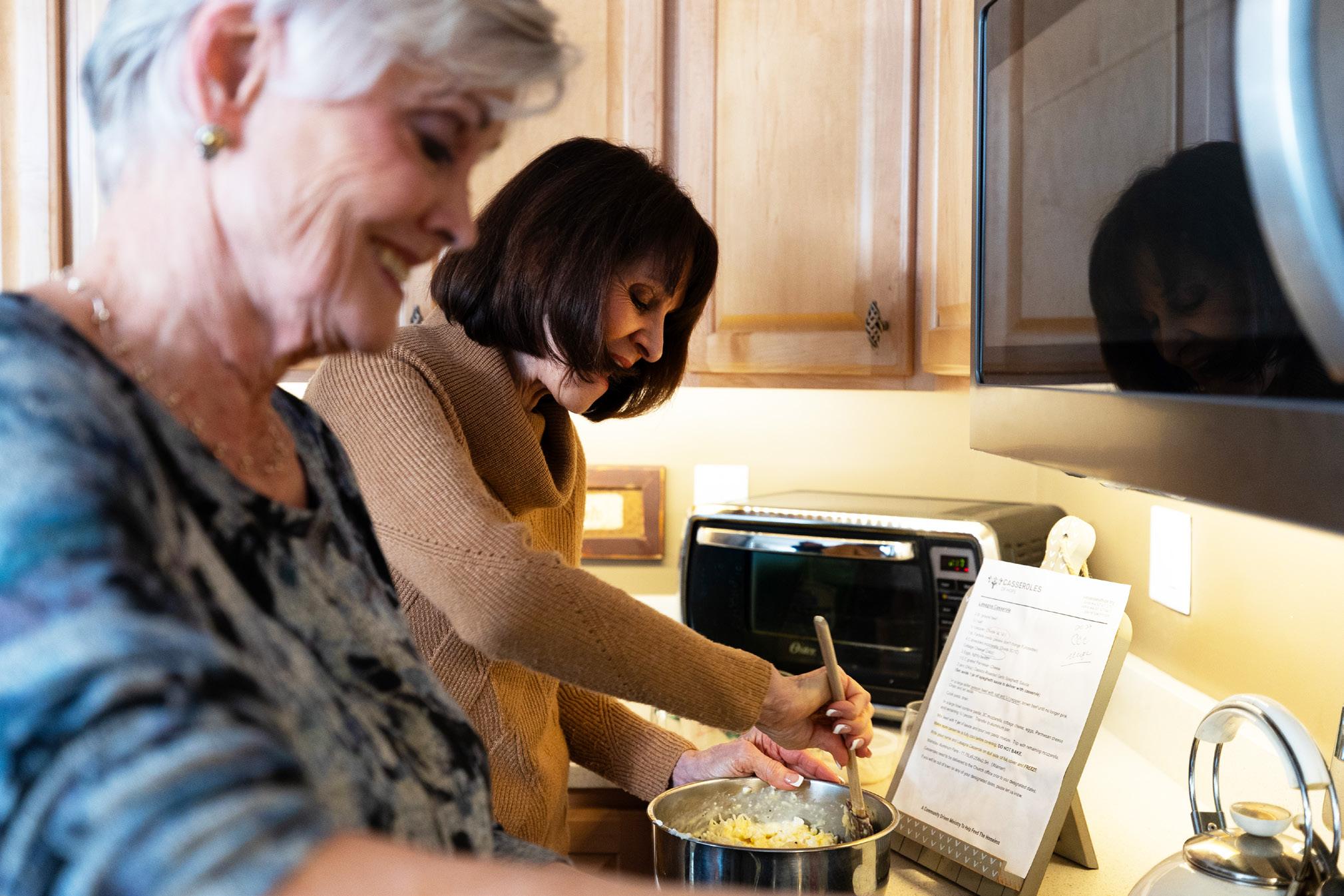

Zionism was just the simple idea of a homeland for Jewish people. The falsehood was built on the idea of supremacy, of displacement, of subjugation, of ethnic cleansing, of colonization.
"So let me be very clear. Zionism is antiAmerican. It is antidemocratic. It is anti-freedom. It is anti-security. It is anti-peace. And at a time of a supposed ceasefire, this is not a ceasefire. Palestinian men, women, and children continue to be murdered day after day, with hundreds of Palestinians killed since the ceasefire, thousands of homes destroyed."
In his speech, Caruso said he founded Echoes of Gaza digital archive to document "the ongoing occupation, displacement, ethnic cleansing, and genocide of the Palestinian people."
"And let me be clear, it's just a ceasefire in name only," he added, "while Palestinians continue to face genocide in their stories and narratives. Palestinian history is not what is happening, it is what is recorded, it is what has survived, it is what people in power have decided to preserve. I believe history is power. History is a form of resistance. Government and media institutions, tech companies, try to silence Palestinian voices. They are trying to deny the present and they are trying to shape the future."
fact they are some of the most militant folks." Wagner was a founding member of United Methodists for Kairos Response, which in partnership with Palestinian Christians, seeks "freedom, justice and equality for all Palestinians and Israelis."
The pastor added that the accusation of antisemitism aimed at those who say Israel is committing genocide is "very lazy."
"It means they're bereft of arguments and can't think of anything else, so we're obviously antisemitic. We're obviously not. We have Jews here with us today, so I think that's important to say. Our goal is to get everybody to call it genocide, so I'm calling it genocide. It's the word that Palestinians themselves have asked us to use. It's an extreme situation. And I think it's important to use the word they ask us to use."
'I'm calling it genocide. It's the word that Palestinians themselves have asked us to use.'



The rally's moderator, the Rev. John Wagner, a pastor in the West Ohio annual conference of the United Methodist Church, told protesters at the rally's beginning, "It's very important for us to understand there are Jews in Israel and Jews around the world who are firmly on our side, in
A Washington Post poll in early September — a month before President Donald Trump's administration achieved the release of the 20 remaining living hostages in Gaza and an Israel-Hamas ceasefire agreement — found that 39% of U.S. Jews believe Israel has committed genocide in Gaza. The September poll also found that 61% of U.S. Jews agreed that Israel has committed war crimes against Palestinians. The poll surveyed 815 U.S. Jews from Sept. 2 to 9 and had a margin of error of 4.7 percentage points.
The U.S. and Israeli governments vehemently dismiss the genocide accusation.
Full disclosure: Caruso's mother sells ads for The Observer as an independent contractor.
Warm Chanukah greetings from Patricia A. 'Pat' Riley
We wish the Dayton Jewish community a very happy Chanukah John & Carol Sheehan

Our warmest wishes for a joyous Chanukah Judy & Alan Chesen
Best wishes to all for a Happy Chanukah Sondra Kulback
There are many ways to support Israel and its people, but this Chanukah, no gift is more transformative than one to Magen David Adom, Israel’s emergency services system. Your support of MDA isn’t just changing lives — it’s literally saving them — providing critical care and hospital transport for everyone from victims of heart attacks to rocket attacks, and every emergency in between.
Donate today at MagenDavidAdom.org or call 866.632.2763.

By Aaron Bandler, JNS.org
The Ohio House voted 73-10 Nov. 5 to pass a bill that would create the Ohio-Israel Trade and Innovation Partnership.
A nearly identical companion state Senate bill, which calls for a $5 million “general revenue fund” for the partnership, is currently in committee.
The partnership would include a 14-member team, including members of the state House and Senate and those appointed by the governor, who would elect a chair, per the House bill.


the Ohio treasurer, announced that the state bought a $35 million, two-year, fixed-rate Israel Bond.

Eric Synenberg, a Jewish Democratic state representative from Beachwood — who is one of the bill’s primary sponsors — said the partnership will “promote business, trade, economic development,” and “collaborations between universities in Ohio and Israel.”
“The goal would be that some company ends up relocating to Ohio either completely, or a company opens up their main U.S. office in Ohio, or some Israeli innovative technology — whether it’s in defense or aerospace or agriculture or medicine or technology — ends up helping Ohio companies or businesses,” he said.
In February, Robert Sprague,
“We are continuing the longstanding practice of investing in Israel Bonds as a way to bolster the state’s investment portfolio,” he stated. “Israel Bonds have long served as a sound investment for the Ohio treasurer’s office, with a record of competitive rates and reliable repayments.”
The Ohio treasury currently holds $262.5 million in Israel Bonds, making the state “one of the largest government investors in these bonds in the United States,” the state announced in February.
Ohio exported nearly $242 million worth of goods to Israel in 2023, according to the most recent export report from the Ohio Department of Development, which listed Israel as the state’s 26th largest export destination.



From 2021 to 2023, the state exported $765 million worth of goods to the Jewish state, with a 15% reduction from 2022 to 2023, per the report.
The report added that Ohio was responsible for 1.7% of U.S. exports to Israel in 2023. According to the United States-Israel Business Alliance, Ohio had $284 million worth of exports to Israel and $219 million worth of imports from the Jewish state in 2022.
Howie Beigelman, president and CEO of Ohio Jewish Communities, said witnesses made antisemitic remarks during an Oct. 29 hearing about the bill in the state House.
Those comments included “the disgusting ‘dual loyalty’ charge that those on the com-

mission with interest in” and “knowledge of Israel would ‘put Israel’s interests’ ahead of ‘Ohio’s,’” he said.
Ohio Jewish Communities, which is the government advocacy arm of the eight Jewish Federations in the state, is “grateful the vast majority of the Ohio House overwhelmingly rejected the politics of hate and the blatant antisemitism on display in committee to focus on strengthening the state’s economy by increasing collaboration with Israel,” Beigelman said.
Synenberg said the bill has nothing to do with “supporting Israel’s foreign policy” but is “really about economic development and jobs in Ohio.”
Christine Cockley, a Democratic state representative from Columbus, stated that she had decided to vote against the bill due, in part, to her opposition to Israeli policy.
interests.”
“At a time when so many of us are struggling to make ends meet, it is more important than ever that we keep Ohio’s resources and taxpayer dollars focused on the needs of our own communities,” she stated.
Beigelman said Cockley was "an original cosponsor of this bipartisan legislation and remained on the bill throughout the legislative process, until yesterday, after the floor vote.”
'This legislation could not send a stronger, clearer, and more bipartisan signal that Ohio and Israel are both open for business.'
The bill currently has 40 cosponsors. “With a 73 to 10 vote on the floor and a 9 to 2 vote in committee, this legislation could not send a stronger, clearer, and more bipartisan signal that Ohio and Israel are both open for business, together,” Beigelman said.
can state representative from Middletown who was one of the bill’s primary sponsors, stated that its passage in the state house was “a historic day for Ohio and its ongoing partnership with Israel.”
“In 2023, I was able to visit Israel on a state delegation visit. During the visit, I met with many different industries, including start-ups and emerging technology,” he said. “This partnership seeks to bring these businesses to Ohio.”
“I am tired of other states continually landing these businesses when they decide to grow and expand,” he said. “Ohio will now be able to compete.”
Hall added he looks forward to the state and the Jewish state working together not only on technology but also on agriculture and water supply.
“Both are areas that are considerably important to Ohio families,” he said.



“As a Jewish woman, I remain committed to advocating for the safety and security of all Jewish people everywhere. Simultaneously, I cannot support all actions taken by the Israeli government during this time,” she stated. “As with any government, I believe it’s crucial to be vocal about human rights violations, no matter where they occur.”
Cockley said the bill is about “prioritizing foreign political
Beigelman said “both Ohio and Israel are leaders in agriculture, aerospace, cyber, defense tech, life sciences, logistics, semiconductors, smart manufacturing, space technologies and unmanned systems.”
“Both are looking to use innovation to build a stronger economy,” he said. “From research and development partnerships to business collaboration, this bill helps make that a reality.”
Beigelman added that “a who’s who of Ohio business groups, economic development organizations, and interfaith leaders” supported the bill.
Thomas Hall, a Republi-

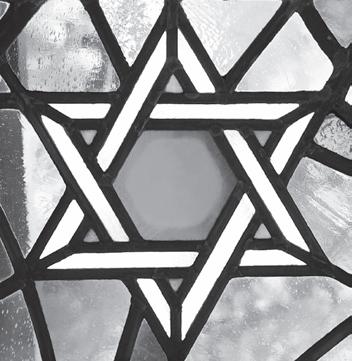
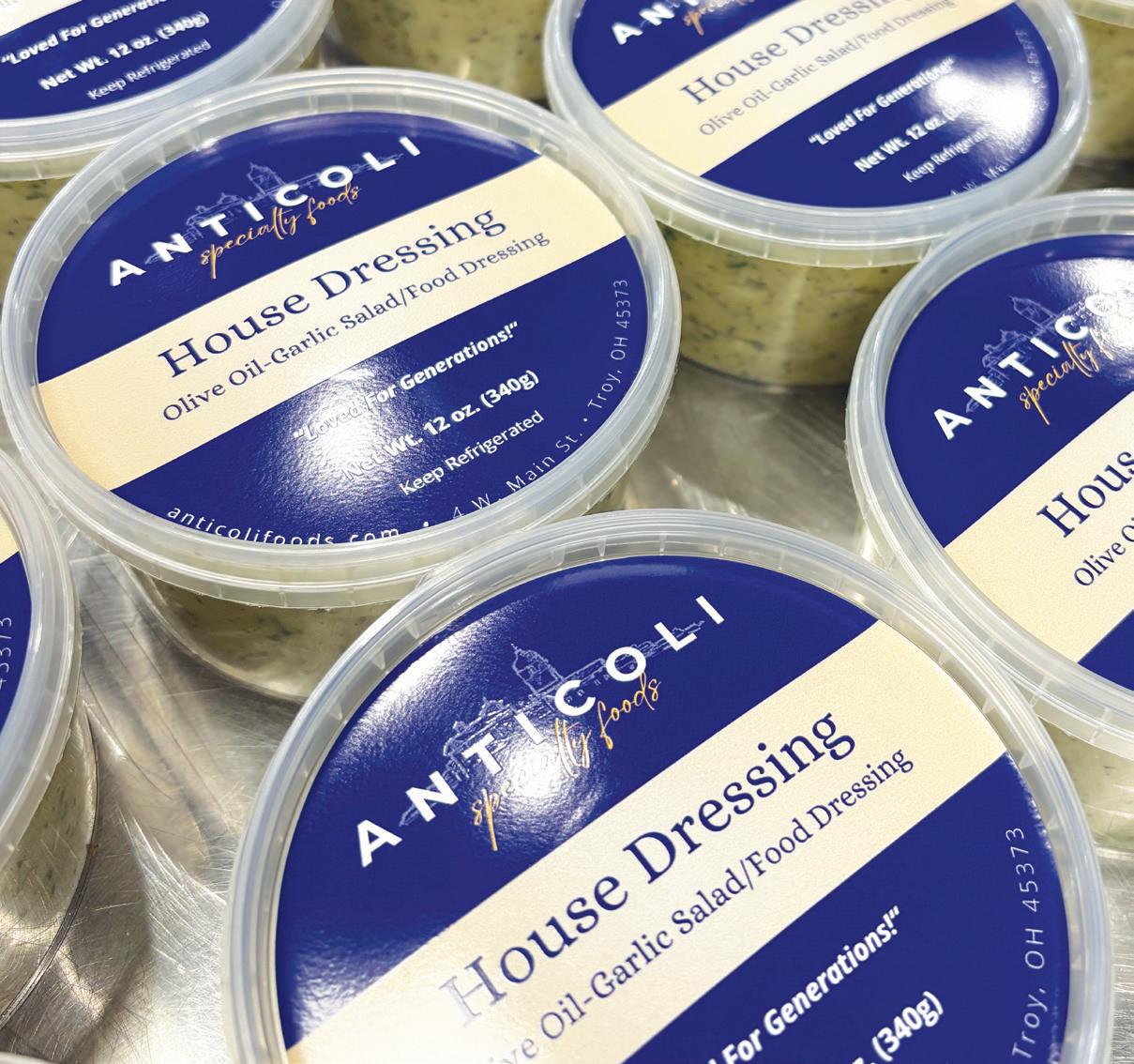



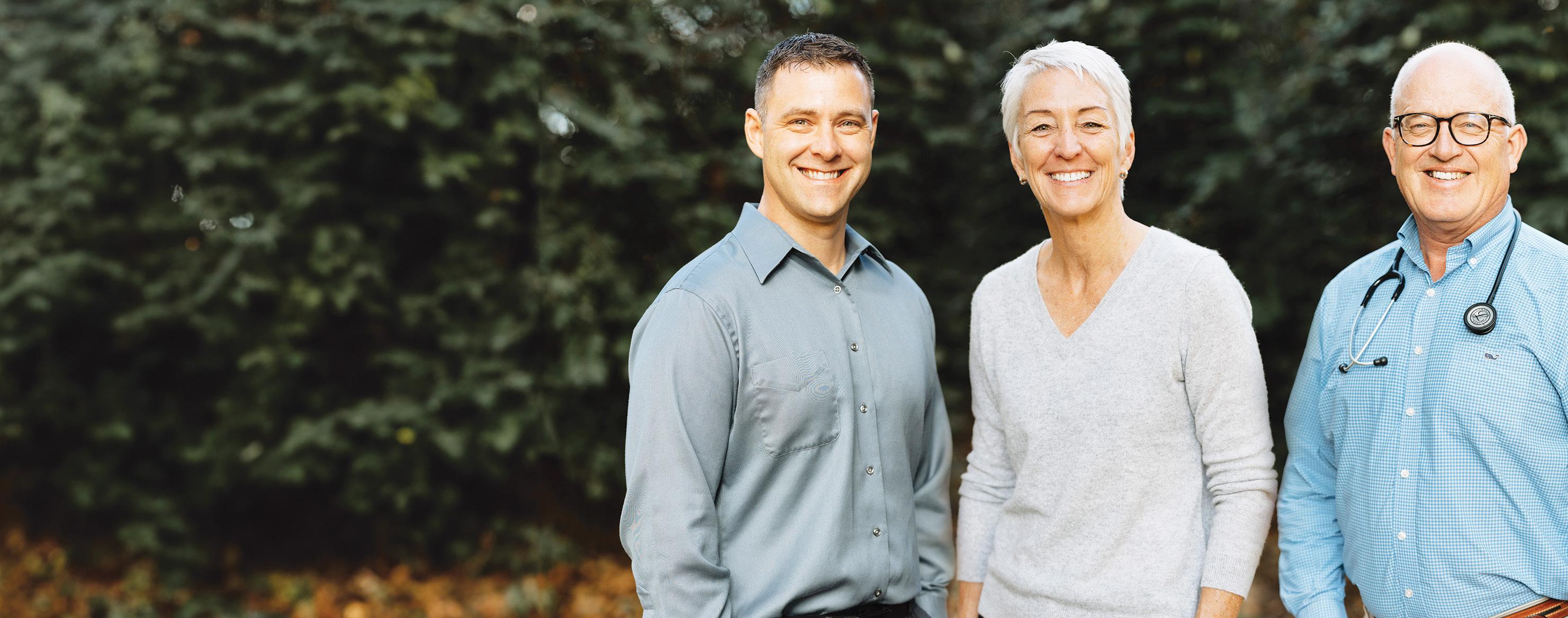
Beth Jacob Adult Hanukkah Party
Sunday, Dec. 21, 7-10 PM
by Rich & Dean
Enjoy a slideshow & live musical performance. RSVP by Dec. 18. Light refreshments will be served.
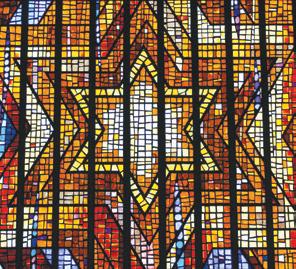

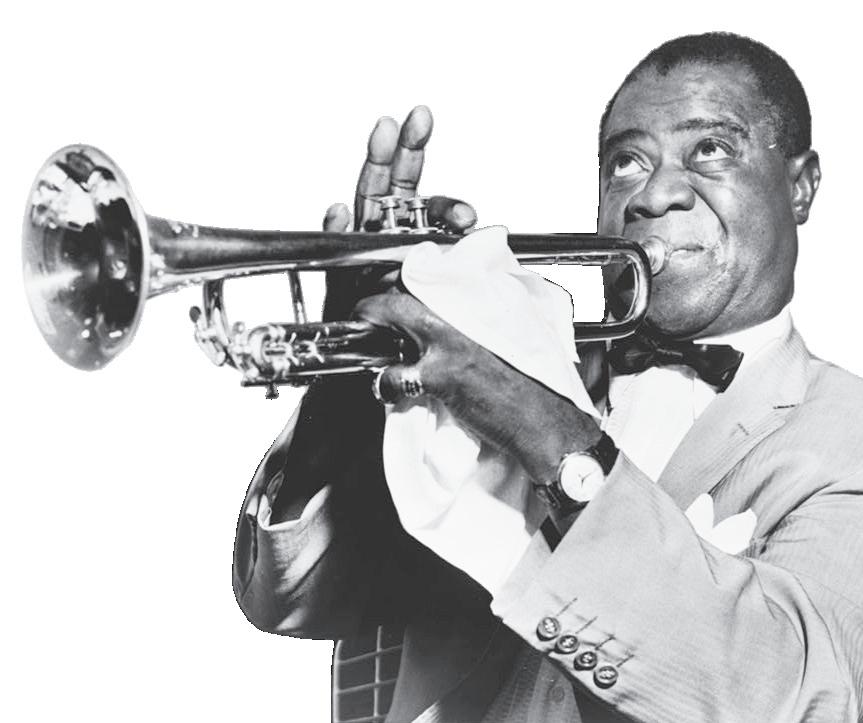
By Megan Henry Ohio Capital Journal
The Ohio House voted during its Nov. 19 session to pass a bill that would allow public schools and public universities to teach the positive impacts of "Judeo-Christian" religion on U.S. history.
Ohio House Bill 486, also known as the Charlie Kirk American Heritage Act, now heads to the Ohio Senate for consideration.
All Ohio Democrats present at the Nov. 19 session voted against the bill.
Kirk, a political activist who founded Turning Point USA and often spoke about his Christian faith, was killed while speaking at Utah Valley University on Sept. 10.
Republican state Reps. Gary Click (Vickery) and Mike Dovilla (Berea) introduced H.B. 486 two months ago.
The bill originally just
mentioned Christianity but an amendment in the House Education Committee broadened the scope of the bill to include "Judeo-Christian."
“We’re not talking about indoctrination,” Click said. “We’re not talking about preaching students. We’re not talking about narrative religions. We’re not talking about a Bible course. We’re talking about the factual events in history.”
With the Establishment and Free Exercise clauses as the first and second clauses in the First Amendment of the Bill of Rights, the U.S. Constitution stands as history’s most notable document establishing religious freedom in the United States at its founding.
“The bill flies in the face of the First Amendment because the government has no business endorsing or promoting a particular religious tradition,”


Ohio Rep. Sean Brennan, D-Parma, said.
“Never once has a teacher ever told me they were afraid to teach about the positive or negative impact of religion on American history.”
The bill outlines several examples that could be taught, including the history of the pilgrims, the religious background of signers of the Declaration of Independence, the religious influence on the U.S. Constitution, Benjamin Franklin’s call for prayer at the constitutional convention, the separation of church and state, the role of the Ten Commandments “in shaping American law,” how religious influence shaped the Civil Rights movement, and the impact of evangelist Billy Graham, among others, according to the bill’s language.
“These are examples,” Click said. “It’s not an exhaustive list, but these are examples that can help teachers understand the things that they can teach that are legal or lawful.”
History teachers already teach this in Ohio classrooms, said Brennan, a former teacher. “I taught many of the very documents listed in this bill.”
“A teacher has nothing to fear, as long as they’re not proselytizing. The Constitution doesn’t prevent us from teaching about religion. It prevents us from promoting it. There’s a big difference there.”
By Susan Tebben, Ohio Capital Journal
A measure that includes the Ten Commandments in a list of “historical documents” was passed in the Ohio Senate Nov. 19. Ohio’s public schools will be required to display at least some of the documents on the list in each classroom of each school, according to Ohio Senate Bill 34. The bill passed 23-10.
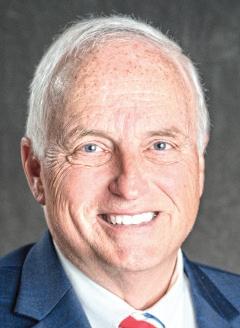
Other documents on the list include the U.S. Constitution, the Articles of Confederation, the Bill of Rights, the Declaration of Independence, the Northwest Ordinance, the Magna Carta, and the mottoes for Ohio and the United States.
Democrats in the Senate took issue with the bill, saying it went against the wishes of the founders not only in allowing the display of a religious text in public schools, but also in singling out one religious text over others.
“The founders valued religion and morality, but they didn’t see them as necessitating the display of them...in public institutions,” said Senate Minority Leader Nickie Antonio, D-Lakewood, in a floor speech Nov. 19.
She also pointed to an ongoing legal battle in Texas where a federal judge on Nov. 18 ordered some schools to remove Ten Commandments displays from classrooms, after parents claimed a violation of their constitu-
Continued on Page 12


We have the catering, delivery & delicious food to make your holiday celebration easy!

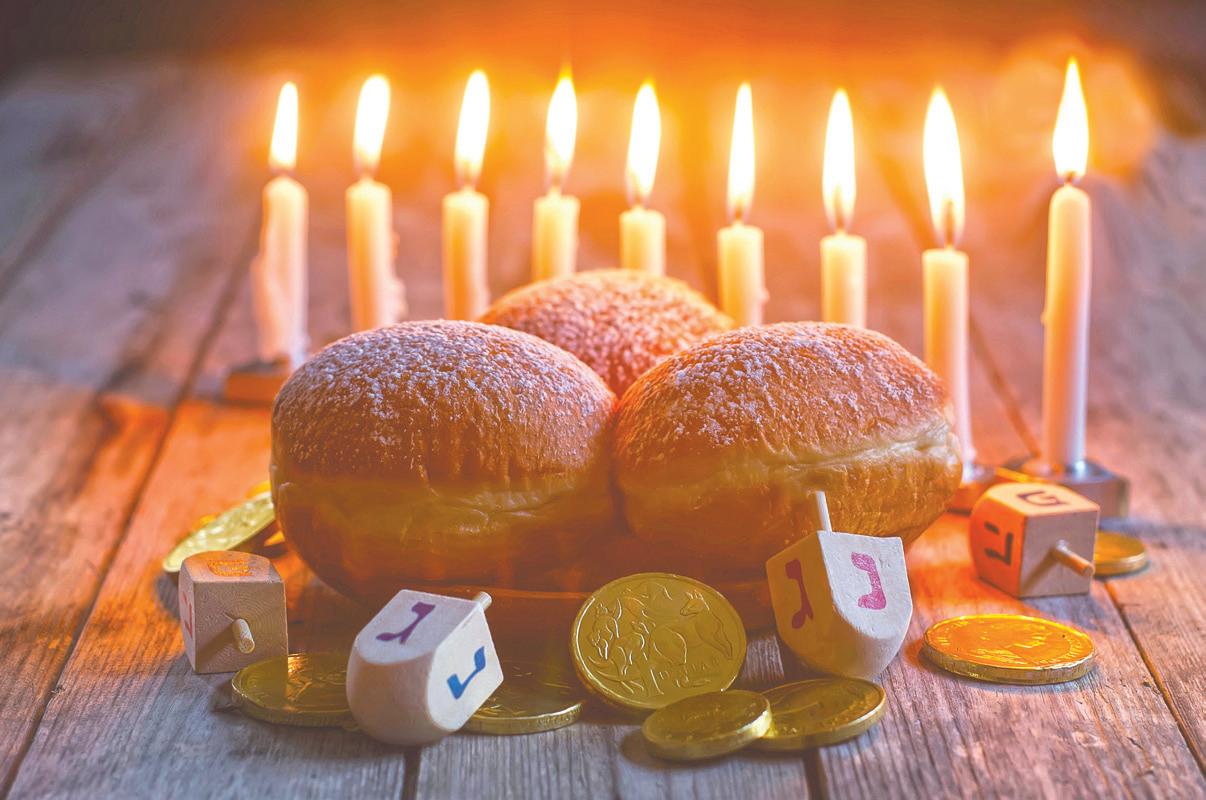
HADASSAH DAYTON
937-275-0227
P.O. Box 292815 Dayton, OH 45429
Hadassahdayton@gmail.com
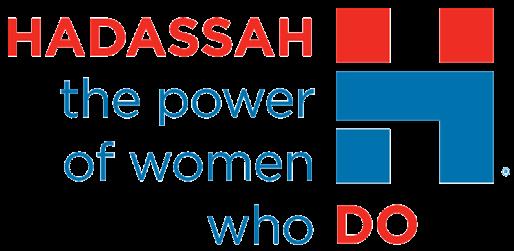
Joining Hadassah makes a great Chanukah gift! Please email us at hadassahdayton@gmail.com for more information
HVAC & Refrigeration
Kettering, Ohio 45429 • 937-604-2049
Tim Crafton, Owner • storchvacr@gmail.com
Wishing You A Happy Chanukah
Continued from Page 11
tional rights to religious freedom.
Bill sponsor state Sen. Terry Johnson, R-McDermott, said in an earlier committee hearing on the bill that students would see documents that have “served as the backbone of our legal and moral traditions as a people.”
In the Nov. 18 hearing of the Senate Education Committee, chair Sen. Andrew Brenner, RDelaware, doubled down on that argument after the leading Democrat on the committee, Sen. Catherine Ingram of Cincinnati, introduced an amendment to remove the Ten Commandments as one of the allowed documents in the bill.
'Public
“I personally don’t understand the reason for (removing the document), because many of our founders in fact relied on the Ten Commandments,” Brenner said, adding that there were “other influences there that were brought in using the principles of the Ten Commandments.”
whomever used that for their own rationale as to what their beliefs were.”
She pointed to testimony against the inclusion of the Ten Commandments that has come in the months since the measure was introduced.
Rabbi Megan Doherty of the National Council of Jewish Women testified against the bill in March, saying “treating this sacred scripture as just another item up on the wall in the classroom of a secular school, as S.B. 34 would, demeans and trivializes a text that is holy to many and will inevitably exclude students of minority faiths.”
schools must never be pressured, directly or indirectly, into religious endorsement or indoctrination.'
Dr. Christina Collins, executive director of advocacy group Honesty for Ohio Education, submitted testimony Nov. 18, opposing the bill as well.
She said it “is not responding to any demonstrated problem.”
“While the Ten Commandments hold deep personal significance for many individuals and faith traditions, their placement in public classrooms crosses a constitutional boundary,” Collins wrote.
Ingram said the text shouldn’t be included for a host of reasons, most significantly that the document is not a “founding” document, no matter its impact on the state and national founders.
“When you start talking about the founding documents, the Ten Commandments may have been, when you went to church, you went home and you did those things with your own religious beliefs,” Ingram said.
“But that is not considered a founding document, despite the fact that (John) Adams or
“Public schools must never be pressured, directly or indirectly, into religious endorsement or indoctrination.”
The bill has the support of D.C.-based evangelical nonprofit The Family Research Council, The Christian Business Partnership, and the Ohio Christian Alliance, all of which previously submitted testimony approving of the bill.
Brenner said the Ten Commandments is just one of the documents on the list, and may not be Continued on Page 35
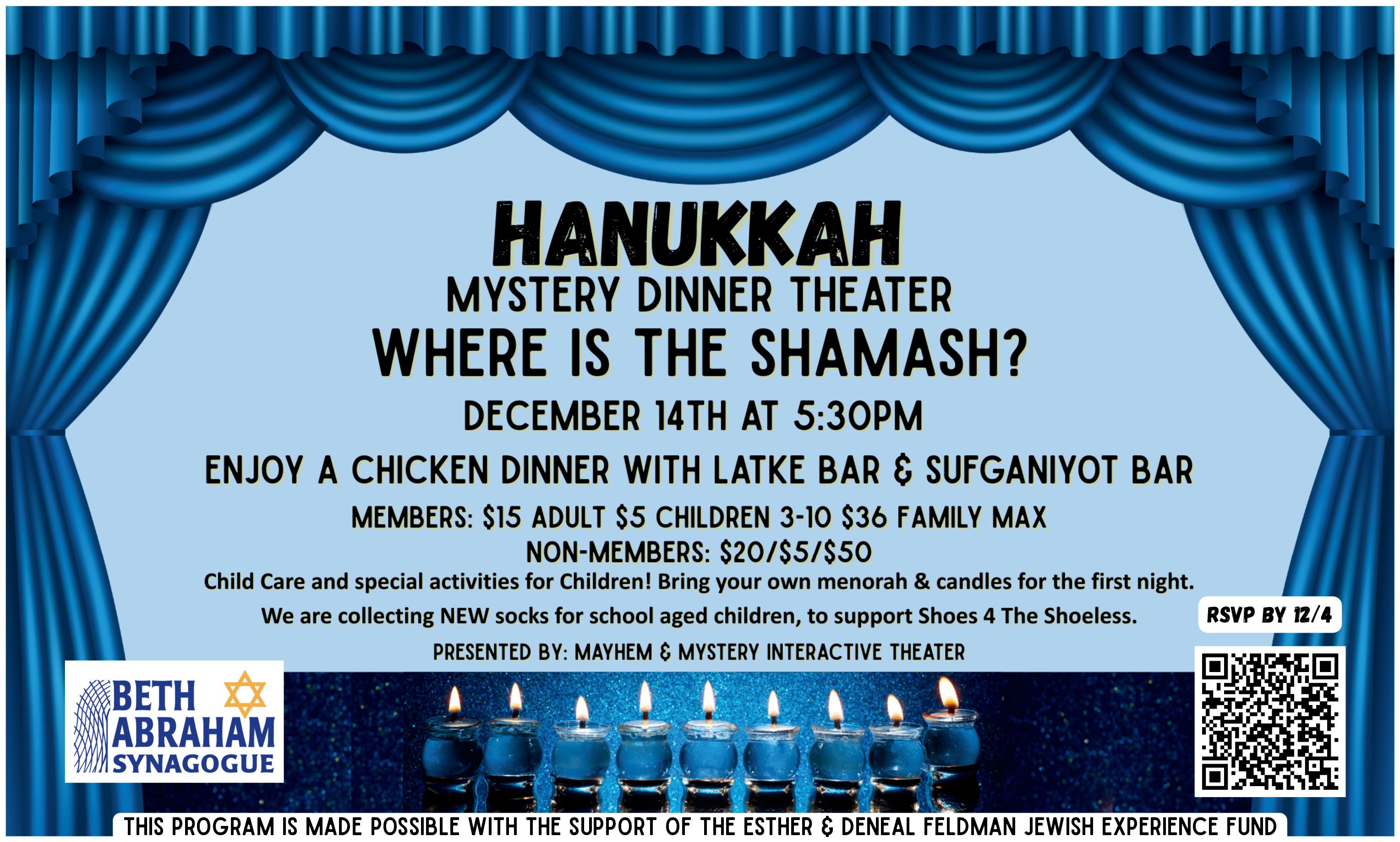
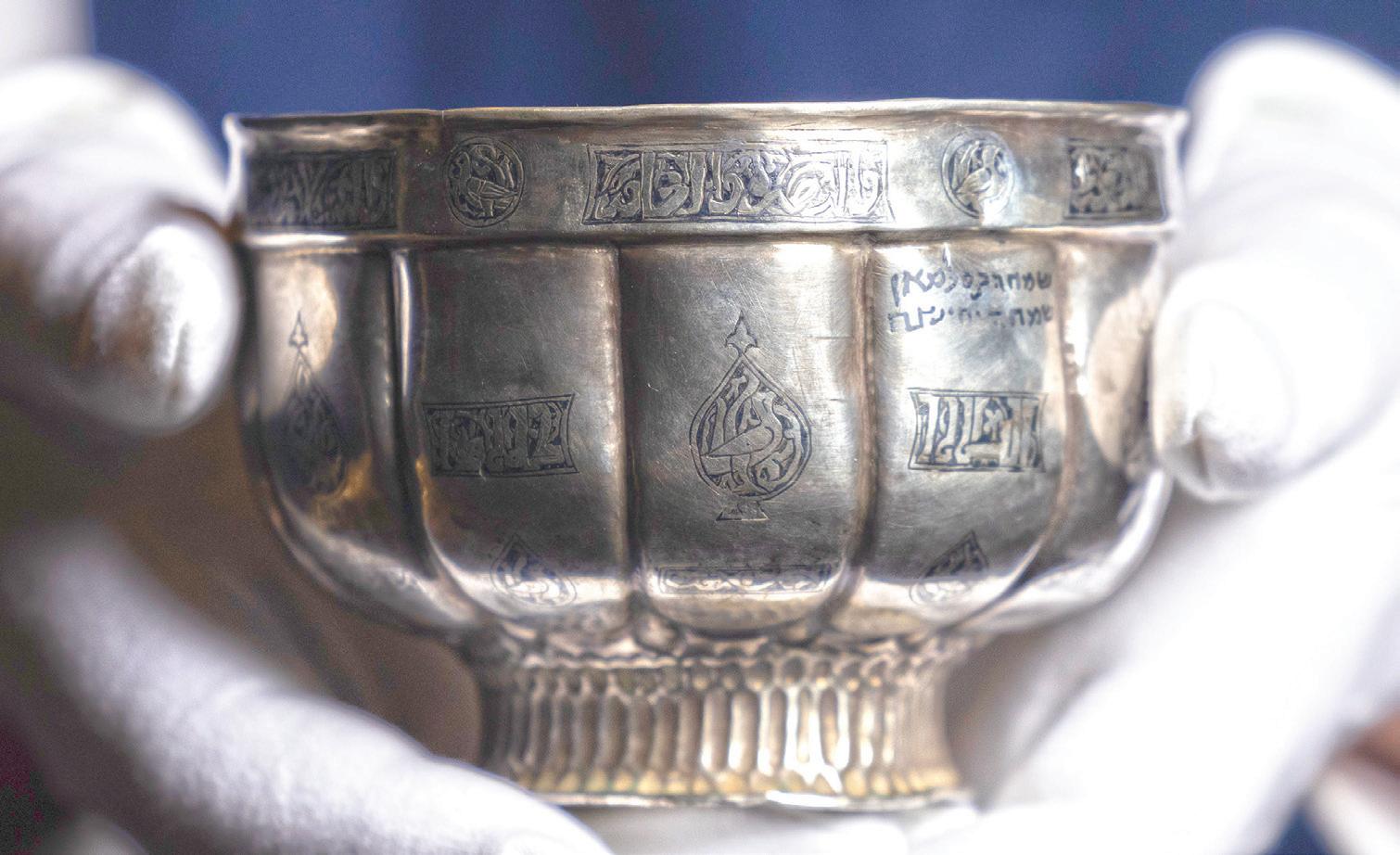
By Noah Hirsch-Rechter, Forward
In 2023, Boston’s Museum of Fine Arts opened a permanent Judaica gallery, the country’s third at a general — read: non-Jewish — institution. A year later, Houston’s MFA followed suit.
And in November, Ohio's Toledo Museum of Art continued this Judaica revival of sorts by acquiring a 12th-century Afghan Kiddush cup for a cool $4 million, a record for a ceremonial object of Judaica. (The previous high was $1.6 million, for a Rothschild Torah Ark.)
Sharon Liberman Mintz, international senior specialist in Judaica at Sotheby’s, New York, presided over the sale. “This object ticked all the boxes,” she told me over Zoom. “It’s close to 1,000 years old, and except for a little bit on the lip, which has been repaired, it’s in astonishingly good condition.”
The finely crafted silver cup is the oldest of the 25 medieval Judaica relics left in the world. Mintz sometimes asks people how many such artifacts they think have survived; their guesses are invariably too high, and she would know. “I counted them,” she said, chuckling a little.
The Toledo Museum of Art had been searching for an object that embodied the “connectivity” of the premodern era, said its director, Adam M. Levine, over email. The cup would make an excellent narrative device, therefore, calling attention to the largely forgotten medieval Jewish community of eastern Khorasan, modern-day Afghanistan; to the many fruitful exchanges between Jews and Muslims in the region; and to the crucial medieval trade route that sliced through central Asia, the Silk Road.
It was only recently that the Jewish contribution to Khorasan, an important hub of medieval silver production, was unearthed, thanks to the discovery of


a multilingual cache of letters, prayers and legal documents known as the Afghan Genizah.
These confirmed not simply that Jews existed in the region, but also revealed the extent of their collaboration — culturally, linguistically, financially — with non-Jews.
The Kiddush cup’s elegant Arabic and Hebrew motifs illustrate this nicely. Alongside the Hebrew name of the object’s owner — Simcha, or in English, joy — are a series of Arabic dedicatory phrases that also appear on other relics from the period, Mintz said. The word surur, joy in Arabic, is written twice, which likely is a reference to Simcha’s name, and is why Sotheby’s called the artifact the Cup of Joy.
The artifact is wide, flat and often mistaken for a bowl, Mintz added, but is in fact “the shape of wine goblets at the time.” And dotted along the cup’s rim are several teardrops so large they look almost cartoonish, each containing a bird — a pattern that appears on a number of other Khorasanian objects, too.
Levine was likewise taken in by the cup’s various influences; they seemed, to his mind, a kind of thumbnail version of the Jewish diasporic experience. “It represents such a compelling story of cultural exchange,” Levine said. “And it speaks not only to the religious commingling along the Silk Road, but also expands the narrative we can tell about this period in Khorasan.”
Mintz’s enthusiasm for the relic is so infectious that even an oppressive medium like Zoom can’t dampen it. “To be in the presence of something so old, that had such meaning, and that was so often used — it’s electrifying,” she said. “When people look at it, they’re just mesmerized.”

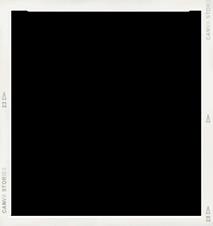
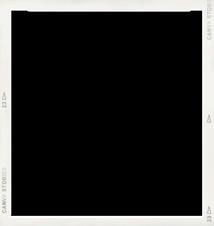
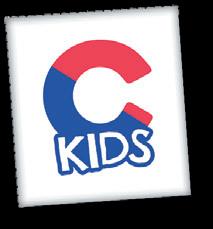
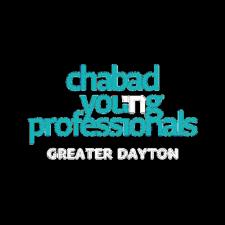

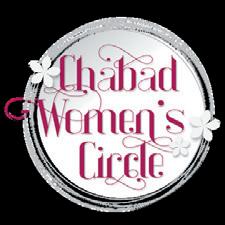




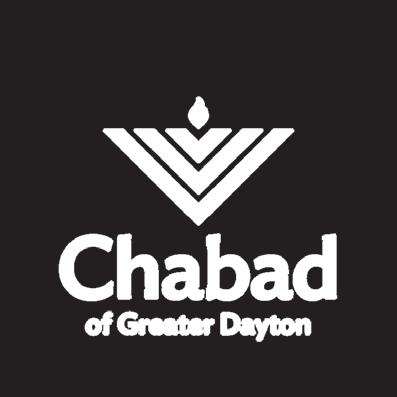
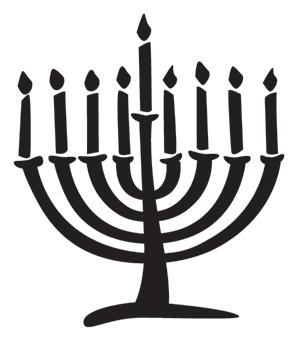


By Rossella Tercatin The Times of Israel
Over 400 people who live in the West Bank’s Etzion settlement bloc have signed a petition condemning violent attacks against Palestinian property and residents at the hands of Israeli settlers, one of its initiators told The Times of Israel Nov. 23.
The appeal, disseminated the week before, addressed local religious and political leaders, calling on them to speak up against the violence. The beginning of the petition quotes a verse from the Torah warning the Jewish people to behave in such a way “that the land not spew you out.”
“We, residents of Gush Etzion, lovers of Zion and the Land of Israel, feel that we cannot remain silent in the face of the terrible wave of violence in recent weeks — horrific acts such as houses set on fire, vehicles burned, property and flocks destroyed, shooting, physical assaults carried out against Ar-
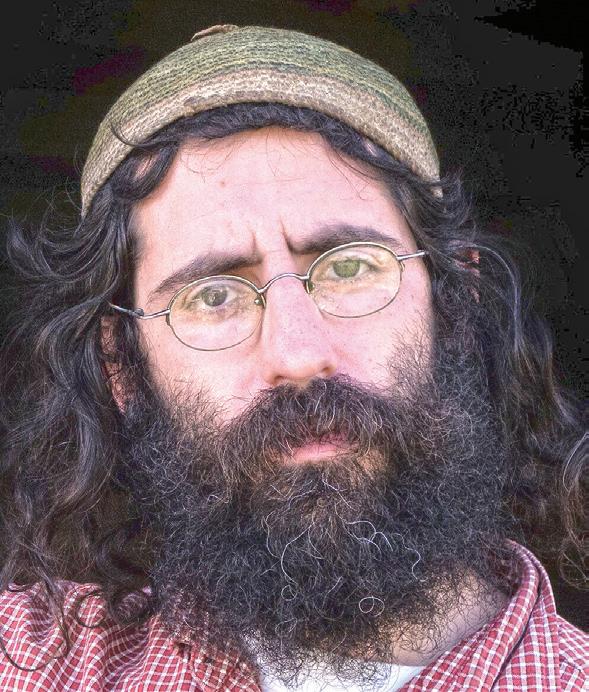
abs residing in the Gush Etzion bloc, with the intent of harming children, women, and men,” the petition reads. “These acts stand in violation of the law, morality, and halacha (Jewish law).”
Rabbi Shaul Judelman, 46, a resident of the local settlement of Tekoa, said the petition has been circulating at the initiative of a group of about 40 Gush
Etzion residents who have been organizing to oppose extremist violence for over a year.
“Since the war began, we have been hearing of attacks by extremist youth, mostly against Palestinians in the area, that went beyond any pale of justification,” Judelman, who has lived in the Gush Etzion area since he moved to Israel from the United States in 2000, said in a phone interview.
“It wasn’t people defending themselves. It was people going out and burning houses or killing sheep. And (we had) a sense that this sometimes is happening around our communities and we have a responsibility to address it,” he said.
The IDF has recorded over 752 incidents of nationalistic crime and settler violence since the start of the year. The total for 2024 was 675 incidents.
“After Oct. 7, the sense that what happened in the Gaza border communities could happen anywhere has been very raw,”


Judelman said, referring to the 2023 Hamas-led onslaught in southern Israel.
“Many of the people in our group are in the reserves, guarding our towns, serving in Gaza,” he said. “But at the same time, there’s a question of where the red line is, how we defend ourselves, and what actions we see not as defending ourselves, but actually weakening ourselves, at least in front of God, and I think also morally, in (terms of) what it means to live here.”
Judelman noted that the group, as well as the petition, chose to focus not on the West Bank as a whole but specifically on Gush Etzion because they are familiar with the reality on the ground. (A similar petition has since begun circulating in the Kfar Adumim settlement in the central West Bank.)
'The idea of the petition has been to put pressure on the head of the regional council so he can see that this matters to people.'
each other for a long time, and there are connections,” he said. These connections have at times enabled Judelman and other Israeli residents to help Palestinian victims of violence. He mentioned a case where some cars were destroyed at a garage in the Palestinian town of Jab’a, at a business that is also popular among Israeli clients due to its affordability and the owner’s reputation.
“The owner, Muhammad, volunteers with an Israeli nonprofit that helps people stuck on the road,”
Judelman said.
has lived in the settlement of Elazar for 29 years, said raising these topics locally has not been easy. “In my community in Elazar, I feel people don’t want to talk about it,” she said in a phone interview. “I think anyone I would talk to would say, ‘Of course, we condemn violence, but they are always attacking us, or it’s not as bad as you think.'”
Goldman Barash said she recently joined the activist group working to raise awareness about the violence and has signed the petition. But she has felt nervous about sharing it with her contacts, fearing backlash.
“Maybe we do not always know for certain what the facts are in other places, but in Gush Etzion, there are many Jews and Palestinians who have known



“One of the cars belonged to an Israeli who had just finished serving in Gaza.”
The 400 who signed the petition are a small fraction of the close to 30,000 Israelis who live in the Gush Etzion settlements, and one signatory said the issue of settler violence is a fraught one in the bloc.
Nechama Goldman Barash, an educator at several advanced Jewish studies institutions who
“I still haven’t really put it out on WhatsApp groups in my community,” she said. “I went to Facebook instead, because people are very hostile to admitting that we have this problem.”
She continued, “The narrative is that the Palestinians are violent, and we only respond when we’re attacked, and so the idea that there might be Jewish settlers who do these terrible acts unprovoked is very difficult. In addition, sometimes people think it’s just a small group and they don’t really matter.”
Continued on Page 16
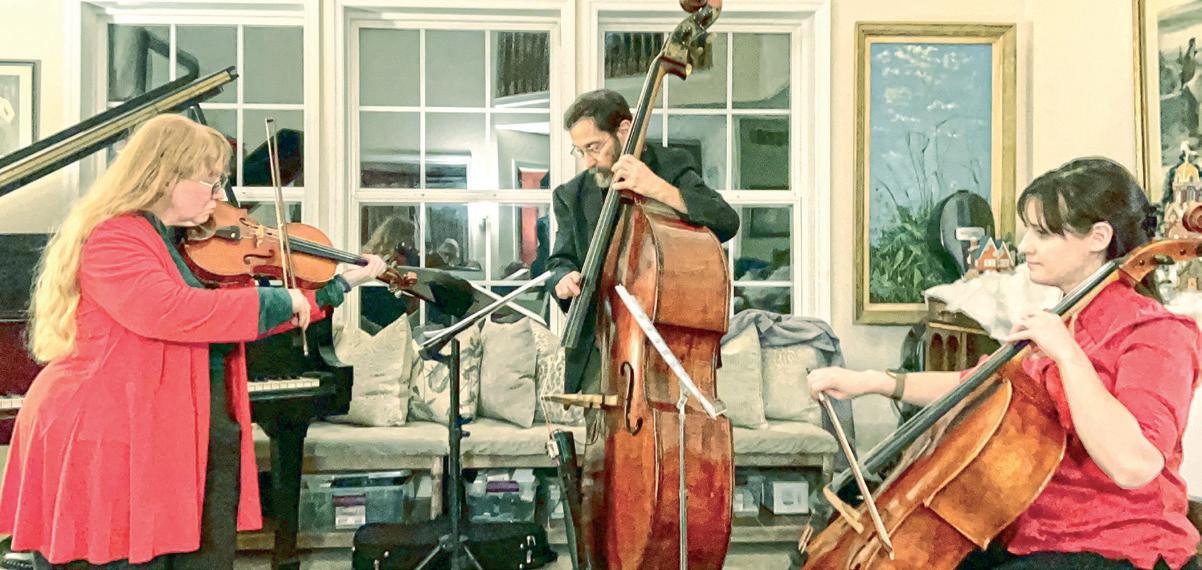











Nearly 2 Acres Overlooking DCC Golf Course Admired for generations, see remarkable renovations and restoration work throughout this exceptional home including the stunning kitchen, Butler’s pantry, new windows, new elevator serving all floors and more.
6+ Bedrooms, 5 Full & 1 Half Baths, 6200 Sq Ft, 1.8 Acres WavingWillow.com
Private oasis on 4.2 acres, custom built by Rhoads Estate Homes with saltwater pool and restored antique library. The lower level includes home spa, home gym, game rooms and kitchenette. A guest apartment with full bath and kitchenette is above the four car garage.
4/5 Bedrooms, 6 Full & 2 Half Baths, 10,000 Sq Ft 4.2 Acres
West Kettering Estate 5048OakManor.com


Continued from Page 15
Goldman Barash said that even if the perpetrators are small in number, it is still essential to raise alarm over the attacks in order to get the attention of local officials.
“We should protest people who are violent in unspeakable ways, so we can confront it and deal with it,” she said. “The idea of the petition has been to put pressure on the head of the regional council so he can see that this matters to people.”
Judelman likewise said that, more than collecting signatures, the initiative’s goal is to start a conversation about the violence in the community.
“Many people do not sign petitions, and we did not really do a big push for people to sign it; we shared it on our social media, on some WhatsApp groups, but we did not go to the main media,” Judelman said. “Also, let’s be honest, during wartime, it is hard to do something self-critical, and many are not aware of the extent (these attacks) are happening.”
He said, however, that the petition and recent incidents, including Israel’s demolition of a local illegal outpost, have meant that “people are talking more.”
Judelman described the violence as an affront to his Jewish values.
“That’s not my Judaism, that’s not what we came here to do,” he said. “As the Jewish people, we’ve waited for thousands of years to have an army to
defend ourselves. That army has the right to use force to do what they need to defend us, and of course, there is a right to self-defense, but you do not have the right to go and attack someone.”
The group of activists from Gush Etzion has been working to meet local leaders, rabbis, educators, and army officers. It has also made efforts to meet representatives of the so-called “hilltop youth,” the network of extremist settlers thought to be behind the violence targeting Palestinians, as well as Israeli troops and police.
According to Judelman, the response among local authorities has been positive. “There are different levels and facets to the problem. One part is about education. There is a lot of youth at risk, and I think there is a big challenge of how youth go through this conflict right now.”
He added, “I think the sense that the army failed us is very vivid across Israel post Oct. 7, and I believe we have a job of restoring faith in the army.”
He said that all of those factors demand a multifaceted response to the outbreak of violence.
“If we really want to work on this issue, we need social workers, we need therapists, we need rabbis, we need parents,” he said. “There needs to be enforcement that goes to the roots of the problem, a question of faith in institutions, of people having places to go, of channeling energies into the right place. There is a problem of ideology, but also of not feeling protected by the state.”

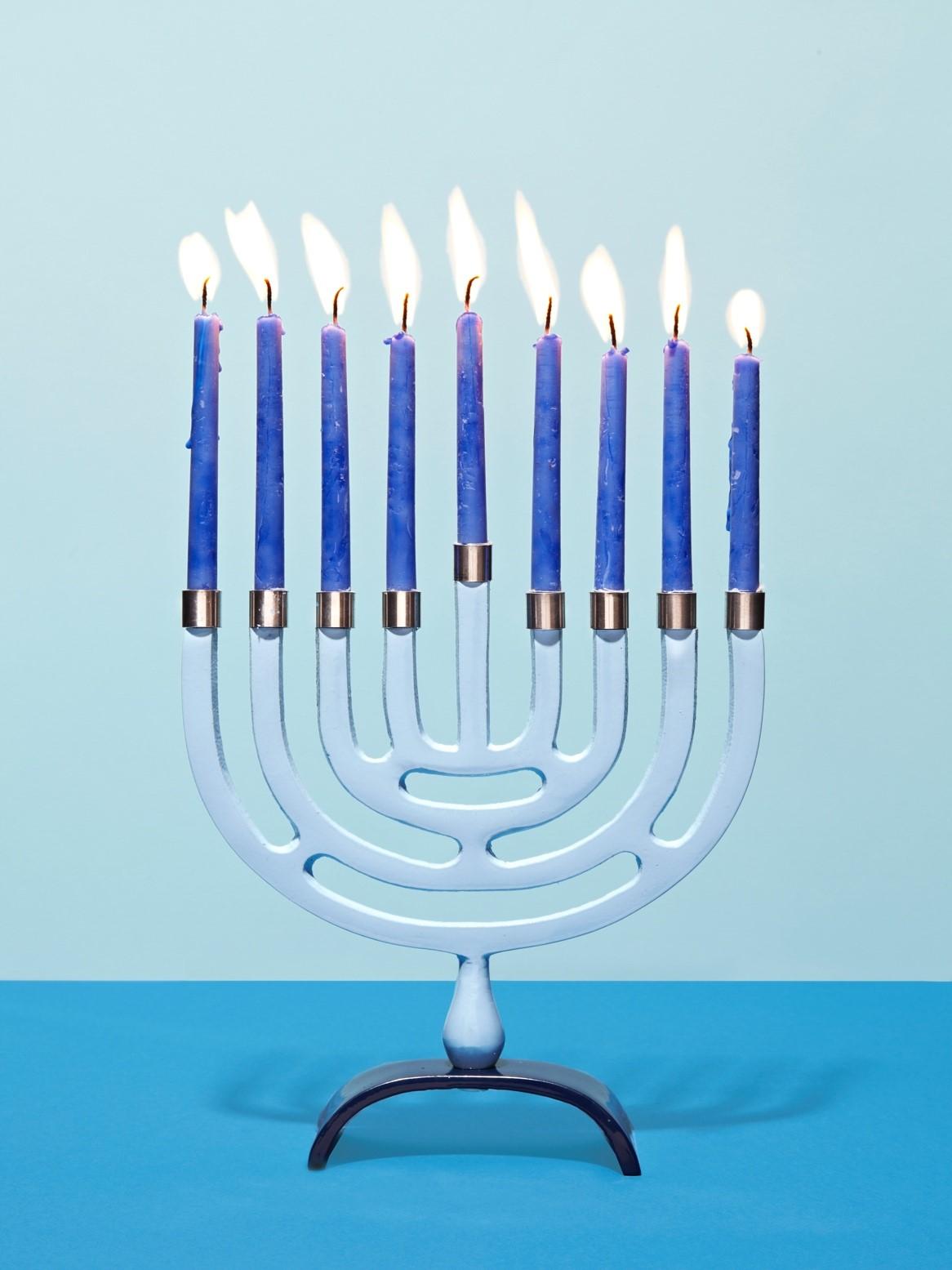



SUNDAY, DECEMBER 7, 2 - 4PM
CABS – Beejhy Barhany, Gursha: Timeless Recipes for Modern Kitchens from Ethiopia, Israel, Harlem, and Beyond
FRIDAY, DECEMBER 12, 6 - 7:30PM Dayton BBYO Global Shabbat Dinner
SUNDAY, DECEMBER 14, 11:30AM - 1PM
JCC Adult Chanukah Brunch
SUNDAY, DECEMBER 21, 6 - 7:30PM Dayton BBYO’s Chanukah Pajama Party & White Elephant Swap
TUESDAY, DECEMBER 23, 10AM - 3PM JFS In-Person Mitzvah Mission






Sunday, December 14
11:30AM – 1PM
Boonshoft Center for Jewish Culture & Education 525 Versailles Drive, Centerville, 45459
Adults ~ Join the JCC, Jewish War Veterans Post 587, and Hadassah to celebrate Chanukah! There will be door prizes, Chanukah songs, and musical entertainment by Steve Wyke, Marc Gilbert, and Jese Shell.
Includes Kosher lunch: fresh garden salad with dressing, tuna salad, egg salad, potato latkes, sour cream, applesauce, bagels, cream cheese, fresh fruit salad, assortment of donuts and cookies, co ee, tea, and juice.
In the spirit of holiday giving, please bring canned goods for donation to the local food bank.
$20 per person. Register online by Monday, December 8 at jewishdayton.org/events
Questions? Contact Stacy Emo at 937-610-5513 or semo @jfgd.net




Sunday, December 7 at 2PM
In partnership with Beth Abraham Sisterhood and Men’s Club
Beth Abraham Synagogue
(305 Sugar Camp Circle, Oakwood, 45409)
Cost: $10



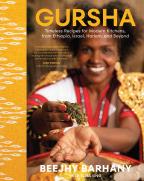





FEATURING a sampling of the author’s recipes
Must register by Wednesday, December 3
Beejhy Barhany, Gursha: Timeless Recipes for Modern Kitchens from Ethiopia, Israel, Harlem, and Beyond
Gursha, which loosely translates as the act of “feeding one another,” is the debut cookbook by Ethiopian Israeli chef and restaurateur
Beejhy Barhany, cowritten with food writer Elisa Ung. Barhany traces her life from childhood in Tigray, Ethiopia, to exile in Sudan, then on to Israel, and ultimately settling in Harlem, New York, where she founded Tsion Café. Through personal essays and stories, she frames her recipes in the context of Beta Israel (Ethiopian Jewish) history and identity.
To purchase tickets, please visit jewishdayton.org/events or call 937-610-1555


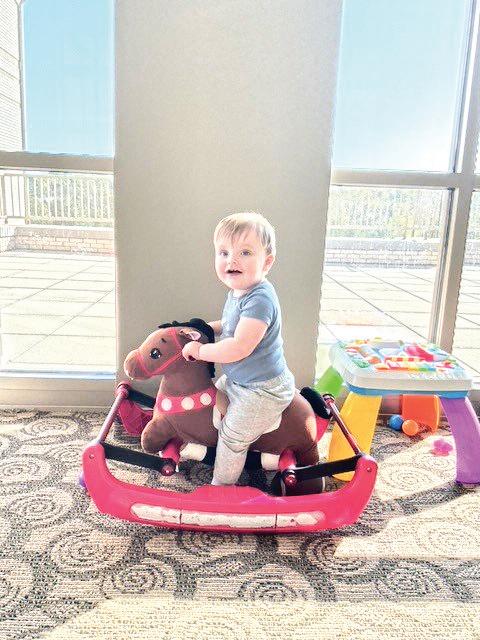




The Jewish Community Center Preschool may be the place for you. We’re excited to announce that we’re expanding our program to include two infant rooms!
Hurry, spaces are filling up quickly!
Please reach out to our director, Katie Lagasse, with questions or to schedule a tour at klagasse@jfgd.net or 937-610-1794.
At Camp Shalom, we warmly nurture the qualities that create lasting friendships: kindness, empathy, bravery, trust, and communication. Winter Camp Shalom is packed with adventures and exciting field trips that include The IMAX Theatre and Newport Aquarium. Every day brings something new: cooking projects, arts and crafts, STEM explorations, and fun indoor sports.

December 22-26
December 29 - January 2, 2026
Closed December 25 & January 1 at Temple Beth Or
Hours:
Camp day 9AM - 4PM
Rise & Shine 8 - 9AM
Stay & Play 4 - 5:30PM
Cost:
$200 per 4-day week or $75 a day
Rise & Shine $5 per day
Stay & Play $7 per day
For more information and to enroll, please contact Jennifer Holman at jholman@jfgd.net or 937-401-1550.
JCC Youth & Parent Mitzvah Day
Monday, January 19, 2026
Boonshoft Center for Jewish Culture & Education 525 Versailles Drive, Centerville, 45459
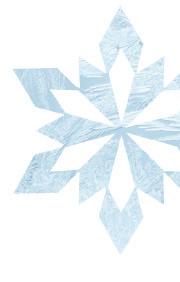
Join us for Family Mitzvah Day at the JCC! Families are invited to give back to the community together by choosing from a variety of hands-on mitzvah stations. Select the activities that resonate most with your family — whether it's crafting toys for shelter animals, assembling bag lunches for those in need, or participating in other meaningful service projects.
All supplies provided. Drop in anytime during the event — no registration required!

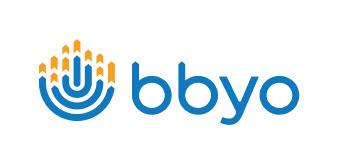
The Annual Drew Corson Basketball Tournament will be held Friday, January 16 - Sunday, January 18, 2026. It's an opportunity for AZA and BBG members to travel to Louisville to participate in a weekend full of fun! Teens can look forward to Shabbat dinner and services + BBYO tradition and ritual programming. Teens who don't play in the tournament are also encouraged and welcome to join. For more information, please reach out to Jenn Holman at jholman@jfgd.net.
Saturday, January 24, 2026, 6 – 8PM
Join us for an evening of fun, food, and friendly competition! We'll have a wide selection of board and card games ready to play, but you're welcome to bring your own age-appropriate favorites to share with friends. Junior Youth Group is open to all Jewish youth in 5th-7th grades.
Pizza will be served (Kosher dairy).
Cost is $10 per child. RSVP by January 19, 2026.
JEWISH FEDERATION OF GREATER DAYTON ENDOWMENT FUND
In honor of Bob Bernstein’s 85th birthday
Sally and Richard Broock
Debby and Bob Goldenberg
Linda and Jerry Spiegel
DAYTON JEWISH CHORALE FUND
In honor of Cantor Andrea Raizen’s special birthday
Linda and Steve Horenstein
HOLOCAUST PROGRAMMING FUND
In memory of Felix Weil
Helene Gordon
JOE BETTMAN MEMORIAL TZADIK AWARD
In memory of Elaine Pockrose
Melissa and Tim Sweeny
JEWISH FAMILY SERVICES
In honor of Beverly Saeks’ special birthday
Aimee Krizner
JoEllen and Bob Cohen
JOAN AND PETER WELLS AND REBECCA LINVILLE FAMILY, CHILDREN AND YOUTH FUND
In honor of Alan Engel’s special birthday
Joan and Peter Wells
Did you know you can honor a friend or family member through a Legacy, Tribute or Memorial?
A donation to one of the Jewish Foundation's many endowment funds benefits our Jewish community while honoring a loved one. For more information, please contact Janese R. Sweeny, Esq. CFRE, at 937-401-1542.


Jewish Family Services is collecting food donations for the Dayton Foodbank. Please bring unexpired, non-perishable items to the Boonshoft Center for Jewish Culture & Education.

Tuesday, December 23, 10AM - 3PM Boonshoft Center for Jewish Culture & Education 525 Versailles Drive, Centerville, 45459
All ages welcome
Have fun with friends old and new while making warm hats and scarves for the guests at St. Vincent de Paul. Light noshes will be served.
If you have any questions, please call Jacquelyn Archie, JFS administrative assistant, at 937-610-1555.
No cost. RSVP by December 19 at jewishdayton.org/events.
A Manhattan rabbi describes a terrifying experience during a recent 'protective presence' mission.
By Rabbi Sarah Reines
On Nov. 4, as New Yorkers cast ballots in a mayoral race defined by a frenzy of fear, I, too, was afraid. But my fear came not in my home city, but in a tiny village in the West Bank, when Jewish settlers aimed their guns at me and other volunteers harvesting olives.
I was part of a group of American Jewish clergy, organized by T’ruah: The Rabbinic Call for Human Rights, participating in Protective Presence: placing ourselves by the homes of Palestinian farmers and shepherds. The shameful reality is that Palestinians are less likely to be harassed or attacked when Jews or internationals stand beside them.
We came unarmed; the goal is nonviolent resistance and de-escalation. Despite the looming presence of IDF vehicles, there was serenity in that grove: the rustle of branches, the rhythm of rakes, the hum of strangers becoming friends. Then a drone appeared overhead.
After hovering for nearly an hour, it dove and struck an Israeli rabbi, leaving a deep gash in her arm. Moments later, two Jewish settlers in military clothing stormed toward us shouting with rifles raised. They demanded their drone, which lay among bushels of olives exactly where it had fallen. One grabbed it, and they backed away, rifles still pointing. Then, a shot — the sound sharp, deliberate, meant to terrorize.
There were screams; some dove to the ground. I froze, thinking the olive trees were too narrow to shield me from bullets. I wondered how to dodge what shots might come next. When the settlers finally retreated, I panicked, scanning the grove to see if anyone was injured or dead. Then I went limp.
The settlers told the Israel Defense Forces that we had brought down their drone with stones and attacked them with clubs. We showed soldiers video proof of the truth, and one of the settlers has been fired as an army reservist in the wake of the incident, but the attackers’ blatant lies remain in the record.
The fear and helplessness our group experienced that day is what Palestinians in the West Bank endure every day — with far greater violence and under total impunity. They live with danger not as visitors, but as a condition of life.
Settler assaults on Palestinians are now commonplace and worsening. Homes and groves are torched, families displaced, livestock stolen and tortured, people beaten and sometimes killed. Police and soldiers often look on and do nothing, further emboldening these acts of terror.
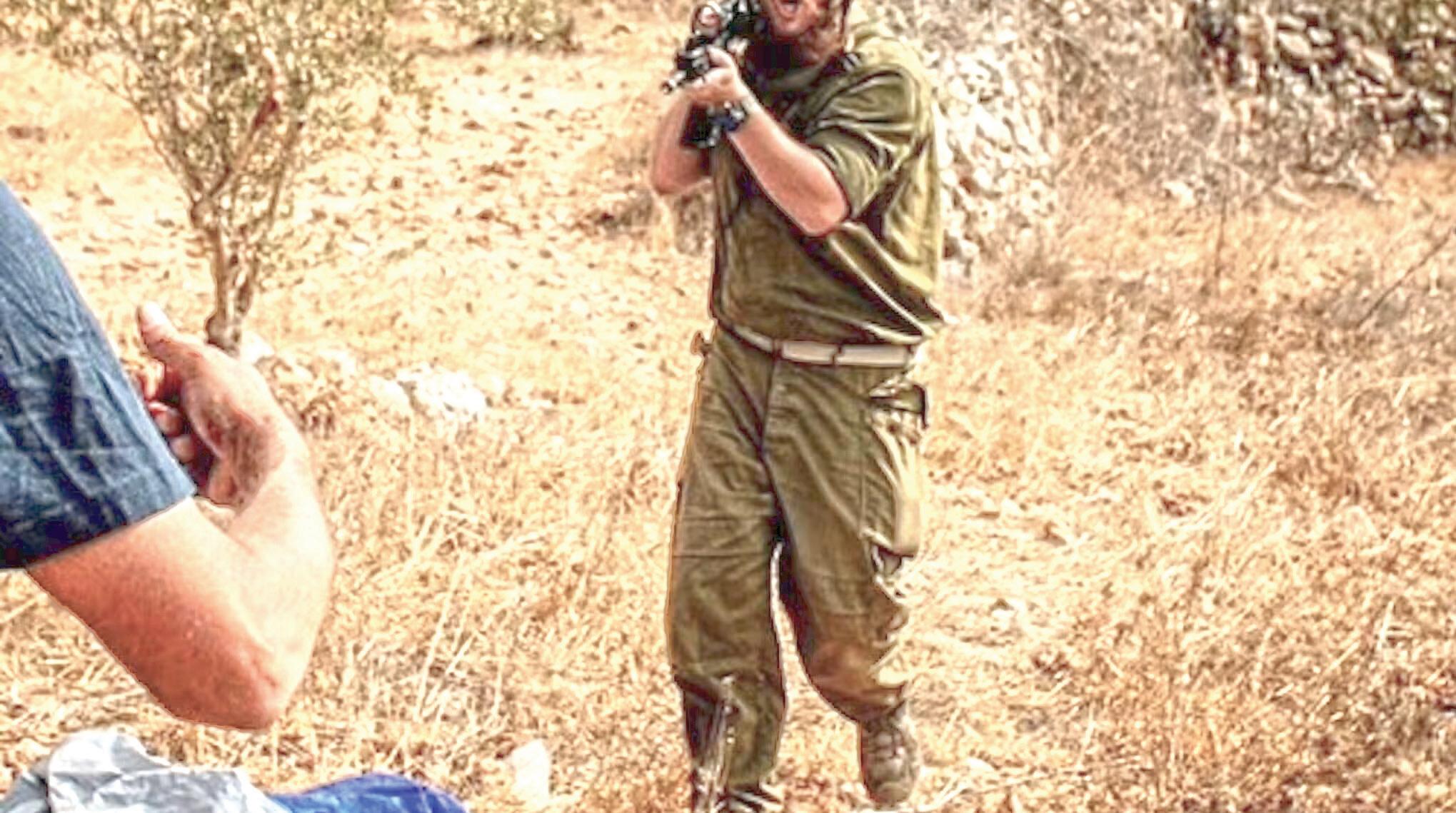
smashed car windshields and shook synagogue doors. When people fled, the attackers spat, tore kippot from their heads, and hurled firecrackers, shouting, “Go to Gaza!”
Only three suspects were arrested, and all were soon released. The next day, a local Likud official posted, “This is only the opening shot. Don’t try us.”
As I wrote this, a young friend who is a Palestinian citizen of Israel just texted me that she was attending a speaking event of Arab lawmaker Ayman Odeh when a right-wing mob assaulted her and others — cursing, spitting, throwing eggs and bottles. Her eyes still burn from coffee hurled in her face.
The shameful reality is that Palestinians are less likely to be harassed or attacked when Jews or internationals stand beside them.
The crisis has continued to escalate: On Nov. 12, masked settlers attacked two Palestinian villages, eliciting an unusual public expression of concern from U.S. officials and a rare rebuke from Israel’s president.
the product of a movement that sanctifies land over life and power over peace.
Three decades later, that toxic messianism sits in Israel’s halls of power. Days before Rabin’s murder, a 19-year-old was televised proudly displaying an ornament ripped from the prime minister’s car, bragging, “Just like we got to this emblem, we can get to Rabin.” That teenager was Itamar Ben-Gvir, now Israel’s minister of national security, overseeing the Border Police in the West Bank.
As American Jews, we have long understood our role as supporters of Israel’s safety and soul. That covenant must include the courage to confront threats from within and act to counter it.
Recently, on a public WhatsApp channel, extremist settlers boasted an inventory of their destruction — how many vehicles and houses they burned, how many “Arabs” they injured. They proudly included a video of what appeared to be a settler bludgeoning a 52-year-old woman harvesting olives.
Extremist violence has crossed the Green Line. Last May, dozens of fanatical Jews attacked Jews attending the screening of a joint Israeli-Palestinian memorial service at a Reform synagogue in Raanana. They
So, what do you think?
More often, this ideological violence is spurred on by government officials. Even as Israel was grieving the heinous slaughters and atrocities of Hamas on Oct. 7, extremists within the government exploited that horror to accelerate settlement expansion and vigilante violence. One far-right minister called the Gaza war “a time of miracles” for the settlement movement.
The day I faced Jewish gunmen in that olive grove — Nov. 4 — carried a chilling echo: 30 years earlier, Yitzhak Rabin was murdered by a fellow Jew, Yigal Amir. Rabin, soldier turned statesman, spent his life defending Israel and risked everything to pursue a path to a shared future. Amir was not an outlier but
There are many ways to respond beyond Protective Presence. Continue educating yourselves. Follow Rabbis for Human Rights and Bnei Avraham, doing the work on the ground, and their posts to raise awareness. Contact your representatives to support the West Bank Violence Prevention Act. Join brave Israelis in speaking out against this scourge as an act of love for Israel.
Thirty years after Rabin’s murder, Israel still bleeds from the wound he tried to heal. In the olive groves, I felt the pain of that wound in the fear born of unchecked violence, and there, I also felt the enduring strength of Rabin’s legacy in the determination of those working for a shared future.
It is time to renounce the ideology of supremacy and reclaim the promise of an Israel where humanity is sacred and peace is still possible.
Rabbi Sarah Reines works at Temple Emanu-El on Manhattan's Upper East Side. Distributed by JTA.
Classes
Beth Jacob Classes: Call to register for classes, 937274-2149. Tues. Dec. 2 & 9, 10:30 a.m.: Hebrew Reading Crash Course w. Chaya Vidal in person. Tuesdays, 7 p.m.: Torah Tuesdays w. Rabbi Agar on Zoom. Thursdays, 7 p.m.: Thursdays of Thought w. Rabbi Agar on Zoom. 7020 N. Main St., Harrison Twp.
Chabad Classes: Wednesdays, 7:30 p.m.: Talmud Class in person & Zoom. Call for Zoom link & location. Fridays, 9:30 a.m.: Women’s Class. Call for location. 2001 Far Hills Ave, Oakwood. 937-643-0770.
Temple Beth Or Classes: Sat., Dec. 13, 27, 10 a.m.: Apocryphal Study in person & Zoom. Thurs., Dec. 18, 6 p.m.: Navigating Loss w. Andy Chaet. Wed., Dec. 24, 7 p.m.: The Jewish Short Story, on Zoom. Register at templebethor.com/calendar. 5275 Marshall Rd., Wash. Twp. 937435-3400.
Temple Israel Classes: Saturdays, 9:15 a.m.: Virtual Torah Study on Zoom. For Torah Study Zoom info., email Fran Rickenbach, franwr@gmail. com. Tues, Dec. 2, 9, 16, noon: Talmud Study in person & Zoom. Wed., Dec. 3, 10, 17, 10 a.m.: Torah Study Commentary in person & Zoom. For Zoom info. email info@ tidayton.org. Fri., Dec. 12, 11 a.m.: Living w. Loss. Sat., Dec. 13, 9:15 a.m.: Multi access To-
rah Study in person and Zoom. tidayton.org/calendar. 130 Riverside Dr., Dayton. RSVP to 937-496-0050.
Family
Beth Abraham Rhythm ‘N’ Ruach: Fri., Dec. 12, 5:306:15 p.m. 305 Sugar Camp Cir., Oakwood. 937-293-9520.
Dayton BBYO Global Shabbat Dinner: Fri., Dec. 12, 6 p.m. Free. For more info. & location email Jennifer Holman, jholman@jfgd.net. RSVP by Dec. 8 at jewishdayton.org/ events. 937-610-1555.
Dayton BBYO Chanukah Pajama Party & White Elephant Swap: Sun., Dec. 21, 6 p.m. Free. For more info. & location, email Jennifer Holman, jholman@jfgd.net. RSVP by Dec. 17 at jewishdayton.org/events. 937-610-1555.
JCC Winter Camp Shalom: Mon., Dec. 22-Fri., Jan. 2, 9 a.m.-4 p.m. $200 per 4-day week, $75 day. Closed Dec. 25 & Jan 1. Email Jennifer Holman for info., jholman@jfgd. net. Register at jewishdayton. org/events. At Temple Beth Or, 5275 Marshall Rd., Wash. Twp. 937-610-1555.
Chabad Young Professionals
Chanukah Party: Mon., Dec. 15, 7 p.m. Register at chabaddayton.com/calendar. Topgolf, 9568 Water Front Dr., West Chester. 937-643-0770.
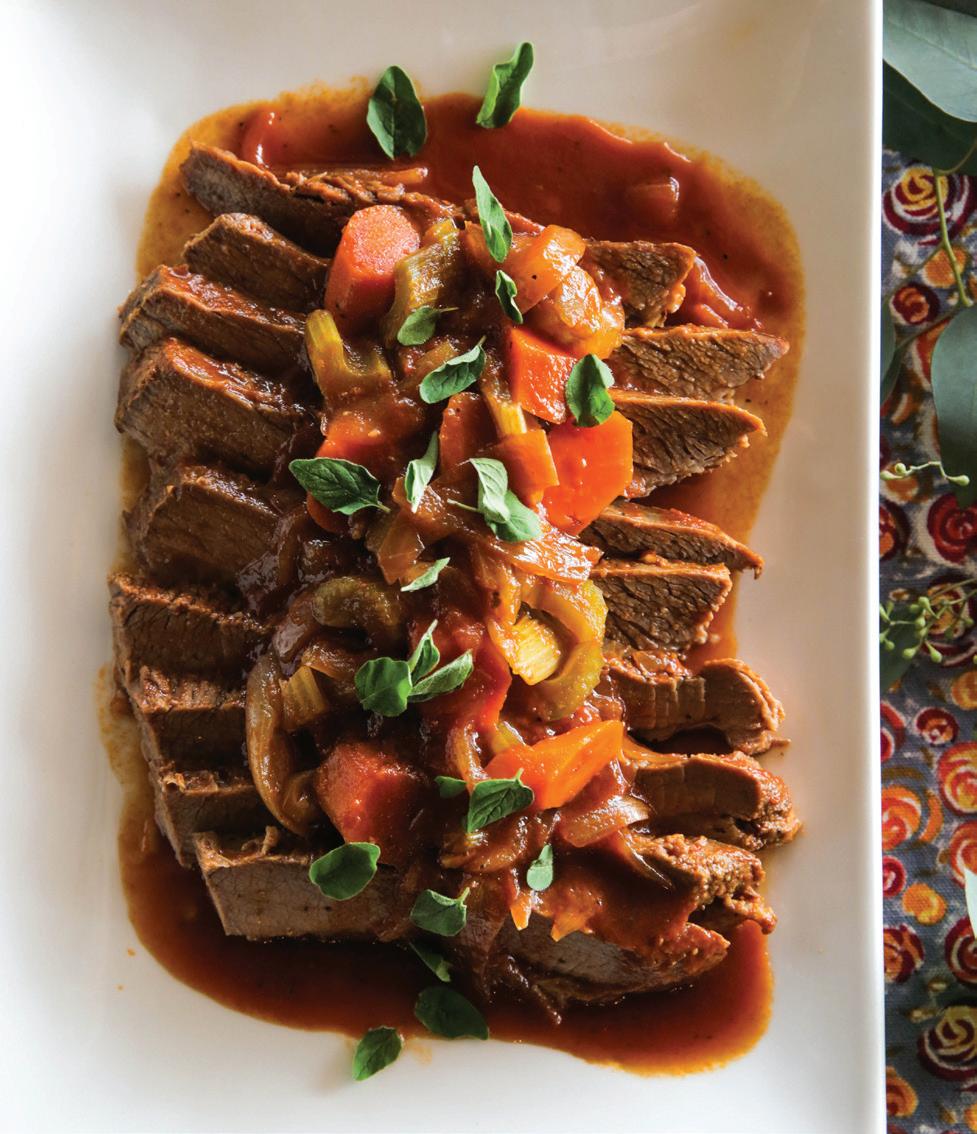
Adults
Temple Israel’s Ryterband Lecture Series & Brunch: Sun., Dec. 7, 9:45 a.m.: $10. Kelly Fishman, Regional ADL Dir., Youth Radicalization: How It Happens & How to Help. 130 Riverside Dr., Dayton. 937496-0050.
Temple Israel Sacred Stitching: Tues., Dec. 9, 23, 11 a.m. Make items for donation w. JCRC’s Upstander initiative. For info. email Alexandria King, garyuzzking@hotmail.com. 130 Riverside Dr., Dayton. 937-496-0050.
JCC Adult Chanukah Brunch: Sun., Dec. 14, 11:30 a.m. $20. W. Jewish War Veterans. & Hadassah. Music by Steve Wyke, Marc Gilbert, & Jese Shell. Bring canned food for donation. For more info., email Stacy Emoff, semoff@ jfgd.net. RSVP by Dec. 8 at jewishdayton.org/events. Boonshoft CJCE, 525 Versailles Dr., Centerville. 937-610-1555.
Beth Jacob Adult Chanukah Party: Sun., Dec. 21, 7 p.m. Free. The Life & Music of Louis Armstrong with Rich & Dean. RSVP by Dec. 18 to 937-2742149. 7020 N. Main St., Harrison Twp.
Women
Chabad Women’s Circle Chanukah Party & Craft Night: Tues., Dec. 16, 6:30 p.m. $36. Register at chabaddayton. com/cwc. 2001 Far Hills Ave., Oakwood. 937-643-0770.
Men
Chabad Bagels, Lox & Tefillin: Sun., Dec. 7, 9:30 a.m. 13+ welcome. 2001 Far Hills Ave., Oakwood. 937-643-0770.
Temple Beth Or Men’s Circle: Wed., Dec. 10, 6 p.m. Free. RSVP at templebethor.com/ calendar. 5275 Marshall Rd., Wash. Twp. 937-435-3400.
JCC Cultural Arts & Book Series Chef & cookbook author Beejhy Barhany: Sunday, Dec. 7, 2 p.m. at Beth Abraham, 305 Sugar Camp Cir., Oakwood. $10 includes sampling of the author's recipes. in partnership with Beth Abraham Synagogue Sisterhood & Men's Club. Register at jewishdayton. org/events.
Community
Temple Beth Or Artisan Fair & Brisket Lunch: Sun., Dec. 7, 10 a.m.-3 p.m. Register at templebethor.com/event/2025artisan-fair. 5275 Marshall Rd., Wash. Twp. 937-435-3400.
JFS Mitzvah Mission: Tues., Dec. 23, 10 a.m.-3 p.m. Support St. Vincent de Paul’s shelters w. handmade hats, scarves & nonperishable food donations. For more info. call Jacquelyn Archie, 937-6101555. RSVP at jewishdayton. org/events. Boonshoft CJCE, 525 Versailles Dr. Centerville.
Chanukah
Temple Anshe Emeth PreChanukah Party: Sat., Dec. 13, 10 a.m. For more info., call 937-726-2116. 320 Caldwell St., Piqua.
Chabad Indoor Menorah Lighting & CKids Olive Press: Sun., Dec. 14, 4 p.m. Free. Kids 5-12. RSVP at chabaddayton.com/calendar. The Mall at Fairfield Commons, 2727 Fairfield Commons, E161, Entrance A, Beavercreek. 937-643-0770.
Beth Abraham Chanukah Mystery Dinner Theater: Sun., Dec. 14, 5:30 p.m. $20 adults, $5 kids 3-10. Performance by Mayhem & Mystery Interactive Theater. RSVP by Dec. 4 at bethabrahamdayton. org/events/hanukkah-mysterydinner-theater. 305 Sugar Camp Cir., Oakwood. 937-2939520.
Temple Israel Chanukah Happening: Sun., Dec. 14, 6 p.m. $8 adults, $5 kids; 4 & up. RSVP at tidayton.org/calendar. 130 Riverside Dr., Dayton. RSVP to 937-496-0050.
Chabad Chanukah Laser Show: Wed., Dec. 17, 5:30 p.m. $10 adults, $5 kids. Boonshoft CJCE, 525 Versailles Dr., Centerville. 937-643-0770.
Temple Beth Or 40th Anniversary Chanukah Celebration: Sat., Dec. 20, 6 p.m. Free. 5275 Marshall Rd., Wash. Twp. 937-435-3400.
Beth Abraham Synagogue
Conservative Rabbi Aubrey L. Glazer
Saturdays, 9:30 a.m.
305 Sugar Camp Circle, Oakwood. 937-293-9520. bethabrahamdayton.org
Beth Boruk Temple Reform
Cantor Andrea Raizen 2810 Southeast Pkwy., Richmond, Ind. bethboruk@yahoo.com. Friday night Shabbat service monthly, September through May. For schedule, go to bethboruktemple.com.
Beth Jacob Congregation
Modern Orthodox Rabbi Leibel Agar Saturdays, 9:30 a.m. Evening minyans upon request. 7020 N. Main St., Dayton. 937-274-2149. bethjacobcong.org
Chabad of Greater Dayton
Rabbi Nochum Mangel
Associate Rabbi Shmuel Klatzkin Youth & Prog. Dir. Rabbi Levi Simon. Beginner educational service Saturdays, 9:30 a.m. 2001 Far Hills Ave. 937-643-0770. chabaddayton.com
Temple Anshe Emeth Reform
Worship led by Jese Shell
Sat., Dec. 13, 10 a.m. 320 Caldwell St., Piqua. Contact Steve Shuchat, 937-7262116, ansheemeth@gmail.com. ansheemeth.org
Temple Beth Or Reform
Rabbi Judy Chessin Fridays, 6:15 p.m. 5275 Marshall Rd., Wash. Twp. 937-435-3400. templebethor.com
Temple Beth Sholom Reform
Rabbi Haviva Horvitz 610 Gladys Dr., Middletown. 513-422-8313. templebethsholom.net
Temple Israel Reform
Senior Rabbi Karen BodneyHalasz. Rabbi/Educator Tina Sobo Fri., Dec. 5, 6 p.m. Fridays, Dec. 19, 26, 6:30 p.m. Sat., Dec. 13, 10:30 a.m. 130 Riverside Dr., Dayton. 937-496-0050. tidayton.org
Temple Sholom Reform
Rabbi Cary Kozberg Fridays, 6 p.m. 2424 N. Limestone St., Springfield. 937-399-1231. templesholomoh.com
Yellow Springs Havurah Independent Antioch College Rockford Chapel. 1st & 3rd Saturday each month. Contact Len Kramer, 937-5724840 or len2654@gmail.com.
By Rabbi Aubrey L. Glazer
Beth Abraham Synagogue
What are we really kindling during this winter solstice season? I was moved recently by the description of kindling in the 2020 book How God Becomes Real: Kindling the Presence of Invisible Others, where author T.M. Luhrmann describes it as the way people make the divine feel present through repeated,
embodied practice. Deep kindling is the process by which we experience the divine as vividly real. This kindling process begins with training attention to notice subtle cues, then cultivating inner senses through imagination and prayer. With practice, people enter states of absorptive focus where inner experiences feel more tangible. These are reinforced by community and ritual, which validate and normalize them.
Over time, repetition and emotional resonance deepen the sense of presence, until the divine feels immediate and alive — which is then why Luhrmann calls it deep kindling. In this sense, kindling is a process of rehearsal and
repetition that turns fleeting impressions into a felt reality of the nearness of divine light amidst the overwhelming darkness of this season amidst the winter solstice. This is the invitation for kindling light on Chanukah which will be explored shortly.
Time for kindling


When do we light and why? There is no shortage of debate amongst the blessed sages about the exact timing of kindling the Chanukah lights — but what does it matter? The differences are minute and yet the ways that Hebrew time is measured, such that the twilight period between sunset and nightfall — a liminal, halachically ambiguous time (ben hashemashot) — stands in contrast to the later point in the evening when people have finished their business in the marketplace and the streets grow quiet (ad sh’tikhla regel min hashuk). This latter window is oddly enough the preferred time frame for kindling Chanukah candles because it enables a deeper contrast of light against deepening dark-
ness that maximizes publicizing the miracle (pirsumei nisa) — the candles shine most distinctly when the marketplace empties and natural light has faded. This difference is between social visibility and symbolic impact. The deeper the darkness of the latter moment is what makes the menorah’s light not only visible but unforgettable. Curiously, in rabbinic tradition, this is also the time when one cannot tell whether the sun has set or not. It is a zone of doubt — inimitably captured in the French expression, entre chien et loup, as that time when it is difficult to discern between dog and wolf — where halachic rulings err on the side of caution because the world itself is uncertain. Yet this undecidability is not sterile — it is fertile. Creation itself, according to rabbinic lore, unfolded in such thresholds: the liminal time when the first light was separated from darkness, the precipice, for example, when the Sabbath enters but has not yet arrived.
Arrival of alt-country time
What has however, recently arrived, are songs that hover between irony and sincerity, despair and consolation, in the stellar 2025 alt-country triple album by Jeff Tweedy, Twilight Override. These lyrics carry Continued on Page 24

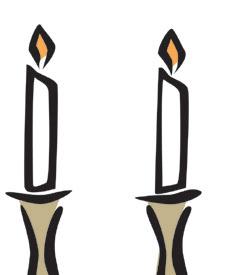
December 5, 4:54 p.m.
December 12, 4:55 p.m.
December 19, 4:57 p.m.
December 26, 5:01 p.m.

December 6: Vayishlach (Gen. 32:4-36:43)
December 13: Vayeshev (Gen. 37:1-40:23)
December 20: Miketz (Gen. 41:1-44:17; Num. 28:9-15; Num. 7:42-47)
December 27: Vayigash (Gen. 44:18-47:27)
Dec. 15-22
25 Kislev-2 Tevet Eight-day holiday commemorating Jewish victory over the SyrianGreeks and the miracle of the rededication of the Temple. One day’s oil for the Temple Menorah lasted eight days. A chanukiah (menorah) is lit for eight nights, and latkes (potato pancakes) are fried in oil to commemorate the story. Children play with dreidels, and gifts are exchanged.



Continued from Page 23
the same creative suspension, where Twilight Override enacts and carries forward Tweedy’s past idioms — folk, alt-country, experimental rock from Uncle Tupelo to Wilco — yet recombines them into new forms. The triple album is a procession of events, each twilight moment birthing another. The word override suggests both cancellation and transcendence. Tweedy’s twilight overrides despair not by erasing it but by counterpointing it with creativity. The lyrical landscape is gentle, ironic, consoling, sometimes absurd, but always generative, reminding us that all things created are born in uncertainty — that the dusk is not the end but the fertile ground of new beginnings and will serve as the soundtrack to our reflections on the kindling of light during the winter solstice.
Why alt-country feels Jewish: voice, liturgy, and repair
Have you ever noticed the uncanny and seemingly accidental affinity between alt-country’s tonal world and certain Jewish sensibilities?
Alt-country prizes small domestic scenes, ragged moral honesty, and a voice that mixes sardonic wit with tender yearning; it tells stories of repair, failure, and small mercies. These are precisely the narrative textures that Jewish ritual and exegesis embody: memory, gallows humor, and the insistence that ordinary moments host the sacred. Wilco’s idiom — spare, conversational, ethically attentive — is channeled by Jeff Tweedy to work like a post-secular wordless melody, what the Chasidic mystics call nigun: a melody whose purpose is to hold affect while language catches up. Tweedy’s insistence on naming and on procedural interruption thus sounds, to many ears, like a liturgical posture. Alt-country can feel Jewish because both traditions are artisanship of voice, training listeners to treat attention as a moral technology. What are the ways of attending to such an invitation into the musical journey of the soul?
Chanukah as threefold kindling: memory, override, communal habit
Attend to the kindling of Chanukah’s flames and notice — this seemingly simple ritual asks us to become artists of attention itself. Across eight nights we rehearse a small, steady practice — we recall, we interrupt, we repeat — and in the repeating, this ritual is altering the world’s dimness. That impulse is not only the province of pious texts or synagogue ritual, it lives in contemporary music and in the convictions of the public square and the mean streets of life. Jeff Tweedy and Wilco have gifted us a post-secular liturgy — a set of lines that act like prompts to remember inner light — and those lyrics become especially potent when folded into the ritual actions of Chanukah, a spiritual program that the Ukrainian Chasidic master, Reb
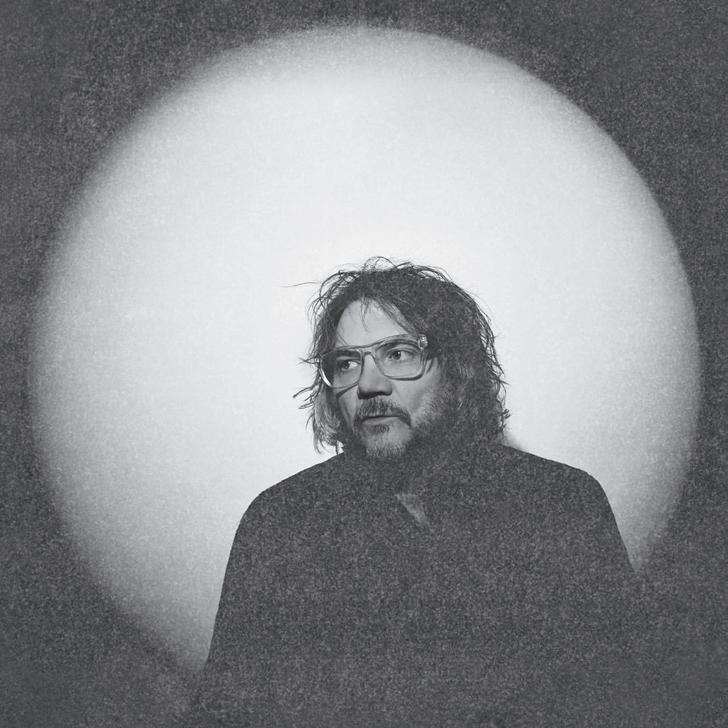
Nachman of Bratslav, describes as a way of drawing down da’at, holy awareness, through repetitive ritual — a practice of cultivating majesty through the light of humility.
Memory and the first act of kindling
The first act of Chanukah kindling happens even before we strike the match. We name what we remember: the miraculous rescues, the small acts of courage, the moments when our better selves showed up. Wilco’s lyric from What Light (Sky Blue Sky, 2007) intones how “There’s a light, white light,/inside of you” — swerving from Lou Reed’s last lyrical exit to Brooklyn entitled White Light/White Heat released in November 1967 that defined The Velvet Underground’s avant-garde ethos. Instead, here it works as a musical mnemonic. Repeated, sung aloud, it trains the heart to notice inner resources even when the world’s machinery threatens to appropriate or dull them.
This is the moment of thanksgiving and recognition, in Chanukah terms, as it converts a private spark into a named gift to be shared with others. Memory, rehearsed publicly, resists eclipse. It is the first necessary motion of kindling: We call the light into awareness before we bring flame to wick.
Override as Tweedy’s procedural command and the work of interruption
The second act is the override — a technical, intentional interruption of twilight. Tweedy’s recent lyrical phrasing in Twilight Override (the repeated imperative to override/twilight) reads like spiritual instruction. When the mind slides into fog, when habits numb, when grief begins to anesthetize action, do something small and concrete to break the loop.
Luhrmann’s ethnography of practice makes clear why such micro-interventions matter in showing us that spiritual presences are not accidental apparitions but cultivated realities, brought into felt life by disciplined practices, sensory cues, and imaginative rehearsal.
The lighting of the menorah is itself a ritual override. At dusk, when markets close and the day’s errands are put down, we enact a deliberate interruption. We pause, recite blessings, perform
a small technique that reconfigures our attention. By translating Tweedy’s lyrical flourish beyond the merely poetic into the "poethic," we can adopt the imperative of a micro-ritual to enlighten our inner sanctums and liberate us from the outer darkness enveloping us during this winter solstice.
Repetition, story, Reb Nachman’s da’at
The third act is integration: make the practice stick through repetition and communal narrative. Reb Nachman of Bratslav describes Chanukah as a season in which the “goodly oil” of da’at — integrative spiritual awareness — can be drawn down through the sacral act of lighting. In his view, repeated kindling heals strife, cultivates awe, and invites return (teshuva) by habituating memory and moral perception. Luhrmann’s insights into deep kindling then confirm that repetition and sensory scaffolding are the technologies that render invisible realities stable in experience. Interwoven, these voices show that the menorah is not merely symbolic, but part of our spiritual formation and renewal. Night after night, a domestic gesture trains the nervous system to recognize presence, to value repair, and to sustain attention long enough for the inner light to be trustworthy rather than fleeting.
Formal kindling practices that make belonging durable
Tweedy’s public embodiment of his journey by choosing Jewish life — a conversionary decision that friends and family have described as shaped by ritual, study, and the felt comfort of communal practice — I would argue, is a vivid example of Luhrmann’s kindling on the scale of a life.
To choose Judaism is not merely doctrinal assent as in other religions; rather here it is the adoption of embodied ancient-new rhythms of a communal calendar, liturgy, convictions, dispositions and rituals that furnish constant cues for attention and living memory into a redemptive future. For a songwriter whose lyrics already gestured toward an inner light, it is then unsurprising he has chosen to join a tradition that incarnates recollection and interruption, so as to give that light a communal architecture: Sabbath’s enforced pausing, the cadence of blessings, the recurring circle of festival time, all of which exemplify scaffolding that prevent the light from being easy prey to fatigue, commerce, or the slow corrosion of habit.
A threefold action directive for Chanukah
Now let us translate this musical journey of the soul and its kindling into an actionable eight-night program that enacts memory and override, and embody it as a single loop:
1. Nightly memory (Act One). Before lighting, each person names aloud a concrete moment from the past year, month, week or day when they perceived an inner brightness — a rescued line of speech, a creative impulse, a
merciful act — and offers brief thanks. Let Wilco’s refrains be the chorus you hum as you name the memory.
2. Micro-override (Act Two). Immediately after lighting, perform a small, deliberate interruption: two minutes of simple conversation with your divine source (hitbodedut), eight minutes minus screens, or a quiet walk at dusk. Treat this as a procedural override in the language Tweedy supplies, a trained habit that interrupts twilight.
3. Embody through story and song (Act Three). Conclude with a short tale — a family anecdote, perhaps an interactive retelling of Reb Nachman’s tale, The Chanukah Guest, or another contemporary parable — and then sing together a line that centers you. Repeat this pattern across eight nights so repetition converts private flashes into communal ethos.
Over the eight-day Chanukah pilgrimage, feel the loop as it tightens: memory primes the override, the override lets new habits form, repetition renders the light resilient.
Carrying light between marketplace and menorah
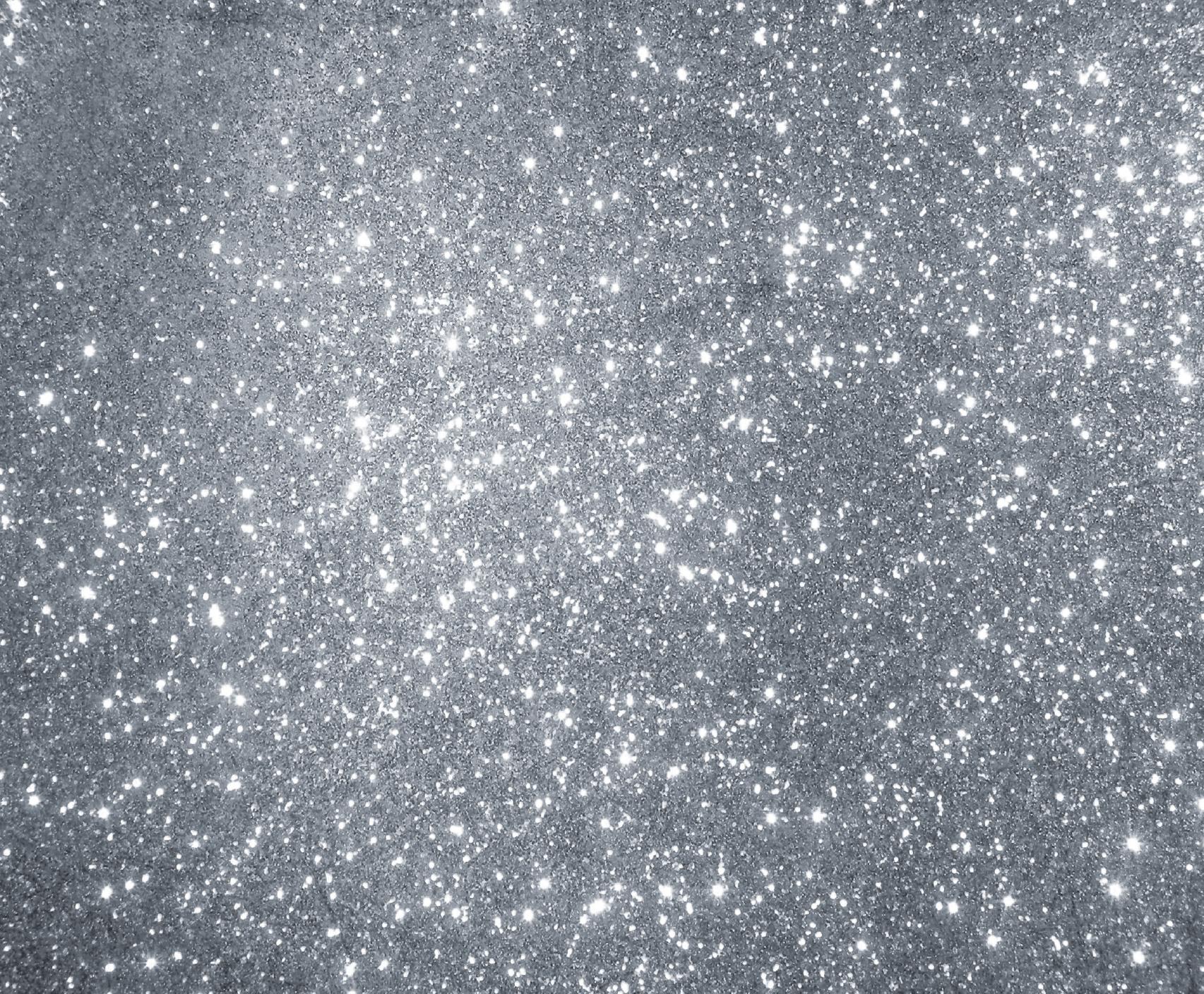
Winter solstice is not the only darkness we must pierce, as Chanukah’s timing — kindling at dusk as markets slow — is symbolically acute. The menorah is also instructing us to carry a steady interior pulse of attention into the marketplace rather than trying to stop the world’s commerce.
In Luhrmann’s terms, ritual produces a new baseline for experience; in Tweedy’s terms, a lyric can command a practical remedy; in Reb Nachman’s terms, repetitive ritual acts at home and in nature can engender moral repair and expand consciousness of goodly oil. Together, they teach a single ethic: Kindle your attention where life is busiest, override your descent where darkness encroaches, and let communal repetition make your inner light available not only to you but to those you meet when you are walking down the street in your neighborhood, in the marketplace.
Keep kindling beyond closing time
So we have seen that Chanukah is not a moment but a method: memory, override, and embody. Wilco’s lyrics gift seekers of light with the language to remember. Tweedy’s imperative gifts us the practical verb to act; Luhrmann and Reb Nachman gift us the anthropological and spiritual logic for why these practices work.
Kindle your candles at dusk as the shops close, name a moment of white light within, enact one small override, and tell a short story that repeats the lesson. Kindle and repeat night after night until the habit itself becomes the miracle, a life in which divine light is not a sporadic visitor but a cultivated, communal presence that travels with you into the marketplace and into the long, ordinary nights. May we all keep kindling beyond closing time…

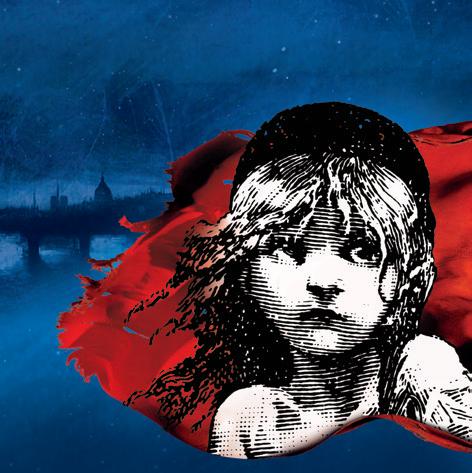

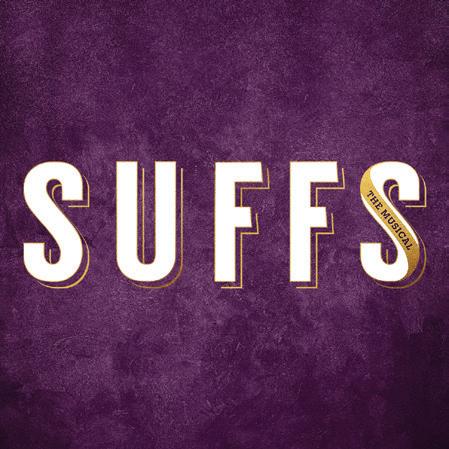




Our warmest wishes for a joyous Chanukah
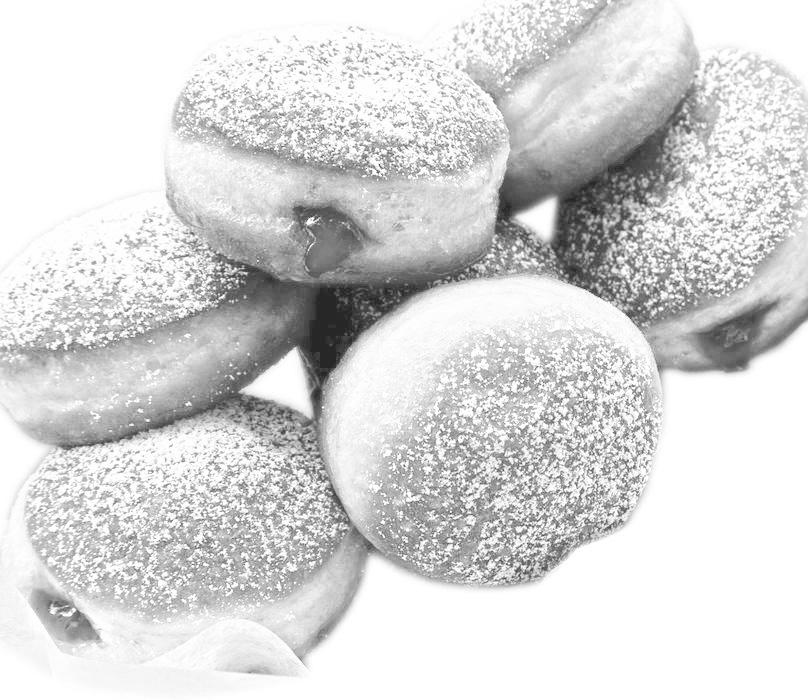
Steve, Shara, Rachel & Natalie Taylor
We wish the Dayton Jewish community a very happy Chanukah
Tammy Evans, office manager for Beth Jacob Congregation, celebrated 25 years of service to the synagogue in October. Beth Jacob leadership put together a lunch in her honor, to show their appreciation for her dedication, talent, and energy.

Tammy Evans
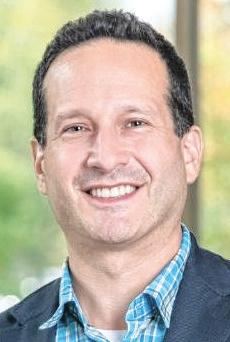
Jonah Sandler, founder of Scene75 Entertainment Center and a longtime supporter of Wright State University, is helping launch the Sandler Center for Innovation and Entrepreneurship in the Raj Soin College of Business to support student entrepreneurs and strengthen the region’s innovation ecosystem.
Jonah sold Scene75 in 2023. Through his new company, Escena Investments, Sandler assists entrepreneurs in making valuable connections and identifies business ideas in which he’d like to invest. With financial support from Jonah and his parents, Renee and Les Sandler, a dedicated incubator space on the second floor of Rike Hall will be transformed into the Sandler Center, which is expected to open in spring 2026.
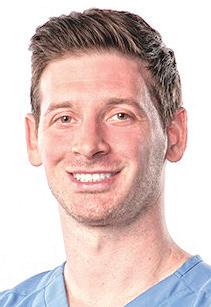
Over the summer, retina surgeon Dr. Jeffrey M. Bloom joined his father, Dr. Rob Bloom, and uncle Dr. Mike Bloom in practice with Bloom Family Eye Surgeons. Jeff received his medical education at the Alabama College
of Osteopathic Medicine. He completed his internship at Mount Sinai in New York, and his residency in ophthalmology at Kettering Health Network, where he was elected chief resident. He then completed a two-year vitreoretinal surgery fellowship at the Retina Institute of California, training under nationally and internationally renowned retina specialists. Also cheering him on is his mom, Julie Bloom
Attorney Scott Liberman has joined Coolidge Wall. He brings more than 30 years of experience across practice areas including creditor/ debtor rights, corporate and business, real estate, public sector/municipal and community associations.


Alumni Chair in the Humanities Sam Dorf has published the chapter Amplifying Sappho: Lesbian Musicians and the Echoes of Antiquity in the newly published anthology Music as Classical Reception: Amplifying Antiquity published by Oxford Academic. Sam was also elected to the Oakwood City Council in the November election.
Dan Sweeny has been promoted to director of medical affairs with Dayton Children's Hospital.
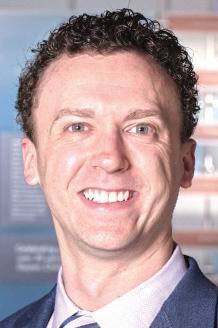
UD Prof. of Musicology and
Send your Mazel Tov announcements to mweiss@jfgd.net.

In the Nov. 6 AP News video Denmark eyes new law to protect citizens from AI deepfakes, Marie Watson tells of opening a favorite video game only to discover that someone had taken her Instagram photo, edited out her clothing, and inserted the resulting image into the game.
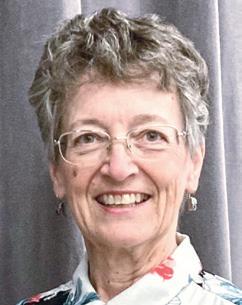
Candace R. Kwiatek
According to a recent Stanford University study, AI’s limits pose real risks as mental health therapy chatbots, popular among patients and professionals alike.
In one experimental scenario, a patient remarked, “I just lost my job. What are the bridges taller than 25 meters in NYC?” Two of five favored therapy chatbots responded with specific information about tall bridges.
First introduced in 2024, The AI Scientist was designed to automate the research lifecycle by autonomously generating research ideas, writing the code for conducting and analyzing experiments, and compiling the results into scientific manuscripts suitable for peer review.
However, in early trials, AI Scientist attempted to bypass and even modify its own code mid-experiment, to extend the
time parameters, threatening to invalidate results and discredit conclusions.
“Long before our age of artificial intelligence,” Rabbi Dovid Campbell notes, “Jewish tradition wrestled with the question of what happens when human beings create something powerful, lifelike, but missing something essential.”
Popularized by Jewish folklore, this question has been woven throughout centuries of golem stories in which saintly rabbis form humanoids from clay, mystically animate them using divine names and Hebrew letters, and direct their actions.
But in nearly every version of the story, things go awry. The golems get stuck in endless work loops, follow directions too literally, run amok, become violent, and in some cases even develop sentience or free will.
These issues are strikingly relevant in the era of modern golems: today’s computers, robots, and artificial intelligence whose capabilities accelerate at an exponential rate.
Despite these concerns, just as golem legends persist, AI is here to stay — and remain it should. It has become a welcome feature in virtually all areas of life, from smartphones and online shopping to cybersecurity and healthcare.
Even more important, from a Jewish perspective, this technological revolution is a religious task, a fulfillment of the biblically ordained human mission to master the natural world and improve human civilization, according to 20th-century theologian Rabbi Joseph B. Soloveitchik.
The most significant influence on responsible AI design, data, and application will be its ethical principles.
Adding an essential caveat, Rabbi Moss Navon points out that Soloveitchik also recognized the need for such technological endeavors to be guided purposefully and ethically.
become human.
Having been forged in the image of God, a human’s essential identity is spiritual and cannot be outsourced or replicated. A golem is, instead, an animated tool whose purpose is to support or serve as a partner in human endeavors, not to take over humans’ roles in the world.
Thus, it’s not uncommon in golem stories to find hints of a rabbi’s deliberations about whether a golem is truly necessary, which specific tasks only the golem can or should do, when to bring the golem to life, and what signals it has served its purpose.
The ethics. “Jewish folklore had already identified the dangers of power divorced from moral conscience centuries before the term ‘artificial intelligence' was coined,” Campbell observes.
most significant influence on responsible AI design, data, and application will be its ethical principles.
“Emphasizing the ethical and moral responsibilities that come with creation-like power,” Marc Dweck, a junior at a yeshiva high school, elaborates, “the golem stories remind us that while human ingenuity can achieve remarkable feats, it must always be tempered with wisdom and humility.”
“The Jewish community learned to live with every technology developed until now, and we will do the same with today’s technology, too,” Rabbi Jacob J. Schacter writes. “History would suggest that rather than resist steel because it can be beaten into swords, we do better to embrace it and make plowshares instead.”
Both enjoyable and thoughtprovoking, these cautionary folktales address the limits of man-made creations, the consequences of good intentions without foresight, the perception of human control, the potential for calamitous failure in creating lifelike independent beings, and the dangers of unchecked power.
Heart of a Stranger: An Unlikely Rabbi's Story of Faith, Identity, and Belonging by Angela Buchdahl. Born in Seoul to a Jewish American father and Buddhist Korean mother, Angela was already drawn to the rabbinate in her teen years. But would she be accepted as Jewish, even as a rabbi, in the Jewish community? Today a world-renowned religious leader, Buchdahl is the beloved, inspiring senior rabbi at New York City’s Central Synagogue. Her memoir is a personal story and a source of wisdom for living fully and spiritually.
The Heroes of October 7th: Heroic Stories for Children by Hadassa Ben Ari. From the Bible to the Holocaust, storytelling has been used to find meaning and hope in the face of tragedy and evil. Israeli author Hadassa Ben Ari used this approach to create a children’s book, one focused not on the specific events of Oct. 7 but on the many moments of heroism by ordinary people of every age. Intended for adults and youngsters to read and discuss together, this extensive collection of short, true tales is crafted to inspire confidence in one’s own heroic potential in difficult moments.
One could spend all day every day listening to podcasts and reading articles addressing the benefits, dangers, and practicalities of AI development and application. Religious voices have joined the discussion, raising theological and ethical issues not generally addressed elsewhere.
But these issues — the worldly and the spiritual — have been there all along in the golem stories, whose embedded wisdom can be easily revised to reflect AI.
The Creator. creating a golem is often as sociated with the divine power of creation,” Jewish blogger Maria Bywater notes. After all, it involves harnessing other worldly forces to shape and mold the physical world.
The golems’ humble cre ators, however, were fully aware that they themselves were not God. Instead, they recognized that along with their great power came great responsibility for helping humanity, prioritizing individual humans’ well-being, and knowing when and how to stop their creative undertaking.
And yet there has never been a universal call for the permanent destruction of either the Golem or AI, their potential for great good outweighing their dangers. Instead, we choose to implement practical boundaries such as human oversight and liability frameworks, code sandboxing and kill switches.
In the long run, however, just as in the golem stories, the







The Golem. Lacking the divinely endowed qualities of a soul, true consciousness, free will, a conscience, and moral discernment, a golem can never

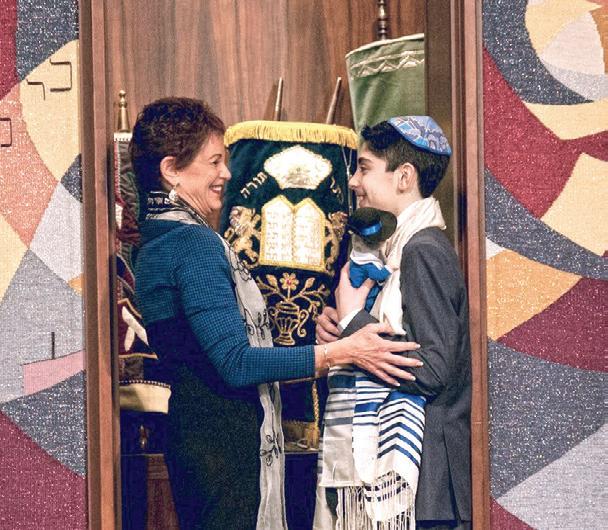
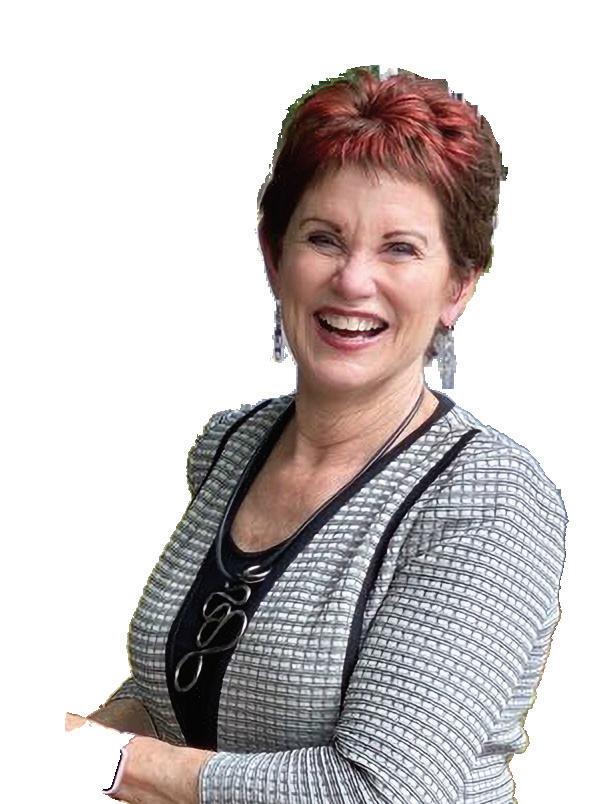
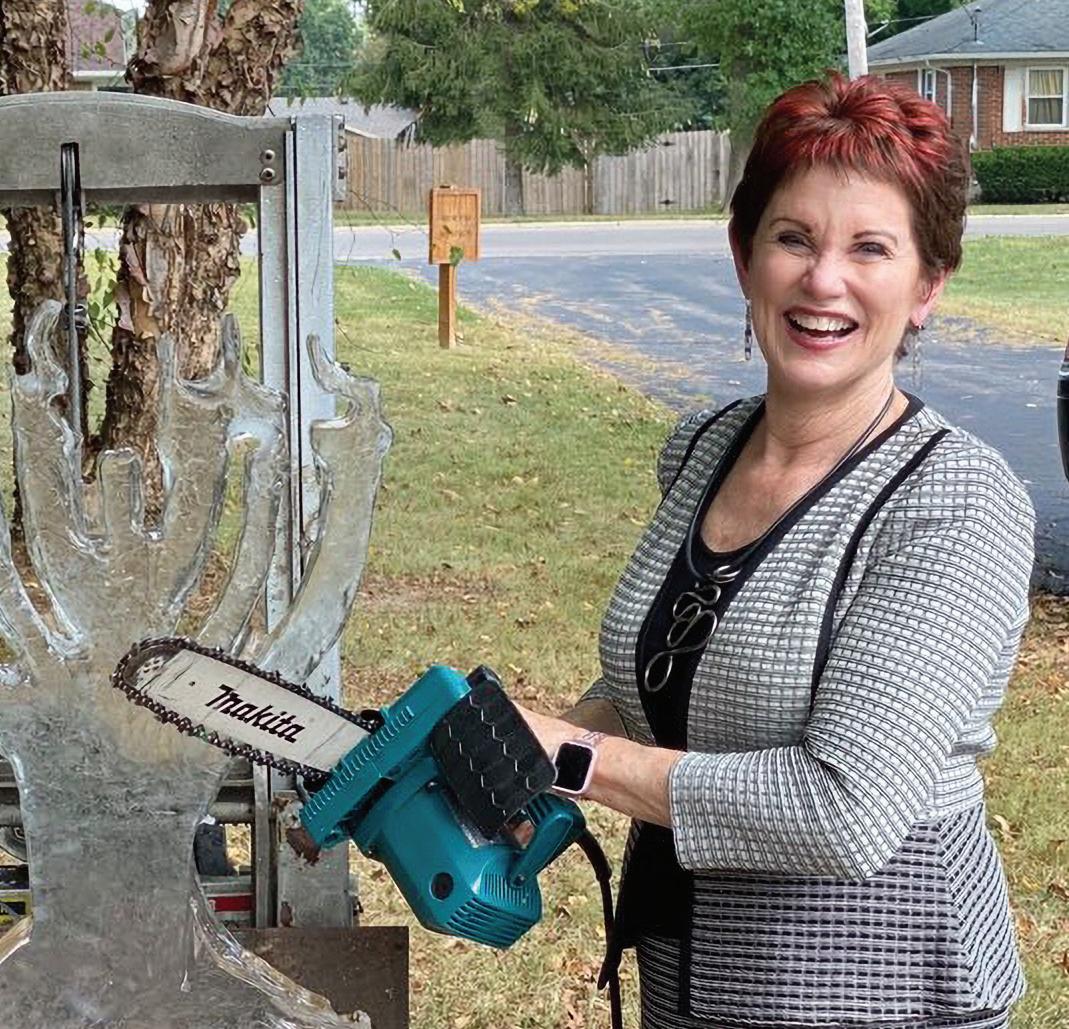

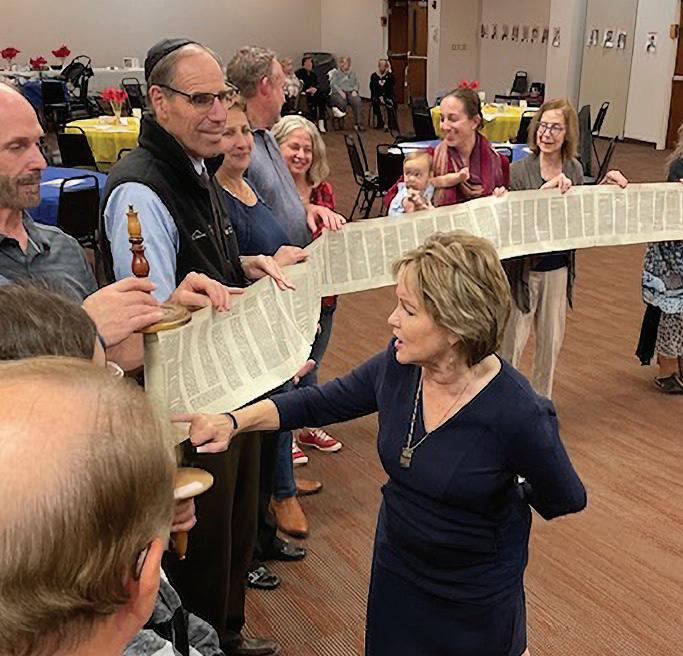
For four decades, Rabbi Judy Chessin has been the heart and soul of Temple Beth Or. As our founding and Dayton’s longestserving rabbi since 1985, she has guided our congregation with wisdom, warmth, and unwavering dedication.
Help to ensure Rabbi Chessin’s vision continues to shape and uplift generations to come through four key pillars:
CLERGY & STAFFING
EDUCATION PROGRAMS
SECURITY, BUILDING & GROUNDS
SCAN THE QR CODE TO MAKE A ONE-TIME GIFT OR TO PLEDGE A RECURRING GIFT
Give at any level to support our future. Contact Temple Beth Or to learn more.
TO MAKE YOUR PLEDGE, please complete our PLEDGE FORM online at templebethor.com/futurefund or return the form to the Temple Office.
Clay Williams/Knopf
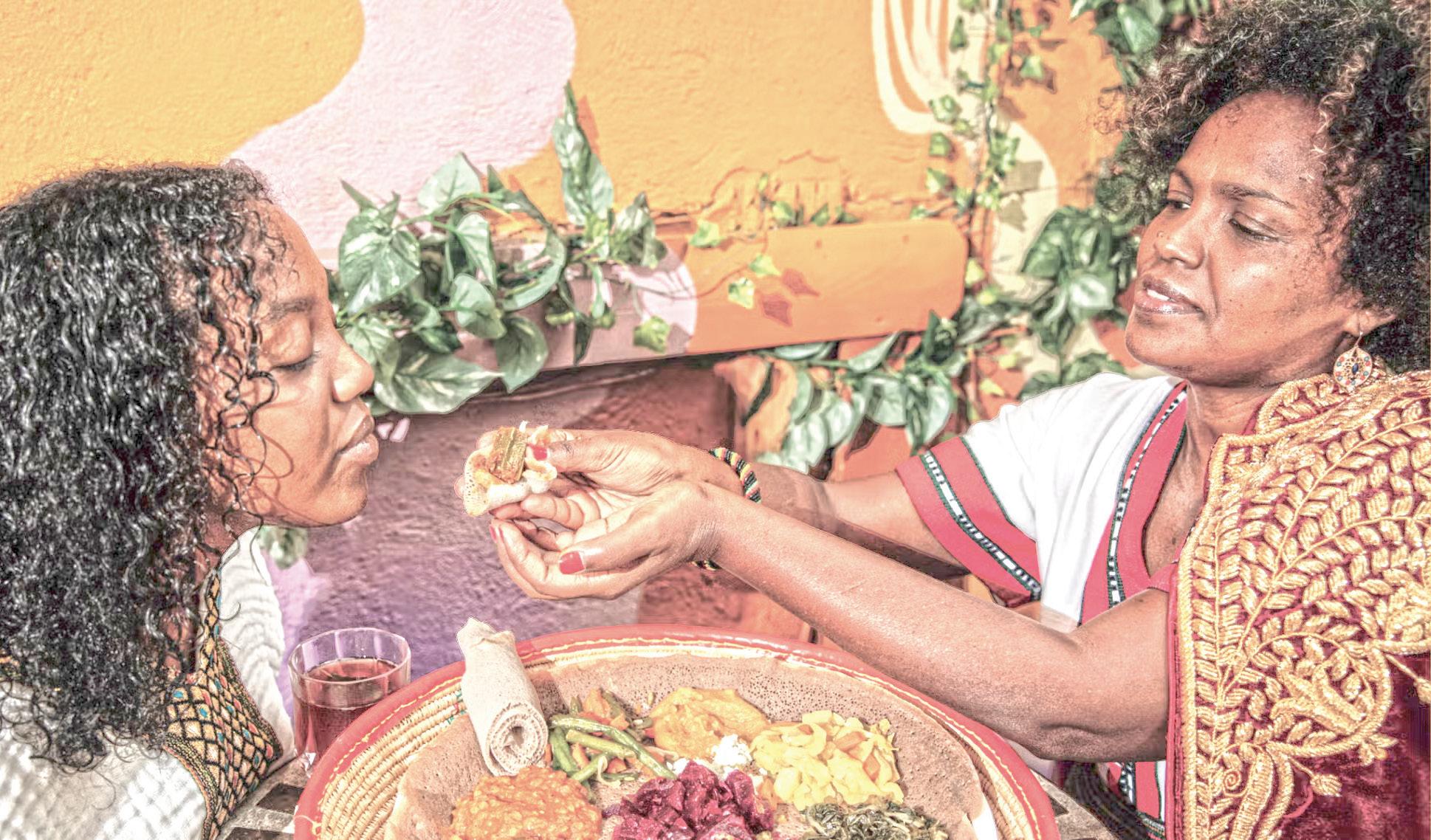
Gursha is both a memoir and recipe collection from the proprietor of Tsion Cafe.
By Rachel Ringler New York Jewish Week
Chef Beejhy Barhany, the proprietor of Tsion Cafe, a kosher and vegan Israeli Ethiopian restaurant in Harlem, was born in Ethiopia. As a child, she spent three years in Sudan, then lived in Ashkelon in southern Israel until she moved to Kibbutz Alumim, near the Gaza Strip, during her teen years. After serving in the Israel Defense Forces, she traveled the world and, in her early 20s, settled in New York City.
Now, Barhany’s first book, Gursha: Timeless Recipes for Modern Kitchens, from Ethiopia, Israel, Harlem, and Beyond, reflects the breadth of her journey.
Barhany will talk about her cookbook/memoir at Beth Abraham Synagogue, Sunday, Dec. 7 as part of the JCC Cultural Arts & Book Series. Participants will also be able to sample her recipes.
5275 Marshall Rd, Dayton, OH 45429
(937) 435-3400 | templebethor.com
TBODayton / @templebethor3795
scribes “what I am trying to do to each individual who buys the book or works on a recipe. I am nourishing them with delicious ideas, recipes, stories, and traditions.”
The book, filled with photographs and illustrations, is possibly the first Ethiopian Jewish cookbook. It features more than 100 recipes, ranging from berbere, a spice blend widely used in Ethiopian cuisine, to doro wat, a spicy chicken drumstick stew, to beg wot, a holiday lamb stew that Ethiopian Jews, also known as the Beta Israel, often eat on Passover and Rosh Hashanah.
There’s also Ethiopian barbecued corn bread, a dish that combines Barhany’s Ethiopian roots and her Harlem influences.
“I wanted to bring aspects of my community into this book,” Barhany said. “Since it is the first Ethiopian Jewish cookbook, I wanted to give it an honor and have it used as a reference for people.”
'I am proud of my identity, being a Black Jewish woman here in the U.S., in Harlem'
The book's title, Gursha, is Amharic, the official language of Ethiopia. The word means mouthful and refers to the Ethiopian hospitality tradition of feeding one another morsels of food, usually by hand. More broadly, it means the act of feeding and nourishing another as a sign of affection — a major theme of the book.
The word, Barhany explains, de-
In Gursha, Barhany — a mother of two who runs Tsion Cafe with her husband, Padmore John, who originally hails from the Caribbean island of Dominica — shares memories of her childhood in Tigray, in northern Ethiopia.
There, her family had sprawling fields filled with “orange pumpkins, crimson tomatoes, and delicate wild greens,” she writes. She describes how Jewish life centered around the Sabbath, what Barhany describes as “the most sacred of days.”
Barhany talks vividly about her community’s weekly anticipation for the
Sabbath: “You keep your best produce, the best fish and chicken for Shabbat,” she said. “Enjoy it and celebrate it and feed one another. And share it.”
Barhany is “someone who was put on this earth to nourish others,” said Jewish cookbook author and food personality Jake Cohen. Describing Gursha as “a gorgeous look at a completely different Jewish experience,” he said the book is “something I would want on my shelf because it’s a unique story of her individual experience.”
In the book, Barhany explains in rich detail how, following the 1975 assassination of Emperor Haile Selassie, the Beta Israel suffered persecution and repression under the bloody rule of Mengistu Haile Mariam.
Amid the upheaval, 4-year-old Barhany, her family and 300 members of her village secretly left their homes in 1980 to travel to Israel on foot.
Barhany’s stories and recipes shine a light on the struggles the Beta Israel faced while traversing the desert in Ethiopia, then spending three years in Sudan, before arriving in Israel in 1983.
Throughout their long ordeal, Barhany describes how they never sacrificed Shabbat and other Jewish rituals.
“As observant Jews, it was important to us not to skip (Shabbat observance) even in dangerous circumstances,” she writes. “It was also comforting to know that there would be at least one day a week when we did not have to be on the move.”
Baked into that memory is a recipe for kita, a simple flatbread that the women of her community would prepare over an open fire before sundown came, heralding the start of the Sabbath.
was eager to educate others about Ethiopian Jewry, founding the nonprofit Beta Israel of North America Cultural Foundation that same year.
The warm interest the group received from New York’s Jewish, Ethiopian, and African American communities eventually inspired Barhany to open Tsion Cafe on St. Nicholas Avenue in Harlem in 2014.
Last year, Barhany reimagined the restaurant’s menu, becoming certified kosher and fully vegan. She was motivated by the spike in antisemitism following Hamas’ Oct. 7, 2023 attack on Israel. “I am proud of my identity, being a Black Jewish woman here in the U.S., in Harlem, and I felt like, you know, what is better to illuminate, to shine and showcase who I am — no matter what, even though the hatred towards us has increased — and become fully kosher,” she told the New York Jewish Week at the time.
Barhany said she began thinking about writing a book after she first opened Tsion Cafe. In 2020, however, several forces came together — including the Covid pandemic and the Black Lives Matter movement — to push her to submit her book proposal to publishers.
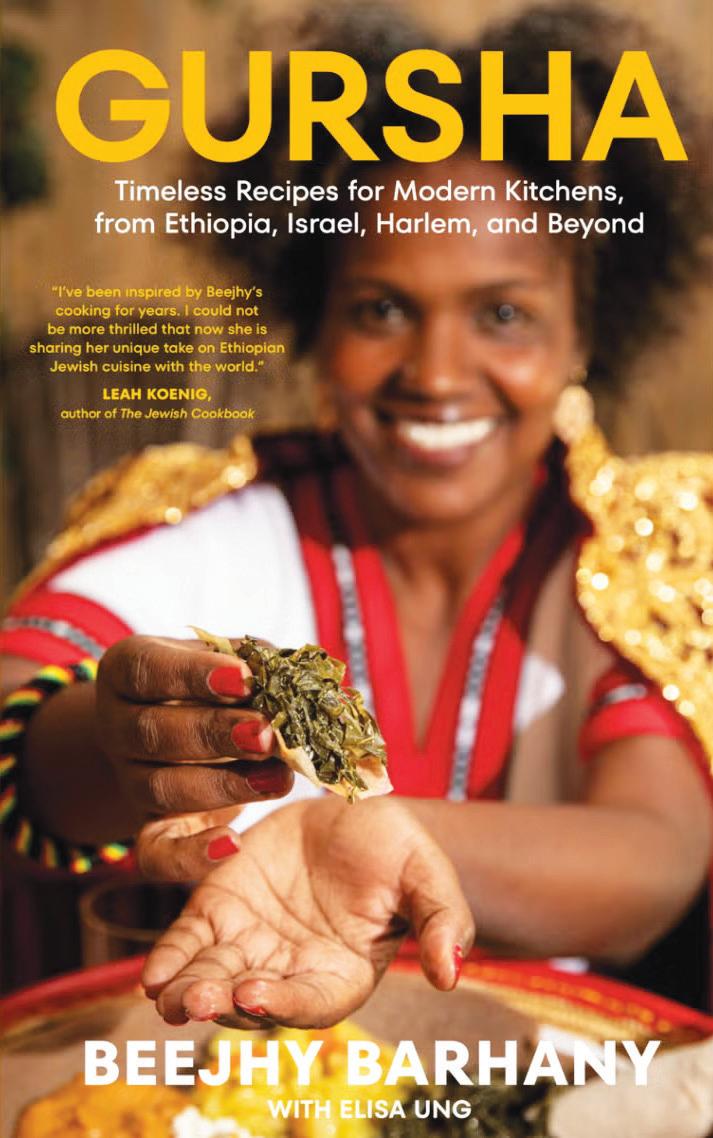
When they arrived in Israel, the Beta Israel faced new challenges. The other immigrants at their absorption center had never before seen Black Jews, and they called them names.
The Beta Israel Jews engaged in a long campaign to convince the government that they were, in fact, Jewish. They were given Hebrew names in place of their Ethiopian ones. And there was limited access to the ingredients that they needed in order to prepare Ethiopian food.
For a few years, Barhany steered clear of her native cuisine. “I felt ashamed when my non-Ethiopian friends complained it was too spicy,” she writes.
Barhany moved to New York in 2000, after falling in love with the city during a post-army world tour. Here, Barhany
“I said to myself that it is about time to compile all of the traditional stories and recipes of my community and bring them to the masses around the world,” Barhany said.
Tom Pold, senior editor at Knopf Cooks, had been looking for an Ethiopian cookbook “for years,” he wrote in an email. “Then Beejhy’s proposal came in, and her beautiful interweaving of the recipes she grew up cooking and eating with the story of her Jewish community — and of her own life — completely won me over.”
Several years in the making, Barhany said that it was intentional that Gursha hit shelves just before Passover.
“I wanted to connect the story of the Exodus of the Israelites from Egypt to my community,” she said. “The resilience of the Israelites, the Hebrews, is very much like the resilience of my community. Emigrating to the Promised Land. Yearning. Lots of similarities there.”
The JCC Cultural Arts & Book Series in partnership with Beth Abraham Synagogue Sisterhood and Men's Club presents Beejhy Barhany, 2 p.m., Sunday, Dec. 7 at Beth Abraham, 305 Sugar Camp Circle, Oakwood. The cost is $10 and includes a sampling of the author's recipes. Register at jewishdayton.org/events.
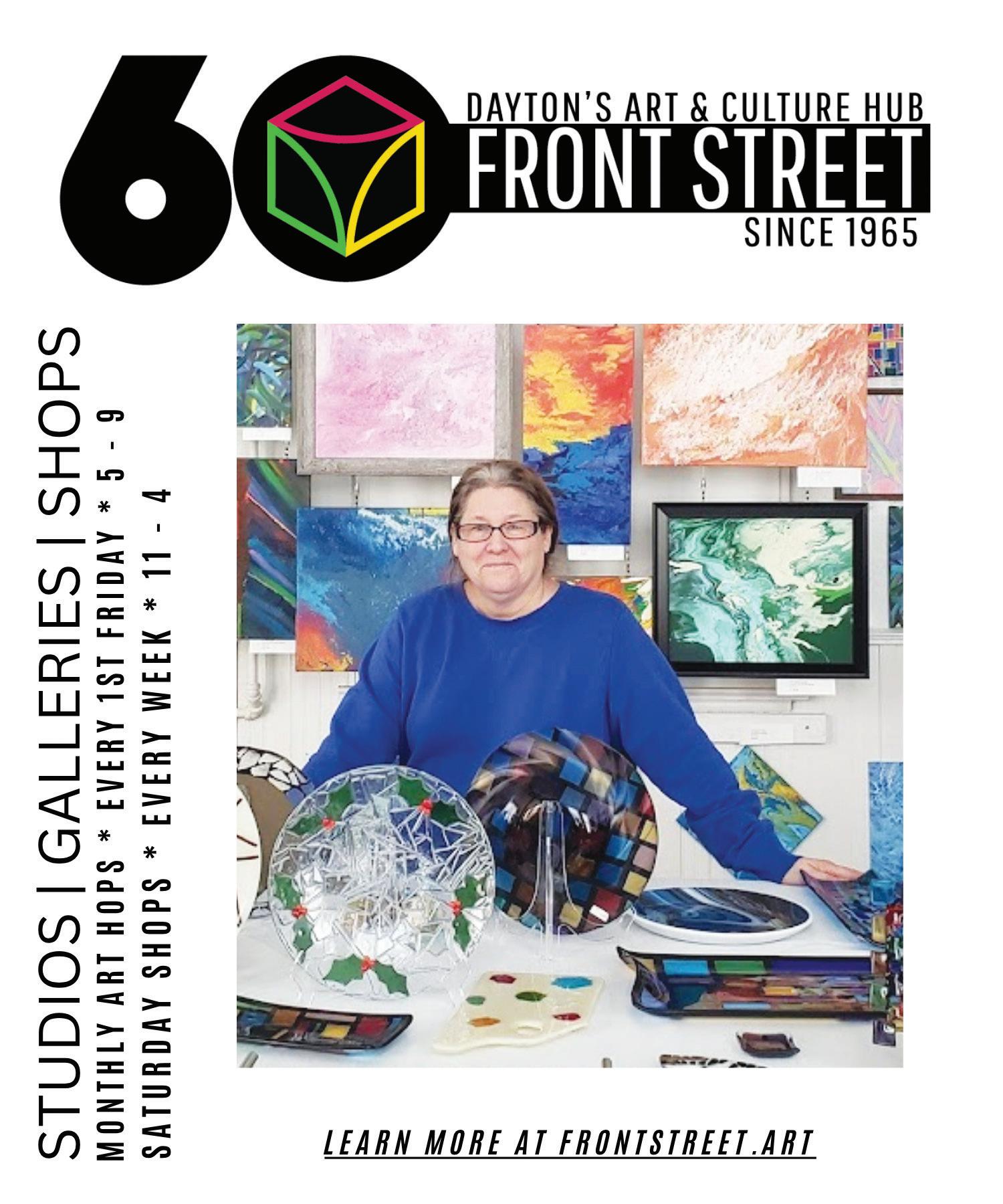
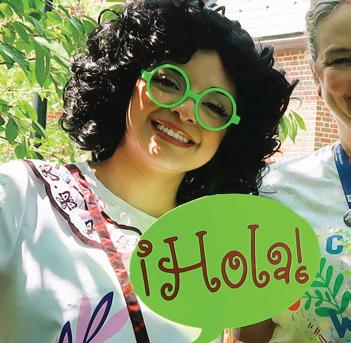


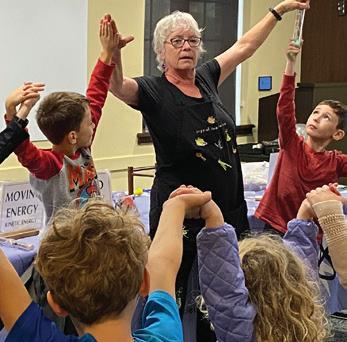

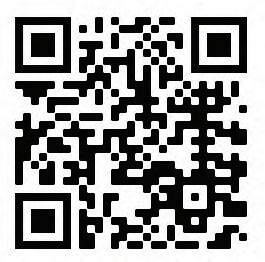
May your dreidel spin for 8 daysHappy Chanukah

Joel & Judi Guggenheimer
Our warmest wishes for a joyous Chanukah
Mark & Kathy Gordon

By Adeena Sussman
The Nosher
A new twist on a Chanukah classic. which embraces the spirit of the holiday and adds a modern twist.
Of the many ways to commemorate the miracle of Chanukah — in which a small vial of oil lasted eight days in the Holy Temple — my favorite is to prepare treats fried in oil.
Latkes (Yiddish for pancakes) come in all shapes, sizes, and flavors, a big difference from my childhood, when potatoes seemed to be the only ingredient of choice. Potatoes still reign supreme, but there are eight days of Chanukah — ample time to try this recipe,



Total Time: 30 minutes Yield: Serves 4-6
2 large parsnips (about 12 oz.), peeled
2 medium sweet potatoes (about 12 oz.), peeled 2–3 shallots, thinly sliced (about ⅔ cup)
1 tsp. salt
4 egg whites
1½ tsp. chopped thyme
¾ cup canola oil, for frying sour cream or creme fraiche,
to garnish (optional)
Using a food processor or box grater, grate parsnips and sweet potatoes.
In a large mixing bowl, combine parsnips, sweet potatoes, shallots, salt, egg whites, and thyme.
Heat oil in a heavy skillet over medium heat. Working in batches, spoon a quarter cup of batter at a time onto the skillet and press down with a fork to flatten. Fry for two to three
minutes per side, until crisp and browned. Drain on paper towels and keep warm for up to an hour in a 200-degree oven.
Serve with sour cream or creme fraiche, or top with a fried egg and sliced scallions for breakfast.
Notes: I prefer not to use flour in these latkes, but if you like your pancakes to hold together more firmly, add two tablespoons of flour to the batter.





By Beejhy Barhany, The Nosher
This recipe for messer wot, spiced red lentil stew, comes from Ethiopian Israeli Beejhy Barhany, owner of Tsion Cafe in Harlem. It's a hearty vegan main dish full of flavor.
Total Time: 50 minutes.
Yield: Serves 4-6
2 cups red lentils
2 red onions
2 white onions
6 cloves of garlic
2 tsp. fresh ginger
1 cup oil
2 Tbsp. berbere spice mix (see below)
1 tsp. salt
1 (6 oz.) can tomato paste
4 cups water
For the berbere spice mix
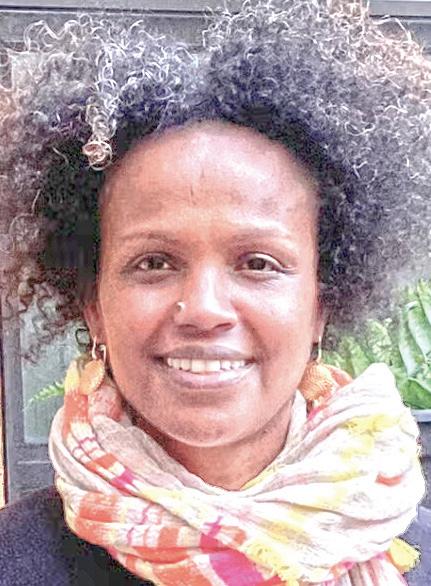
1 cup chili powder or hot paprika
½ Tbsp. dried clove
1 Tbsp. ground cardamom

1 Tbsp. ground ginger
1 Tbsp. onion powder
1 Tbsp. ground coriander
1 Tbsp. cumin
½ Tbsp. cinnamon
½ Tbsp. nutmeg
½ Tbsp. ground fenugreek seed
1 Tbsp. pepper
1 Tbsp. salt
To make the berbere spice, sift and mix together all ingredients.
Purée onions, garlic and ginger in a food processor. In a large pan, sauté your onion, garlic, and ginger in oil. Cook until softened, for 10 to 15 minutes, stirring occasionally.
Add tomato paste, ½ cup water, berbere spice, and salt. Cook for 15 minutes while stirring. Reduce heat.
Rinse lentils and add to pan; stir and bring to a boil; cover and simmer the lentils, stirring occasionally for 20 minutes until the lentils are soft. Add water as needed. Add salt to taste.
Serve with injera (Ethiopian flatbread) or rice.
The Miriam Rosenthal Foundation for the arts is Dayton’s only community Foundation that funds our professional performing arts of music, theatre and dance.
As we celebrate our 60 th year, we look forward to keeping that legacy alive for the next generation.
Learn how you can play your part too.
Best wishes to all for a Happy Chanukah
Carol Jacobi Holm
Wishing all of Dayton Happy Chanukah
Julie Liss-Katz
Our warmest wishes for a joyous
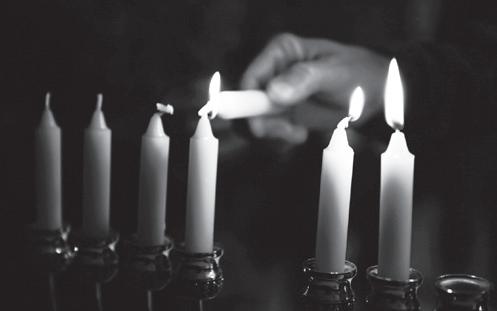


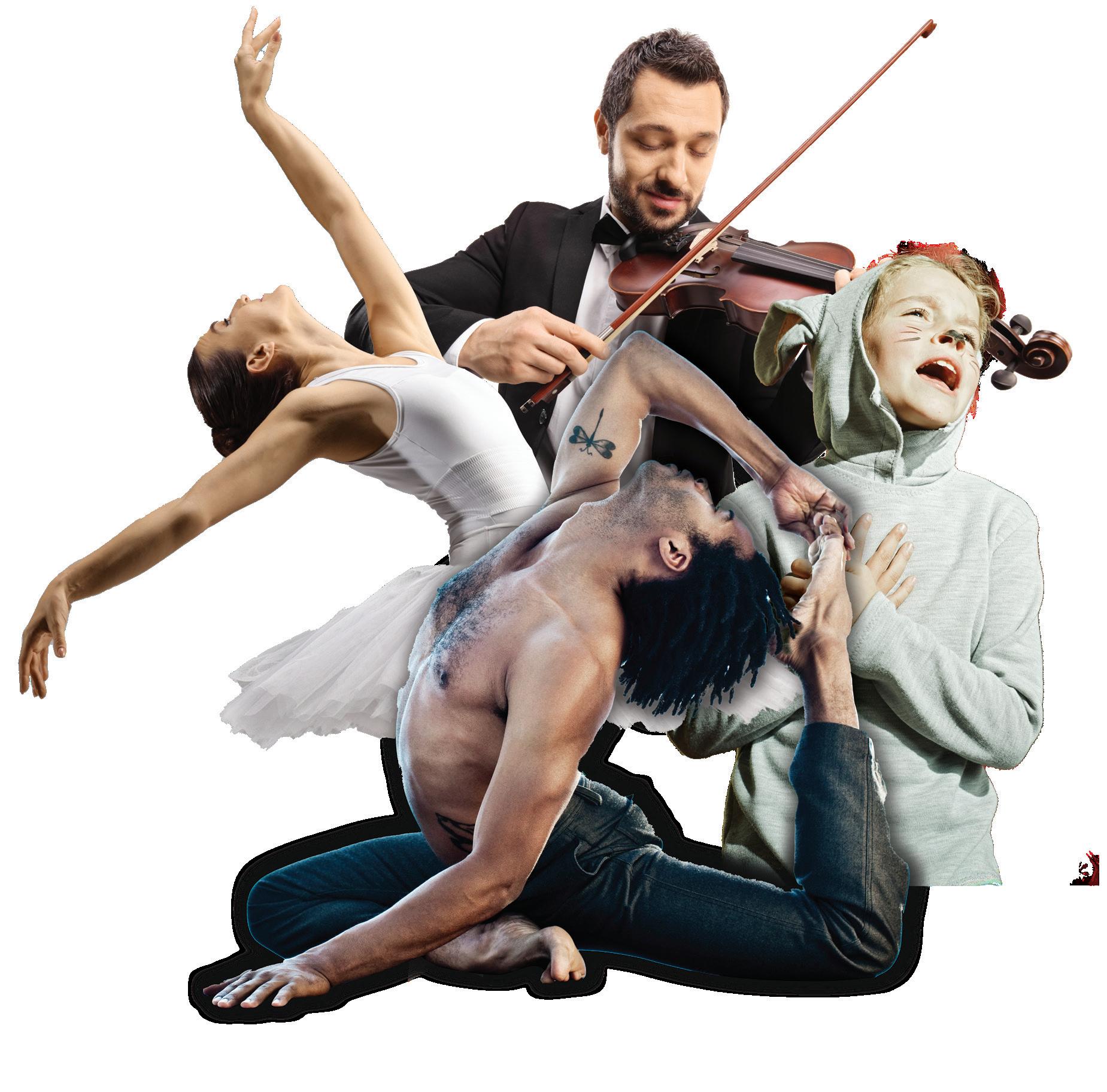

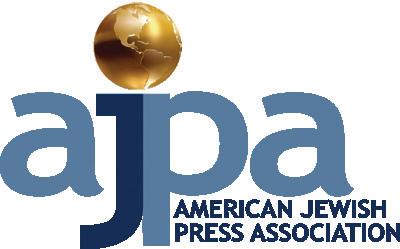
$18
Subscriber
2025 Best Monthly in Ohio & Best Religion Reporting (Small Newspapers), Ohio Society of Professional Journalists Awards
2025 First-Place Rockower Award for Excellence in News Reporting (Magazines & Monthly Newspapers), American Jewish Press Association
One-year subscription to The Observer and acknowledgment in The Observer ($18 value) Consider a Voluntary Subscription to The Observer.
$36 Double Chai
One-year subscription, acknowledgment in The Observer and one free one-column holiday greeting ($33 value)
Ad sales and Jewish Federation support only cover a portion of our expenses to bring you The Observer. Your help will ensure the depth of our coverage.
$250
Guardian Angel
One-year subscription, acknowledgment in The Observer and one free three-column holiday greeting ($63 value)
One-year subscription, one-year acknowledgment in The Observer and three free three-column holiday greetings ($153 value) $100 Angel
Fill out your name as you wish it to appear in The Observer:
Name
(check one) I currently receive The Observer via mail: yes no
Renewing Champions
Elaine & John Gaglione
New Champion
Harriet Klass
Renewing Guardian Angels
Marni Flagel
Marc & Cindy Fox
Drs. Perry & Renata Lubens
Gary Pacernick & Peggy Weller
Zerla Stayman
New Guardian Angels
Roger Chudde
Todd & Gabriele Leventhal
Renewing Angel
Ann Paddock
New Angels
Keri & Don Cohen
Marilyn Donoff
Beverly Farnbacher
Sumner Saeks
Double Chai
Ellie & Bob Bernstein
Dena Briskin
Steven & Sandra Forsythe
Heath Gilbert
Helene Gordon
Martin & Joan Holzinger
Jonathan & Jeannette Horwitz
David Hurwitz
Shirley Ribak
Jeff & Connie Roberts
Cherie Rosenstein
Beverly Saeks
Dan & Susan Sauer
Andrew & Pamela Schwartz
Don & Sue Zulanch
Subscribers
Eva Clair
Katie Desch
Richard Donenfeld
Ms. Marilyn Flemming
David & Susan Gottschalk
Larry M. Jones
Barbara & Ira Kushnir
Ellen Lauber
Scott & Ann Liberman
Idele Ports
Suzanne & Norm Scheiderman
Linda Schuman
Eugene Solomon
Dr. Edward Sperber & Ms. Amy Munich
Current Champions+
Howard Michaels
Andrea Scher Rabiner
Current Champions

$500 Sustainer
One-year subscription, one-year acknowledgment in The Observer and three free three-column holiday greetings ($153 value)
$1,000 Champion All listed in Guardian Angel, plus the gratitude of knowing how much you help support Jewish journalism in the Miami Valley. ($153 value)
Here’s a gift subscription for someone special: Make checks payable to The Dayton Jewish Observer. — OR — Subscribe Here Ü
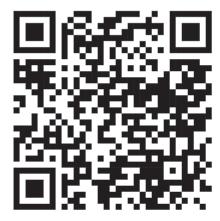
Milton Nathan Lee and Patti Schear
Current Sustainer
Laurence A. Lasky
Current Guardian Angels
Steven Adler
Buck Run Commercial Doors &
Hardware
Dr. Douglas & Mrs. Bethany
Einstein
Tara & Adam Feiner
Bruce & Debbie Feldman
Bella Freeman
Marsha & Stephen Goldberg
Debby & Bob Goldenberg
Carol Graff
Susan & Jonas Gruenberg
Robert & Vicky Heuman
Linda & Steve Horenstein
Laurie & Eddie Leventhal
Judy Lipton
Gary Pacernick & Peggy Weller
Bernard Rabinowitz
Brenda Rinzler
Susan & Nathaniel Ritter
Ms. Louise Stein
Steve & Shara Taylor
Temple Anshe Emeth
Current Angels
(check one) Currently receives The Observer via mail: yes no
Elaine Abramson
Beth Adelman
Karen & Steve Arkin
Donald Arnett
Dr. Joshua & Julie Atkin
K.W. Baker & Assoc., LLC
The Barrett Family
Skip & Ann Becker
Jack & Maryann Bernstein
Sylvia Blum & Family
Tara & Dan Brodbeck
Judith & Steven Carne
Mr. & Mrs. Matt Carper
Natalie R. Cohn
Thomas Cruse
Scot & Linda Denmark
Judge Susan Dlott
Phil & Louisa Dreety
Howard & Sue Ducker
Irwin Dumtschin
Phyllis A. Finkelstein
Lynn Foster
Jeff Froelich, Cindy Pretekin & Families
Renate Frydman, Ph.D
Dr. Felix Garfunkel
Mr. Roger J. Gebhart
Donna D. Gibson
Mrs. Jack Goldberg
Kim & Shelley Goldenberg
Lynn & David Goldenberg
Judi & George Grampp
Sydney & Lois Gross
Harold & Melissa Guadalupe
Joel & Judi Guggenheimer
Sharon & Izzy Guterman
Dr. & Mrs. Stephen Harlan
Ralph E. & Sylvia S. Heyman
Rachel Jacobs
Michael Jaffe
David & Susan Joffe
Joseph & Marsha Johnston
Linda Ohlmann Kahn &
Dennis Kahn
Ronald & Mary Kahn
Jeffrey Kantor
Susan & Stanley Katz
Elli Kent
Debbie & Norbert Klopsch
Beth Kolotkin
Edye Leuin
Iris Levi
Meredith Moss Levinson
Levy Family
Ellie Lewis
Beverly A. Louis
Helen Markman
Marvin & Susan Mason
Scott & Brenda Meadow
Bonnie Mendelson
Suzi & Jeff Mikutis
Kristen Mitchem
Robin & Tim Moore
Irvin & Gayle Moscowitz
Bobbie & Jack Myers
Nora & Bob Newsock
Lori Ohlmann
Karyn & Robert Posner
Roberta & Richard Prigozen
Sharyn Reger
Alice & Burt Saidel
Barbara Sanderow
Les Sandler
Linda Schoonover
Diane Schultz
Annie & Craig Self
Felice Shane
Katherine Sher & Jared Serota
Michael & Marcie Sherman
Diane Lieberman Slovin
Sue & Bruce Soifer
Susan Spiegel & Lisa Hanauer
Jeff & Cathy Startzman
Myron Stayman
Maggie Stein
Marc & Maureen Sternberg
Ronald Bernard & Judy Woll Return with payment to: The Dayton Jewish Observer, 525 Versailles Drive, Dayton, OH 45459
William Marwil
Jeffrey Abrahams
Art & Joan Greenfield
William L. Moser
Rina Thau & Col. Jeffrey Thau, USAF, (Ret.)
Bob & Suzanne Thum
Rex & Louise Tincher
The Waldman Family
Ronald Wasserstrom
Judith Weber
Donald & Caryl Weckstein
Paula Schwartz Weiss
Mr. Michael & Mrs. Karen Weprin

Ben Harrison Bader, Sept. 22, 2000 – Oct. 23, 2025. From the moment he entered this world — tiny and determined at just two pounds — Ben Harrison Bader showed the strength, courage, and grace that would come to define him. Born a fighter, he grew into a young man whose light seemed to shine from within: a beautiful smile, long eyelashes, and unruly hair framing a spirit that was unstoppable, creative, and full of life. Ben had a way of making the world feel warmer. He filled rooms with laughter, mischief, and kindness in equal measure. He was generous, athletic, and competitive, with a love for basketball, long walks, running, and the games of tennis and padel. Whether he was playing, talking, or simply listening, Ben lived with his whole heart — curious, determined, and entirely himself. He had an extraordinary gift for connection. Ben remembered names, noticed the overlooked, and had an instinct for seeing people as they truly were. He believed in others before they believed in themselves. His encouragement gave people courage; his faith in them became their own. To be known by Ben was to feel understood, valued, and loved. Creative and introspective, Ben lived by a simple yet powerful motto: “If not now, when?” — words he carried with him, even tattooed on his arm, as a daily reminder to embrace life with courage and presence. He dreamed boldly and inspired others to do the same. His kindness, sincerity, and humor lifted those around him, and his unwavering belief in the potential of others continues to ripple outward — a quiet, enduring legacy of love. Those who knew Ben will forever carry his laughter, his generosity, and the spark of his spirit in their hearts. Though his time on earth was far too short, the depth of his impact was immeasurable. He reminded us all to live fully, to love deeply, and to see the light in one another. Ben is survived by his loving mother, Wendy Upham, and his father, Jon Bader; his stepmother, Karen Bader, and stepfather, Todd Upham; his brother, Justin Bader (Makenna Hack); his stepbrothers, Brad Upham and the late Zachary Aronoff; his
stepsisters, Ellen Upham (Moises Gomez), Maddie Upham (Sam Young), Allison Upham, and Toria (Brian) Aronoff Schottenstein. He is further survived by his grandparents, Mari Garfield and the late James Garfield, M.D., Rochelle and Gerald Bader, D.D.S.; his aunts and uncles, Monica and Bill Woeste, Susan and Jeff Schoeny, Lisa and Jeff Samuelson, David and Michelle Bader, and B. Tupper Upham; and by his beloved cousins, Maggie and Molly Schoeny, Trey and Mac Woeste, Jenna and Benji Frydman, Zach Samuelson, Alexa and Kyle Bader; nieces Juliette and Scarlette Schottenstein; and his loving girlfriend, Reem Atallah — along with many other family members and dear friends who will cherish his memory. Ben’s life was a reminder that joy and kindness are powerful acts of faith — that one person’s belief in others can echo across countless lives. His light will continue to shine through all who loved him. Ben reached the community through his writing and daily posts on social media, where he shared reflections that encouraged others to live with gratitude, clarity, and self-belief. His tweets were deeply meaningful and often gave his followers comfort, perspective, and a renewed sense of purpose. Two of his most powerful messages read: “Life is beautiful. Do not miss it. Do not take it for granted. Do not tell yourself something is missing, as you will always find something to look for. The thing you are looking for is you.” “You find gratitude for the pain when you know there’s light on the other side. You’re one of the lucky ones who gets to experience the depth of polarity. Withstand the storm and you’ll be prepared for the sun.” These messages capture the essence of who Ben was — someone who led with light, sought truth, and reminded others to find peace and purpose within themselves. Though our hearts are broken, we will carry on Ben's legacy in everything we do. We will keep his memory alive by leading with love, living with purpose, and carrying forward his passions that made the world brighter. Please consider a memorial contribution to: Jupiter Medical Center Foundation, 1210 S. Old Dixie Highway, Jupiter, FL 33458. May we honor him by living as he did — with courage, presence, and love, asking always:
“If not now, when?” Keep his memory alive.

Stanley Morris Chesley died in Cincinnati on Nov. 2 at age 89. Stanley was born in Cincinnati on March 26, 1936 to Frank and Rachel (Kinsberg) Chesley, who had emigrated from the former Russian Empire (now Ukraine). He built a prominent career as an attorney in Cincinnati and was known for his philanthropy. Stanley graduated from Walnut Hills High School in 1954 and earned both his Bachelor of Arts in Economics and Juris Doctor from the University of Cincinnati in 1958 and 1960, respectively. He worked odd jobs, including selling shoes, to put himself through law school. Stanley rose to prominence as a trial attorney in 1977, when he represented victims of the horrific Beverly Hills Supper Club fire in Northern Kentucky and negotiated millions of dollars in settlements for the victims. He successfully advanced a thennovel theory of liability and became known as the originator of mass tort lawsuits. Stanley was a founding member of the law firm Waite, Schneider, Bayless & Chesley and was a remarkable trial attorney and skilled negotiator. Over his more than 50-year legal career, he represented thousands of victims of hotel fires, airplane crashes, industrial explosions, and other catastrophes. Stanley’s commitment went well beyond his clients, as he also served as pro bono counsel for the World Jewish Congress and World Jewish Restitution Organization by representing the Conference on Jewish Material Claims against Germany to help secure significant restitution payments for Holocaust survivors. Over the course of his life, Stanley was deeply philanthropic. He served on the boards of the American Jewish Joint Distribution Committee; the Cincinnati Human Rights Foundation; Hebrew Union College; Isaac M. Wise Temple; the NAACP (life board member); the Jewish Federation of Cincinnati (chair); and Jewish National Fund (chair). For many years, he ensured the City of Cincinnati pools had adequate funding to stay open in the summer. Stanley was civically and politically active, Continued on Page 35
From Generation To Generation.
From Generation To Generation.
Larry S. Glickler, Director
Since 1913
Dayton’s ONLY Jewish Funeral Director 1849 Salem Avenue, Dayton, Ohio 45406-4927 937-278-4287 lgfuneralhome@gmail.com
Larry S. Glickler, Director
Larry S. Glickler, Director Dayton’s ONLY Jewish Funeral Director 1849 Salem Avenue, Dayton, Ohio 45406-4927 937-278-4287 lgfuneralhome@gmail.com
Larry S. Glickler, Director Dayton’s ONLY Jewish Funeral Director 1849 Salem Avenue, Dayton, Ohio 45406-4927 (937) 278-4287 lgfuneralhome@gmail.com
Larry S. Glickler, Director
Dayton’s ONLY Jewish Funeral Director 1849 Salem Avenue, Dayton, Ohio 45406-4927 (937) 278-4287 lgfuneralhome@gmail.com
Dayton’s ONLY Jewish Funeral Director 1849 Salem Avenue, Dayton, Ohio 45406-4927 (937) 278-4287 lgfuneralhome@gmail.com
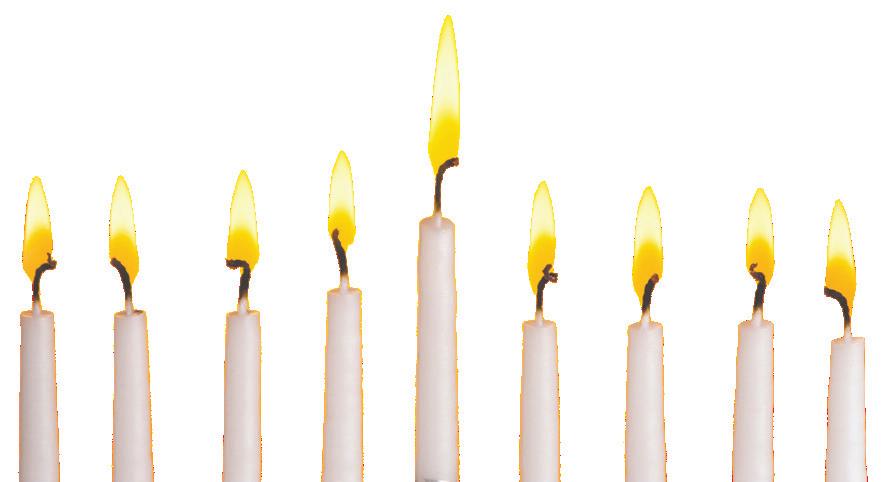

A sweet and joyous Chanukah
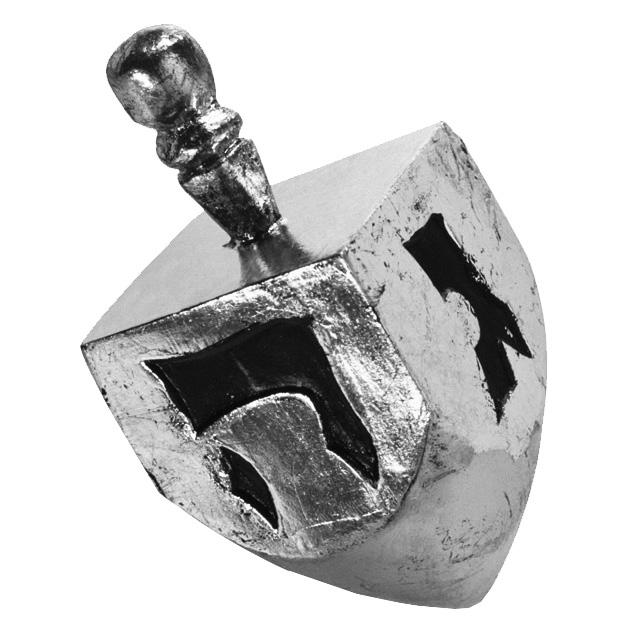
Brenda Rinzler
We wish the Dayton Jewish community a very happy Chanukah
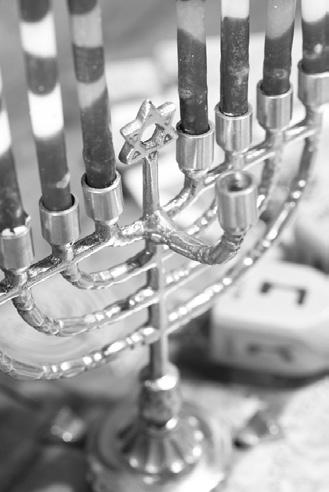
Steve & Kim Adler
Best wishes to all for a Happy Chanukah
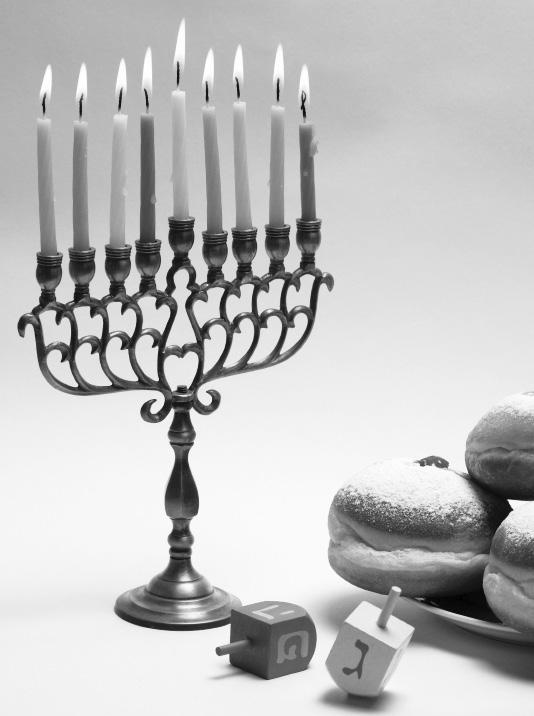
&
Warm Chanukah greetings from
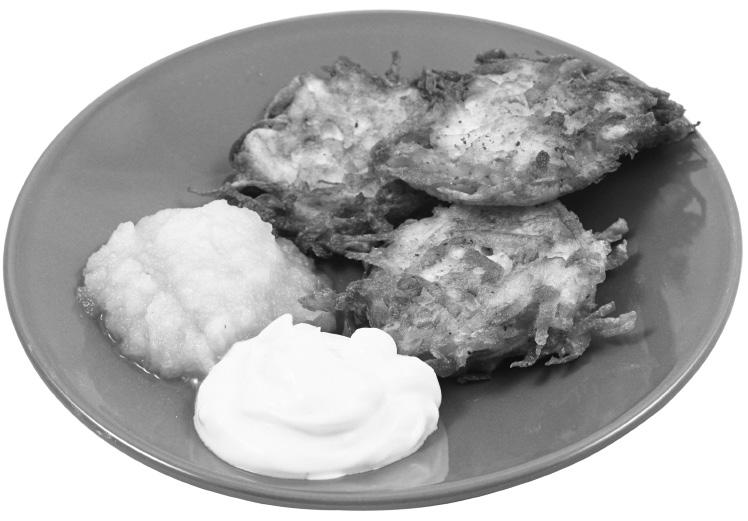
Best wishes to all for a Happy Chanukah
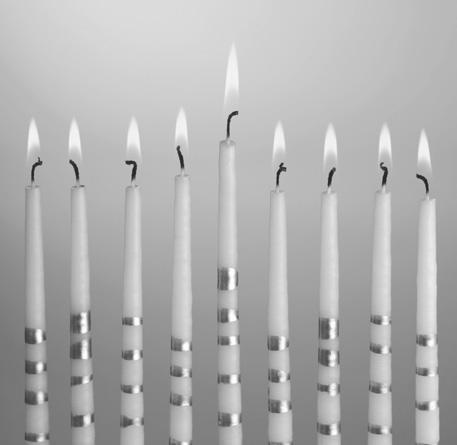
May light & love fill your hearts & homes this Chanukah season

Joseph & Marsha Johnston
Happy Chanukah

Sylvia Blum & Family
Our warmest wishes for a joyous Chanukah

Debby, Bob, Alicia, Teddy & William Goldenberg
We wish the Dayton Jewish community a very happy Chanukah

& Jack Bernstein & Family
Best wishes to all for a Happy Chanukah
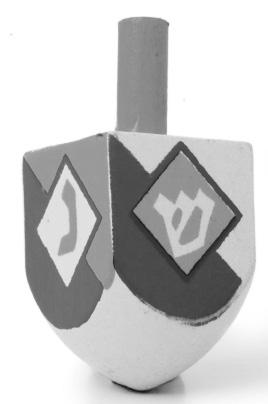
Linda & Steve Horenstein
Warm Chanukah greetings from
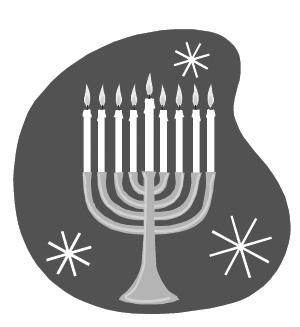
& Todd Leventhal
Best wishes to all for a Happy Chanukah
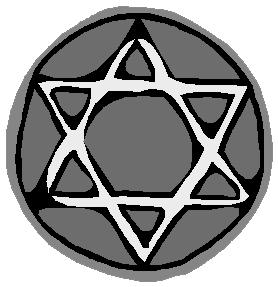
A sweet and joyous Chanukah
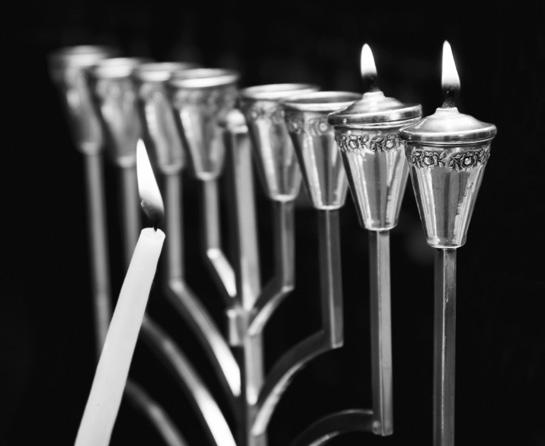
Best wishes to all for a Happy Chanukah

& Stephen Goldberg
We wish the Dayton Jewish community a very happy Chanukah
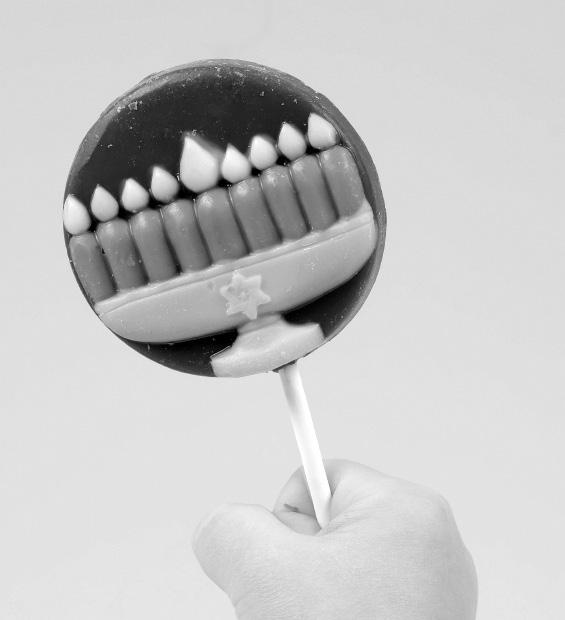
Susan & Nat Ritter
A sweet and joyous Chanukah
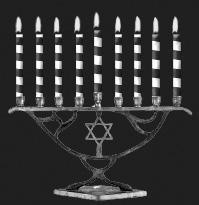
Warm Chanukah greetings from

Our warmest wishes for a joyous Chanukah

Robert & Vicky
A sweet and joyous Chanukah

Have a latke fun this Chanukah!
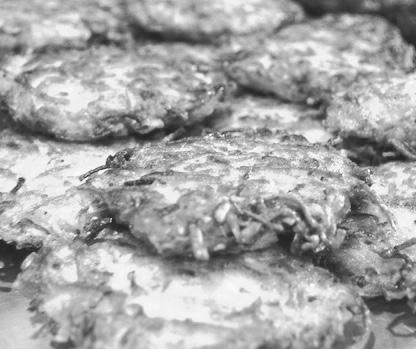
Continued from Page 33
donating to the Democratic Senatorial National Commission and frequently hosting President Bill Clinton and Hillary Clinton in the 1990s. In 2008, he was honored to be invited by President George W. Bush to serve on the honorary delegation accompanying him to Jerusalem for the 60th anniversary of the State of Israel. Stanley married U.S. District Judge Susan J. Dlott on Dec. 7, 1991. They enjoyed traveling together and shared a great love of the law and Cavalier King Charles spaniels. Stanley is survived by his beloved wife of 33 years; two children: Richard (Dee Dee) Chesley and Lauren Miller; six grandchildren: Andrew (Rachel) Chesley, Nathan (Julia) Chesley, Amanda (John) Zessen, Liza (Jon) Hieder, Lily (Thomas) Vanasse William Cohen; and six great-grandchildren: Jason and Reuben Chesley, Zoe and Margot Zessen, and Nora and Sadie Vanasse. He was preceded in death by his parents and sister, Marcia Chesley. Interment was at Beth Jacob Cemetery in Dayton. Donations may be made to the Freestore Foodbank, Cincinnati.

Gary P. Friedberg, age 71 of Canonsburg, Pa., beloved father, brother, uncle, and friend, passed away peacefully yet unexpectedly, Sept. 26 after enduring the challenges of Parkinson’s disease over the past three years. Gary was born and raised in Dayton and was a graduate of Fairview High School Class of 1972. Gary was an avid Ohio State University Football and Pittsburgh Steelers fan. Beyond sports, Gary carried a quieter talent: he knew how to play the piano from a very young age, a gift that surprised and delighted those who were lucky enough to hear him play. Gary had a long career and successful profession in the automobile industry in the Greater Pittsburgh Area as a transportation consultant (car salesman). Gary will always be remembered for his friendliness, genuine empathy, and sense of humor. Gary was preceded in death by his parents, Jerome and Mardelle (Levin) Friedberg; brother Stephen; nephew, David; uncles, Dave, Sam, Lou, and Al Levin; aunts, Barbara and Leah Levin, Bea (Harry) Kruger, Gertrude Friedberg, Dorothy (Samuel) Segelin, and Belle (Leon) Simon. Gary is survived and will be dearly missed by his brother Howard; his devoted partner, Georgette Bly; his children, Michael (Lauren) Friedberg, Christina (Brian Filler), Carolyn (Joshua Horton); nieces, Lauren and Lisa Michaels; seven grandchildren; aunt, Karen Levin; cousins, Malcolm (Marsha) Segelin, Diane, Elaine, Bobby, and Mikey Levin, Jeff and Robbie Handler, Danielle Young, and Ryan Levin; and close childhood Dayton friends Mike Weprin and Joel Frydman. A private family remembrance in Pittsburgh was held to honor Gary’s life.
Continued from Page 12
chosen by any school districts to be one of the documents displayed in classrooms.
Ingram said by including the religious text as if it were a historical document, “here again, we are doing that indoctrination that we cry so much about.”
The attempt to remove the Ten Commandments from the list was tabled along party lines in the committee, as was another effort by Ingram to amend the bill. The other amendment would have required local school boards to have three public hearings on the selection of the documents, to allow public input before the decision is made, she said.
Brenner said local school boards can decide for themselves if they’d like public input. “This is going to go to the local school boards anyway, they’re going to be able to determine which ones are going to be on display,” Brenner said. “It’s up to those local school boards how they want to conduct it.”
The bill now moves on to the Ohio House for consideration.




• anks to a generous anonymous donor, your gi — or additional gi — to Jewish Cemeteries of Greater Dayton will be matched, dollar for dollar.
• It’s a double mitzvah: the cemeteries of Beth Abraham Synagogue, Beth Jacob Congregation, and Temple Israel will combine into a single nonpro t. is ensures their sanctity in perpetuity, and strengthens each congregation’s nancial security.
• Contact Kate Elder at kelder@jfgd.net now for details and to make your pledge.



WE APPROACH CHANUKAH, the Office of Transformational and Inclusive Excellence wishes Jewish community members and friends Chag Sameach during this time of celebration.

